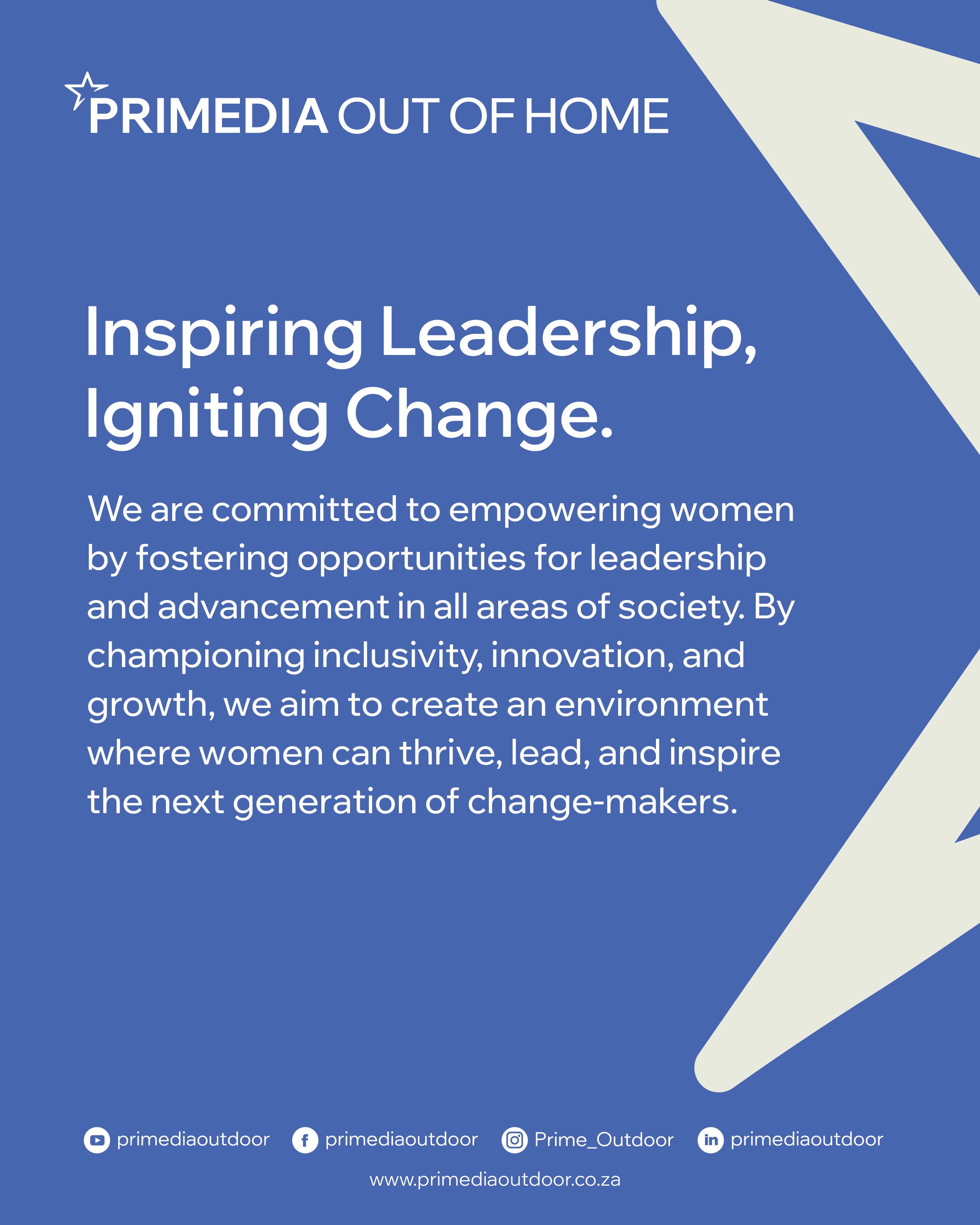




TRAIL BLAZER
Kgalema Motlanthe
Trustee, Nelson Mandela Foundation
SPORTING ACTION
Records, returns
SA’s mid-year magic
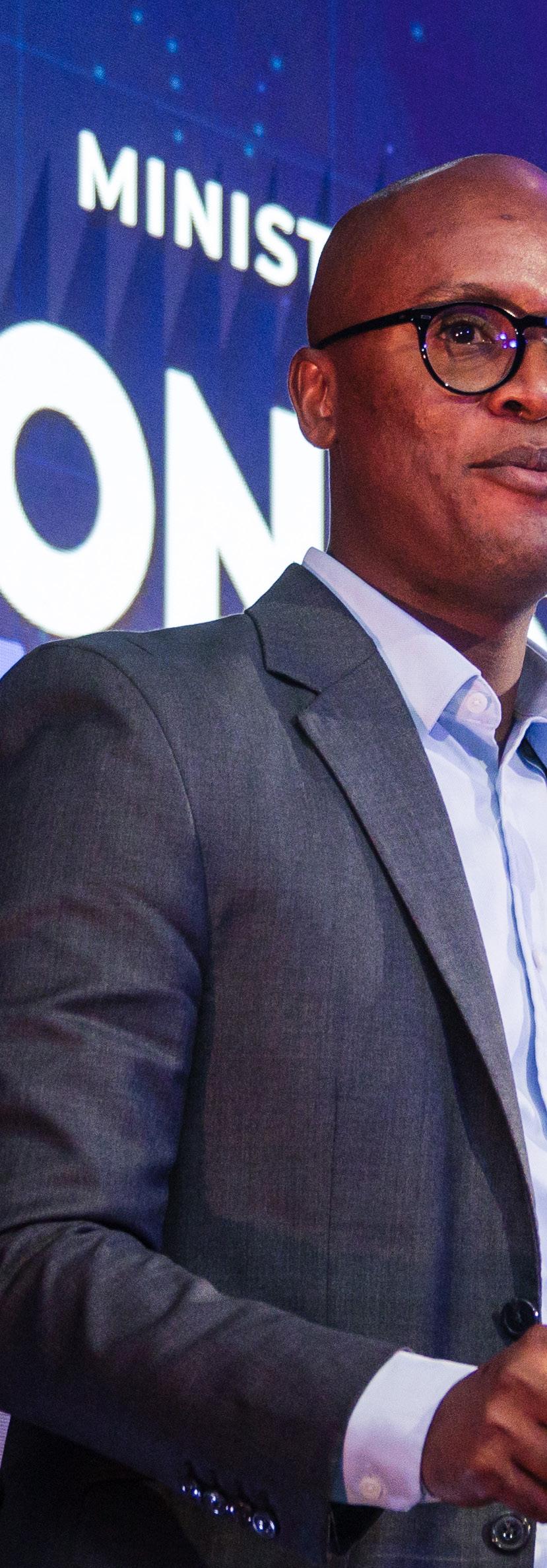
Hon. Solly Malatsi, gives his Ministral Address at Topco Media’s annual Sentech Africa Tech Week 2025

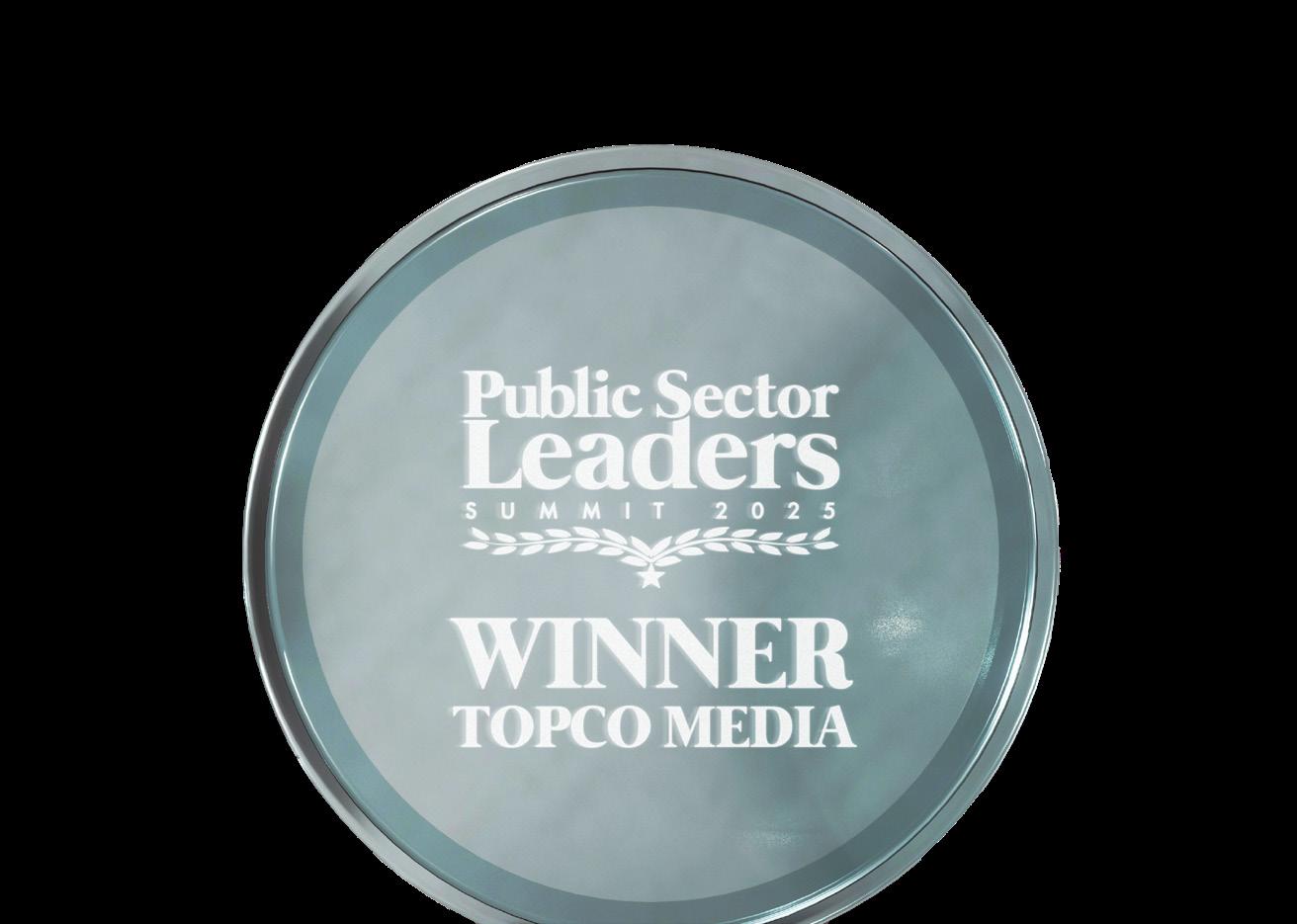

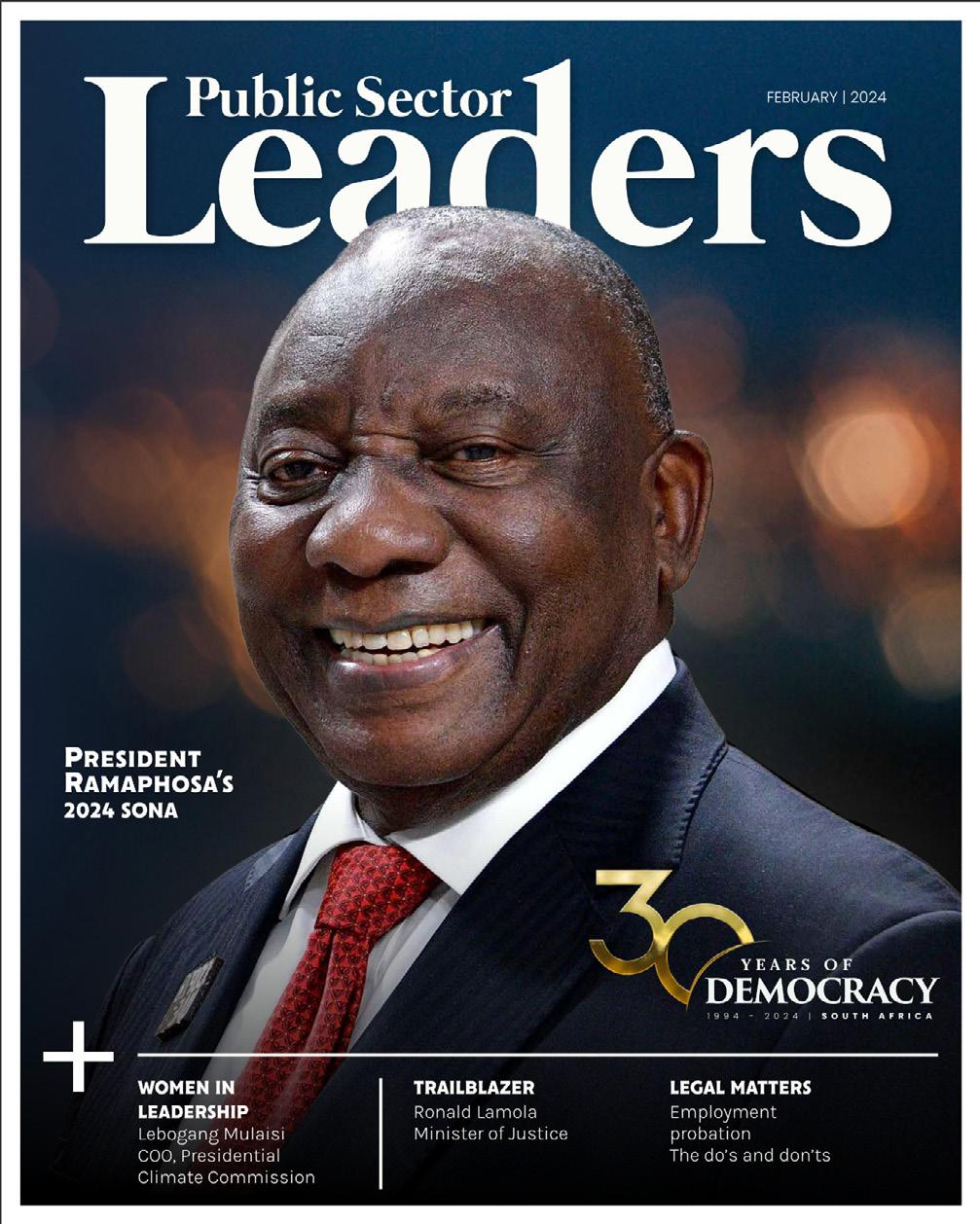
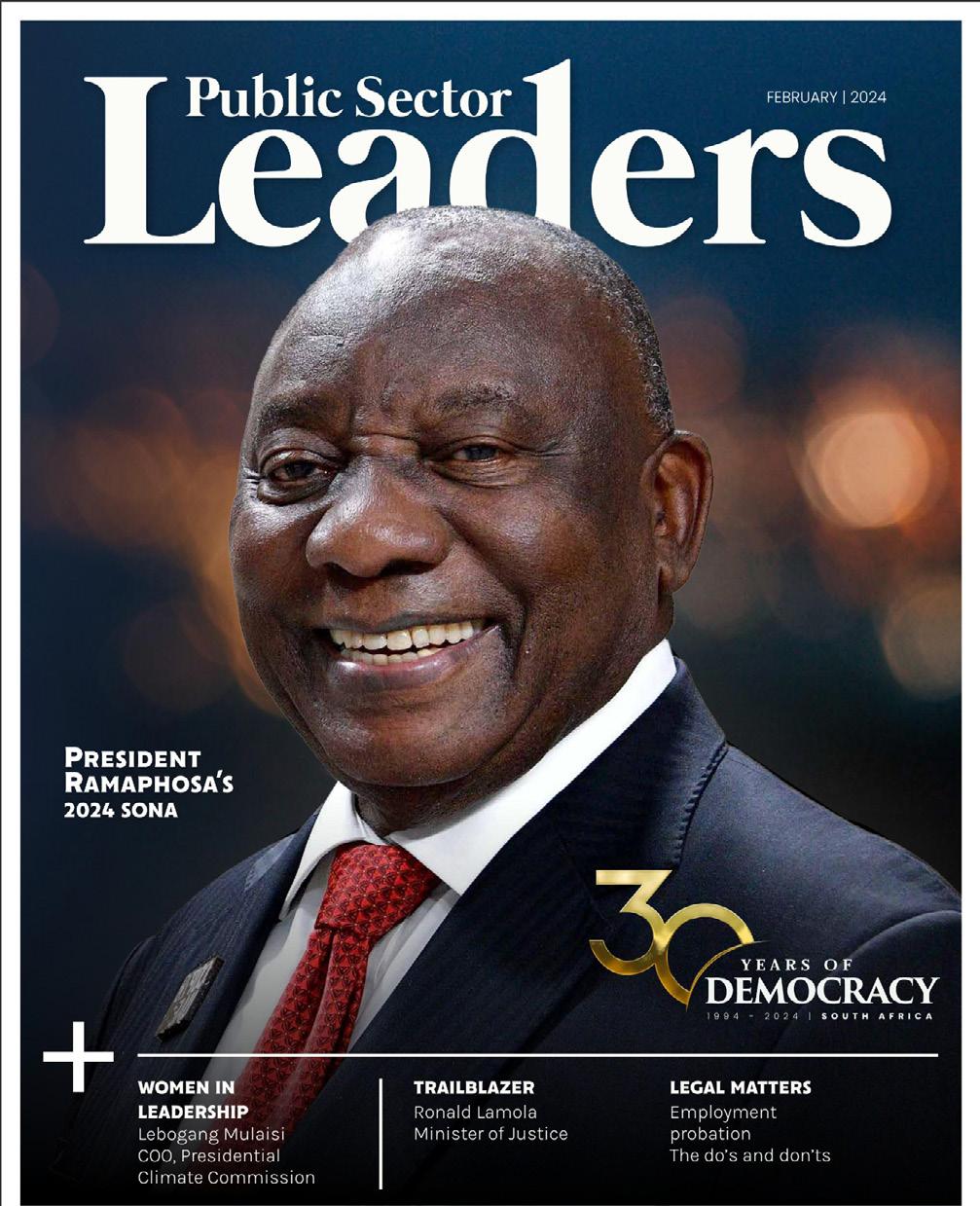


The Public Sector Leaders Summit is a highly respected and prestigious cross-government programme, recognising and celebrating the wealth of inspirational individuals and innovative projects within the Public Sector.
In 2025 Topco Media launches this unique and empowering 2-Day Conference & Awards highlighting best practice right across government, sharing innovation, learning and leadership. 11 - 12 NOVEMBER | INDABA HOTEL AND CONFERENCE CENTRE, JHB
For more information Contact: emlyn.dunn@topco.co.za marketing@topco.co.za

18 | Mandela Day
Five tips on how to spend your 67 minutes
24 | Constitutional Court
30th Anniversary
The lawyer prince and justice under a tree
28 | Chef Xoliswa Ndoyiya
Mandela’s private chef for 22 years
38 | Black Business Council Summit
Levelling the playing field for black-owned businesses
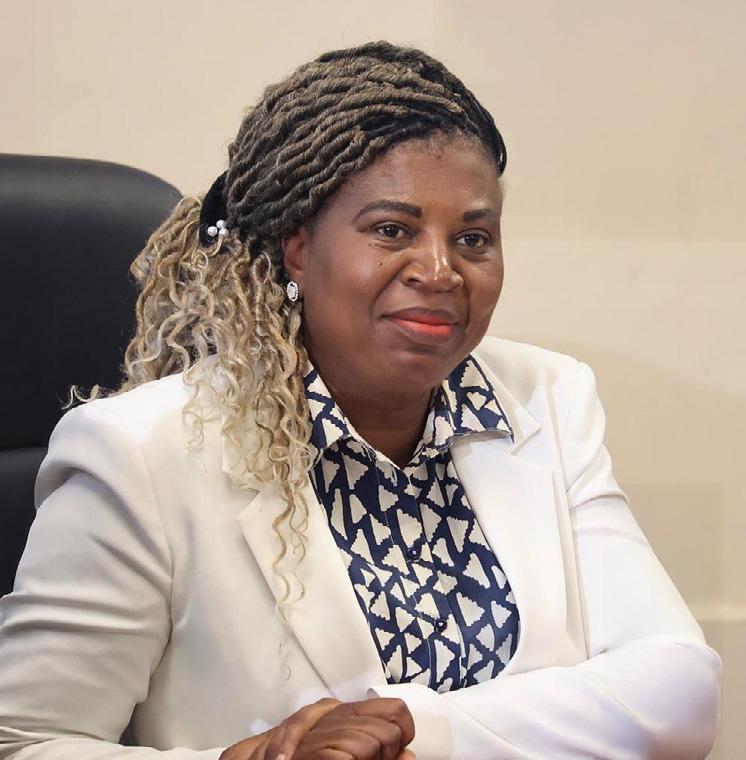
48 | President’s working visit to Canada
President Cyril Ramaphosa at the G7 Leaders Summit in Canada
52 | Deputy President’s visit to Russia
Deepening economic ties and boosting trade and investment
44 | G20 Update
SA’s Presidency at midway point - evaluating progress made to date
56 | Agriculture
10 | Addressing the Nation
Safeguarding the integrity and effectiveness of our police service 12 | Cover Story
Vhembe TVET College: Geared for excellence 32 | Trailblazer
Kgalema Motlanthe: A trailblazer in democracy, advocacy and education 34 | Women in Leadership
Yolanda Cuba: Shaping Africa’s digital future with purpose and power
Biosecurity holds the key to the recovery of SA’s red meat industry
58 | In Other News
Regulating political money: Inside the IEC’s landmark symposium on party funding in South Africa
62 | Regional Focus
Gauteng’s bold blueprint for growth
66 | Sporting Action
The sun is on us right now: Records, returns and South Africa’s mid-year magic
60 | National energy security
Paving the way to a loadshedding-free South Africa
64 | South Africa’s rail revolution
Nearly 300 trains delivered to transform commuter transit

70 | Financial Fitness
SARS introduces express access e-filing for 2025
72 | Legal Matters
How restraint of trade safeguards South Africa’s workforce and innovation
74 | Health and Wellness
Micro-Wellness: Small shifts, big gains for health at work
76 | Upcoming Events
July calendar



Pro-Ceramide Technology & Niacinamide –the dynamic duo that locks in moisture
Ceramides form a healthy skin barrier that locks in moisture, but cold temperatures can leave your skin drier and looking dull. Other body creams contain only a few ceramide types, but your skin needs over 100 to stay hydrated. Our Pro-Ceramide Technology is di erent.
Vaseline Cera-Glow gives your skin the building blocks it needs to create over 100 custom ceramides – just the ones your unique skin needs for a radiant glow.
Plus, it contains Niacinamide, which supercharges your skin’s ceramide factory and visibly fades dark spots. Together, our Pro-ceramide technology and Niacinamide are the secret to unlock even-toned, glowing skin in every season.
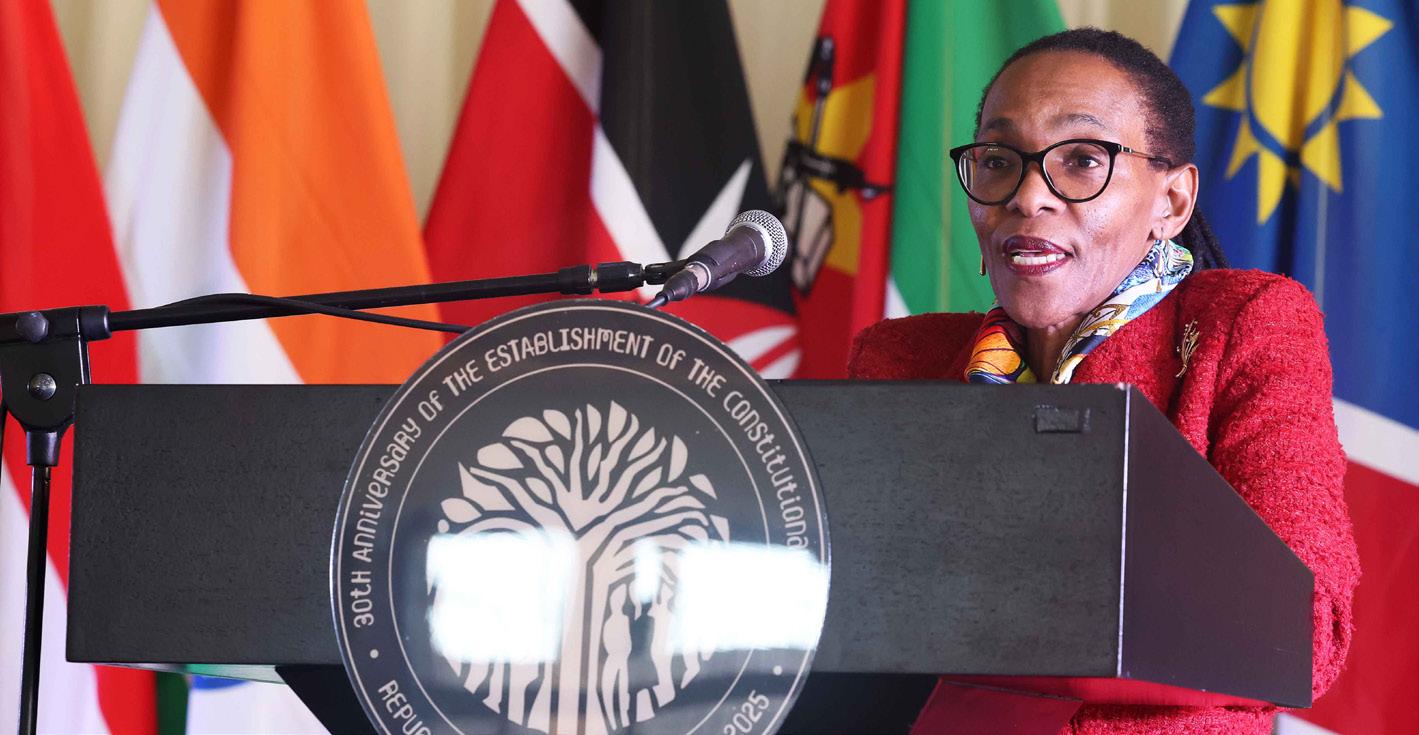
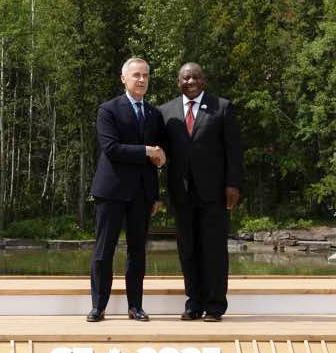

PUBLIC SECTOR LEADERS
The Digimag For Leaders In The South African Public Sector Fully Accredited Member of ABC

Advertising Sales, Distribution and Subscriptions
Top Media & Communications (Pty) Ltd
Tel: 086 000 9590 info@topco.co.za | www.topco.co.za
CEO Ralf Fletcher
TOPCO STUDIO
Production Director
Van Fletcher van.fletcher@topco.co.za
Group Editor
Fiona Wakelin fiona.wakelin@topco.co.za

Deputy Editor
Koketso Mamabolo koketso.mamabolo@topco.co.za
Assistant Editor
Shumirai Chimombe shumirai.chimombe@topco.co.za
Contributors
Jessie Taylor
Wandile Sihlobo
Sue Ramauthar
Design
Tashwell Brown
Traffic Manager
Daniël Bouwer artwork@topco.co.za
SALES
National Project Manager
Emlyn Dunn Tel: 072 1263962 emlyn.dunn@topco.co.za
Brand Coordinators
Sidney Phiri sidney.phiri@topco.co.za
Toni Tsapi toni.tsapi@topco.co.za
Printers LAW Print
Images iStock / Unsplash / GCIS | Flickr
Digital Publishing Platforms
Issuu Magzter Media Carrier
Head Office
Top Media & Communications (Pty) Ltd T/A Topco Media Elkay House, 186 Loop St Cape Town
Tel: +27 86 000 9590
Fax: +27 21 423 7576
Email: info@topco.co.za
Website: www.topco.co.za (ScanQRcodebelowtoviewwebsite) 66

DISCLAIMER
All rights reserved. No part of this publication may be reproduced, stored in a retrieval system or transmitted, in any form or by any means, electronic, mechanical, photocopying, recording or otherwise, without the prior written consent of Top Media & Communications (Pty) Ltd T/A Topco Media. Reg. No. 2011/105655/07. While every care has been taken when compiling this publication, the publishers, editor and contributors accept no responsibility for any consequences arising from any errors or emissions.
BY FIONA WAKELIN
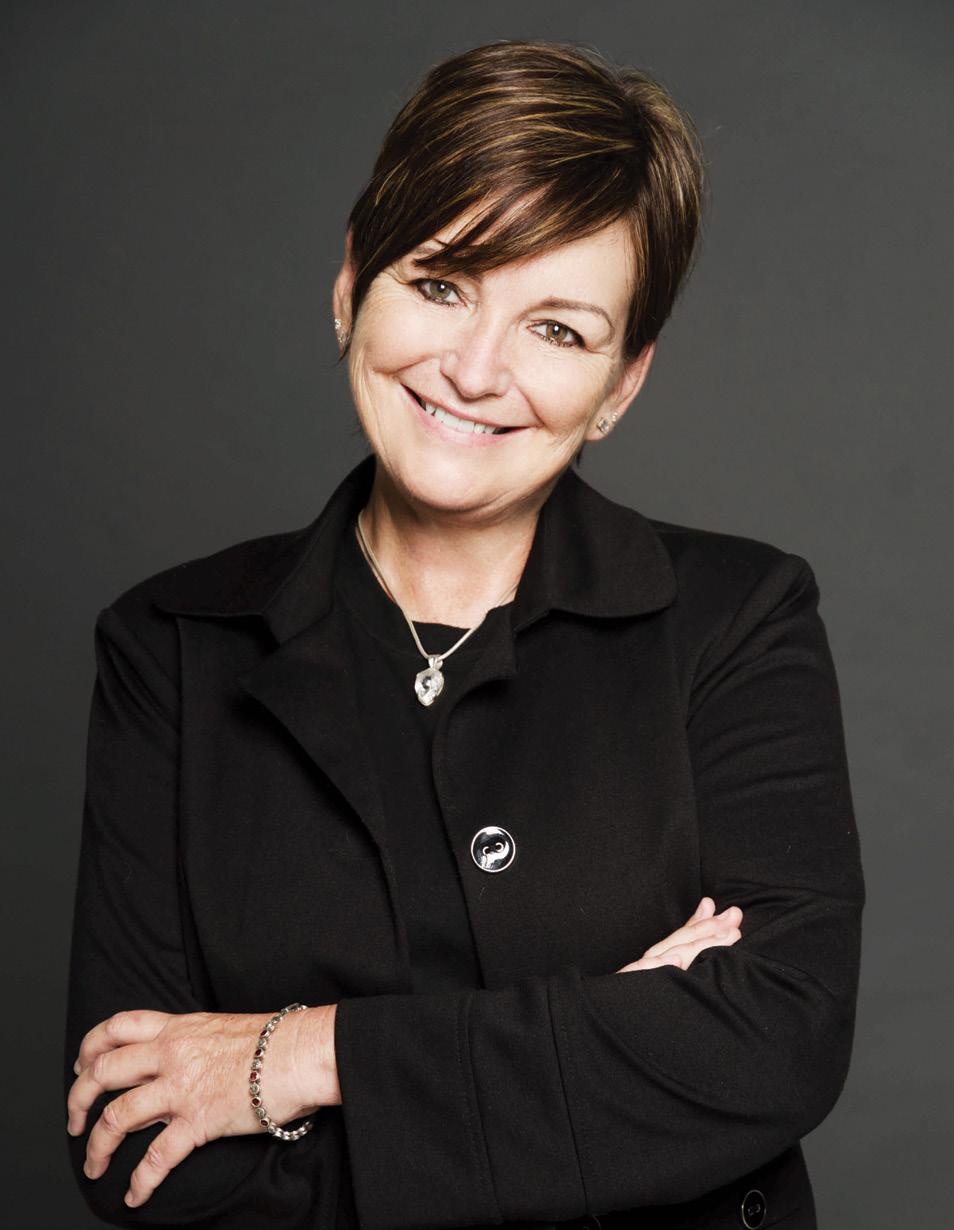
In his letter to the nation, penned on 14 July, His Excellency Cyril Ramaphosa focused on safeguarding the integrity and effectiveness of our police service and addressed the issues raised by SAPS KwaZulu-Natal Provincial Commissioner Lt Gen Nhlanhla Mkhwanazi. In response to these allegations, His Excellency announced the establishment of a Commission of Inquiry headed by Acting Deputy Chief Justice Mbuyiseli Madlanga.
“I call on all South Africans to support the Commission in its work and, where appropriate, to provide any information or assistance the
commission may require. In establishing this Commission of Inquiry, we are affirming our commitment to the rule of law, to transparency and accountability, and to building a South Africa in which all people are safe and secure,” – His Excellency President Cyril Ramaphosa.
On the front cover, we feature Basani Hlekane, Principal, Vhembe TVET College and in the lead story focus on the many outstanding achievements of the College since Principal Hlekane has been at the helm:
“Growth is all about reaching where our communities are. The main thing was to bring the College into the community. And I think that’s where we can speak about thriving. We thrive to bring technology closer to people,” – Basani Hlekane.
July is Mandela month and we celebrate our global icon in these pages through articles such as: The Constitutional Court’s 30th anniversary; tips on how to celebrate Mandela Day (his birthday is July 18), and, intriguingly, a glimpse into the dishes prepared by Chef Xoliswa Ndoyiya - Mandela’s private chef for 22 years: Cooking from a place of love and connecting people.
Fittingly, our Trailblazer is Kgalema Motlanthe - as trustee of the Nelson Mandela Foundation, Mr Motlanthe participates in memory-work that encourages healing, inclusivity and democratic discourse. His ongoing service exemplifies his own belief that remembering history is essential to confronting present injustices and shaping a more equitable polity.
Also a trustee of the Nelson Mandela Foundation and Vice President for the Southern and East Africa Region at MTN Group, Yolanda Cuba, is this month’s Women in Leadership; her role
on the Board involves providing strategic oversight and contributing to dialogue-centred programming that promotes social justice and memory -based activism.
Going global we bring you the latest on President Ramaphosa’s visit to Canada and Deputy President Paul Mashatile’s working-visit to Russiadeepening economic ties and boosting trade and investment. Closer to home is the G20 update, the Black Business Council Summit, and good news about our railways, is that nearly 300 trains have been delivered by Gibela to transform our commuter transit challenges.
Our regular stalwarts provide: Health and Wellness insights on microwellness (small shifts, big gains for health at work); the status of our vitally important agricultural sector; Financial Fitness gives valuable advice about the tax season which is upon us; and Sporting Action will brighten your day because, “The sun is on us right now: Records, returns and South Africa’s mid-year magic”.
From myself and the amazing team, we hope you enjoy the read.

This is your opportunity to stay informed, ask questions, and engage with the management of the Scheme. Key topics such as financial performance, governance, and the Scheme’s future plans will be discussed.
This is your opportunity to stay informed, ask questions, and engage with the management of the Scheme. Key topics such as financial performance, governance, and the Scheme’s future plans will be discussed.



enquiries@gems.gov.za Fax: 0861 004 367
Private Bag X782, Cape Town, 8000






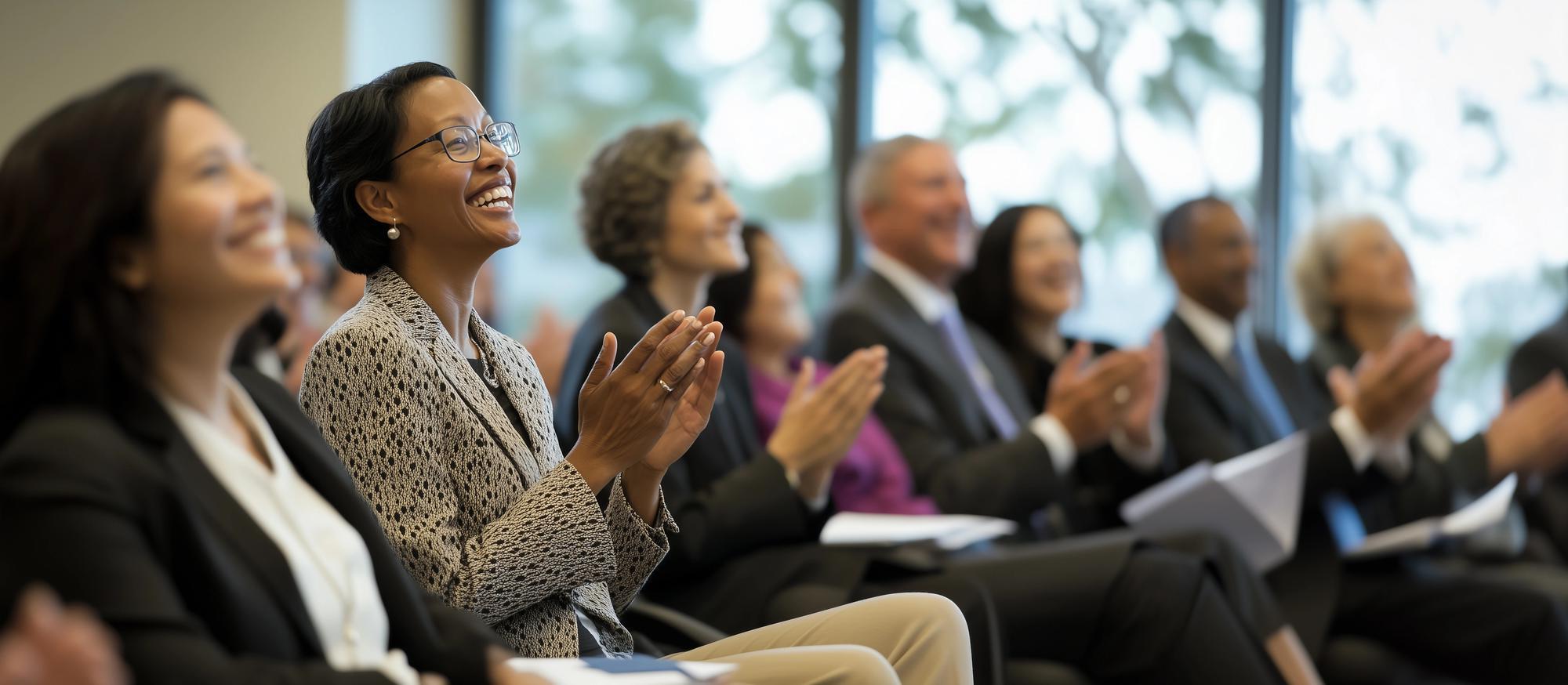





The GEMS 2025 Board of Trustee Elections - Voting is now OPEN!
If you are a GEMS principal member and in good standing, you can vote using any of the following four convenient options.
If you are a GEMS principal member and in good standing, you can vote using any of the following four convenient options.
If you prefer to use paper, mark your ballot and return it by post, email, fax, or drop it off.


For online voting, click the secure voting link sent to your email, log in, and vote in minutes.


On the go? Dial *134*7777# on your cellphone and vote via USSD. This is quick and data-free!


Want to vote in person? Visit any GEMS Walk-In Centre between 18 and 30 August or catch the pop-up voting booths at Government Departments near you from 11 to 29 August!


Remember, voting will close at Midday on 6 September 2025
Remember, voting will close at . three candidates
Let your vote count. You can only vote once, for up to and three candidates.
Cast your vote today
Cast your vote today
Visit gems.gov.za or call 0800 00 4367 for more info. Your vote. Your voice. Your Scheme.
Visit gems.gov.za or call 0800 00 4367 for more info.
BY FIONA WAKELIN
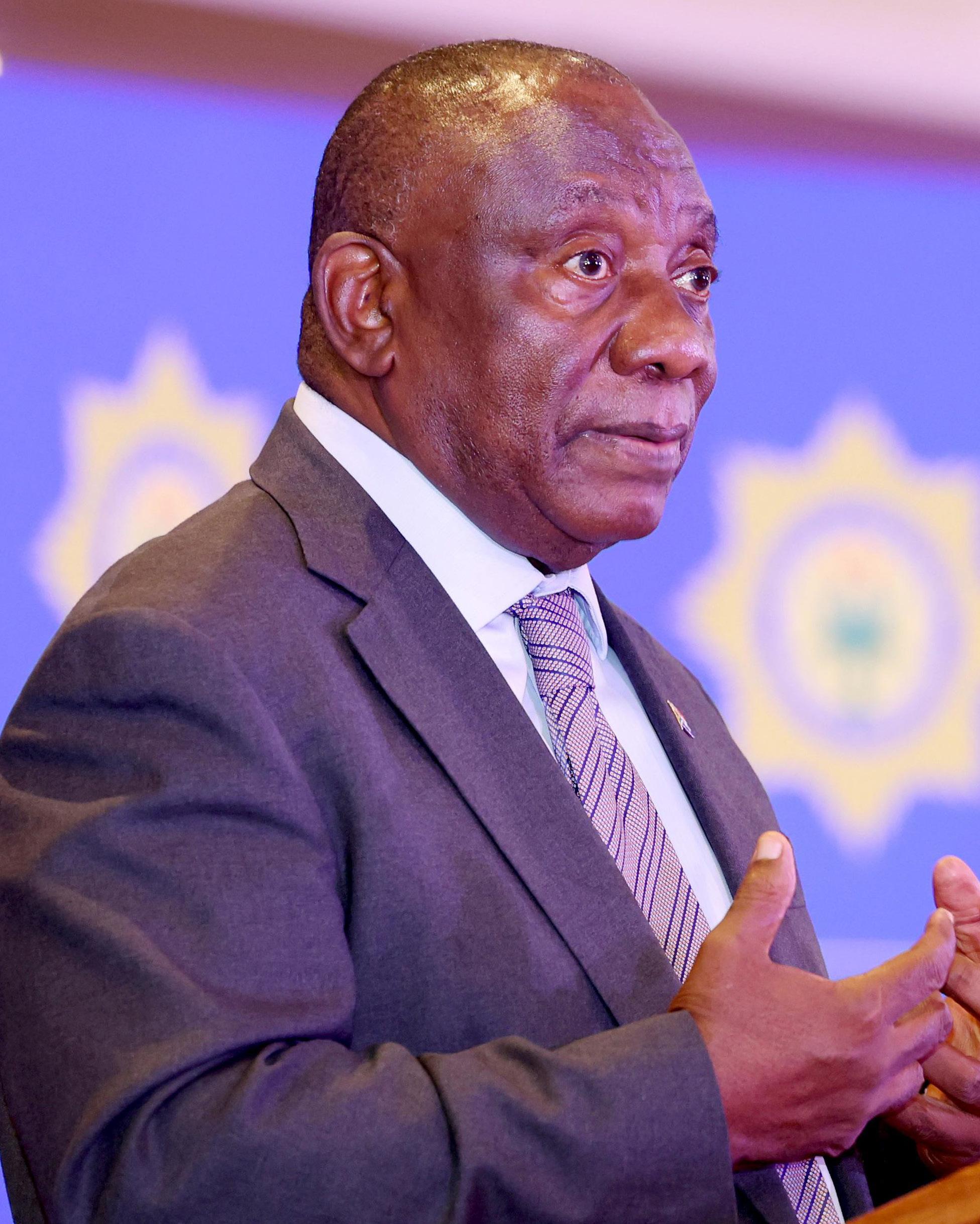
In his letter to the nation, penned on July 14, His Excellency, President Ramaphosa addressed the issues raised by SAPS KwaZuluNatal Provincial Commissioner Lt Gen Nhlanhla Mkhwanazi at a media briefing - serious allegations that the Minister of Police and other individuals had colluded to interfere with police investigations.
In response to these allegations, His Excellency announced the establishment of a Commission of Inquiry headed by Acting Deputy Chief Justice Mbuyiseli Madlanga to ensure that the important work which has been done to rebuild our law enforcement agencies and security services is not compromised. The Commission will investigate allegations relating to the infiltration of law enforcement, intelligence and associated institutions within the criminal justice system by criminal syndicates.
“It is necessary that we establish the facts through an independent, credible and thorough process so that we can safeguard public confidence in the police service. This is particularly important as we seek to put the era of state capture behind us.
“Among the allegations that the Commission may investigate are
the facilitation of organised crime; suppression or manipulation of investigations; inducement into criminal actions by law enforcement leadership; commission of any other criminal offences and intimidation, victimisation or targeted removal of whistle blowers or officials resisting criminal influence.
“The Commission will investigate the role of current or former senior officials in certain institutions who may have aided or abetted the alleged criminal activity; failed to act on credible intelligence or internal warnings; or benefited financially or politically from a syndicate’s operations. These institutions are the South African Police Service, National Prosecuting Authority, State Security Agency, the Judiciary and Magistracy, and the metropolitan police departments of Johannesburg, Ekurhuleni and Tshwane.
“The Commission will also investigate whether any members of the National Executive responsible for the criminal justice system, were complicit, aided and abetted, or participated in the acts mentioned above,” – H.E. Ramaphosa.
In line with this executive decision, President Ramahosa has put
the Minister of Police, Mr Senzo Mchunu, on leave of absence with immediate effect and appointed Professor Firoz Cachalia as acting Minister of Police. Professor Cachalia is currently a professor of law at the University of theWitwatersrand and is the Chairperson of the National Anti-Corruption Advisory Council. He previously served as an MEC of Community Safety in Gauteng.
“We will ensure that the SAPS and other law enforcement agencies continue to function without hindrance as the Commission undertakes its work. I call on all members of our law enforcement agencies and security services to remain steadfast in upholding the rule of law and adhering to their code of conduct.
“I call on all South Africans to support the Commission in its work and, where appropriate, to provide any information or assistance the Commission may require. In establishing this Commission of Inquiry, we are affirming our commitment to the rule of law, to transparency and accountability, and to building a South Africa in which all people are safe and secure,” – His Excellency President Cyril Ramaphosa.

Basani Hlekane, Principal, Vhembe TVET College
Located in the Vhembe District Municipality of the Limpopo province, Vhembe TVET College’s history stretches back to 1963, with the College assuming its current name in 2003. The College offers a wide range of formal National Certificate Vocational (NCV) and NATED programmes funded by government grants in three main streams: engineering, business and utility studies. Constantly evolving to meet the needs of the community, the College is introducing Occupational Programmes in high-demand skills: welding, boiler-making, chef training, hairdressing and renewable energy. There is a threepathway approach for graduates: higher education, employment, or entrepreneurship - with the emphasis on ‘don’t queue for jobs, you are an employer.’
Principal Basani Hlekane began her illustrious career at Vhembe TVET College in 2013 as Deputy Principal, Academic Services; she became Acting Principal in 2015, and was appointed permanently three years later. During this decade-long leadership period, the College has grown from four to seven campuses and nine sites, with new campus establishments including Thengwe (2016) and Musina (September 2017).
Communities empowered by tech
“Growth is all about reaching where our communities are. The main thing was to bring the College into the community. And I think that’s where we can speak about thriving. We thrive
to bring technology closer to people. And the first thing to get the programme started was to introduce the Centre for Entrepreneurship.”
The Centre for Entrepreneurship was launched in 2016 with Cedar funding, featuring Makerspaces with community-accessible machines. Makerspaces are collaborative workspaces where people can gather to create, invent, and learn using tools and technology. They are designed to foster creativity, problem-solving, and hands-on learning through activities.
“In terms of AI, the students have already presented two apps that they’ve developed - one is like ChatGPT for our TVET which talks to the resources that relate to the learning references within the space of the College. The other group has developed a sign language app that translates into texts what deaf students are signing.”
Online distance learning
“We have also launched something that we call open learning which is open online distance learning. This is again the way of us trying to bring out programmes that are flexible to assist our community. We are supported by the University of Johannesburg’s Pro-Telde project that selected three South African colleges and some universities in Italy and Greece where they were taught about digital teaching and learning skills. “Through online distance learning, we’re reaching
out to those that cannot be on site, we’re reaching out to those that are old, that are working. We’re reaching out on those that cannot get admission somewhere else”.
Partnerships are extremely important to Vhembe TVET College, and they range across a multiplicity of sources, from local to international, including firstly the community, stretching further afield to the universities of Stellenbosch and Johannesburg and globally to the University of Sapienza in Rome and the University of Peloponnese in Greece as well as Beijing Polytechnic. And then there are the strategically important nontransactional partners, influential community members who advocate on behalf of the College.
Leadership philosophy and management style
Vhembe TVET College’s ‘Keep on learning’ approach is a fusion of vision-driven leadership and learnings from junior staff expertise.
“I am a civil servant. How I lead people is just to try and get an understanding of the work they do first. So I don’t really manage people, I manage their activity. I just want to get things done. But the main aim is to support. My lecturers went to Italy and Greece, even around the country. The same goes for assisting and motivating the renewable energy guys. They were in China for twelve months. I always look out for opportunities!”
Growth strategies and future plans
Principal Hlekane’s leadership philosophy centres on transforming Vhembe from an academic institution to a business-minded operation while maintaining its educational core. The strategy focuses on brand building and community recognition - measuring success by ordinary citizens knowing about the College –and serving the surrounding rural communities, which are characterised by high poverty and unemployment rates, as an integral part of the primary mission. Her progressive approach and growth strategies are ensuring that these communities are empowered by the global tech revolution.
“When you look at the GNU priorities, by implementing our planned production plans, employment kicks in. Once employment kicks in, then you’re busy eradicating poverty.”
Under the leadership of Principal Hlekane, Vhembe TVET College and the communities it serves are truly ‘geared for excellence’.
College Concept
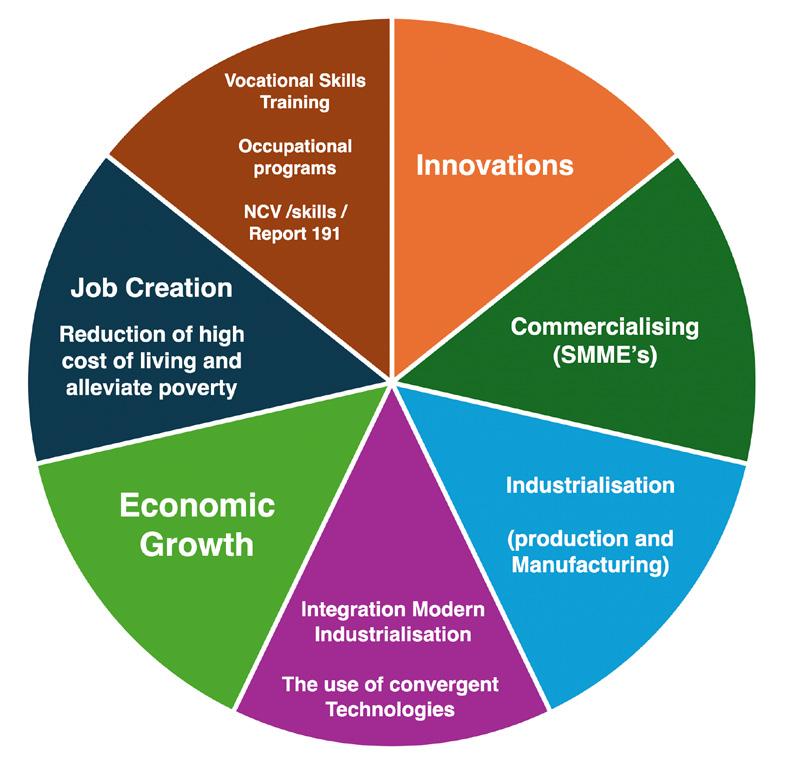
Muvhulawa Booi, Deputy Principal Academic Services, Vhembe TVET College Muvhulawa Booi, Deputy Principal at Vhembe TVET College, has over 17 years of experience at the institution, progressing from lecturer to her current role, overseeing academic services and curriculum development.
“When I joined the College, the pass rate was very low at 11% and increased to an average of 66% during Ms BR Hlekane’s, the principal’s, leadership at the College. One important factor that contributed to the increase in results is that students are doing a lot of practical work. They not only do practicals in the workshops, but they also go out to local schools and government entities to fix and also renovate where necessary, as per their curriculum.
“Our students are extremely proactive. As an example, in their own time, they manufactured
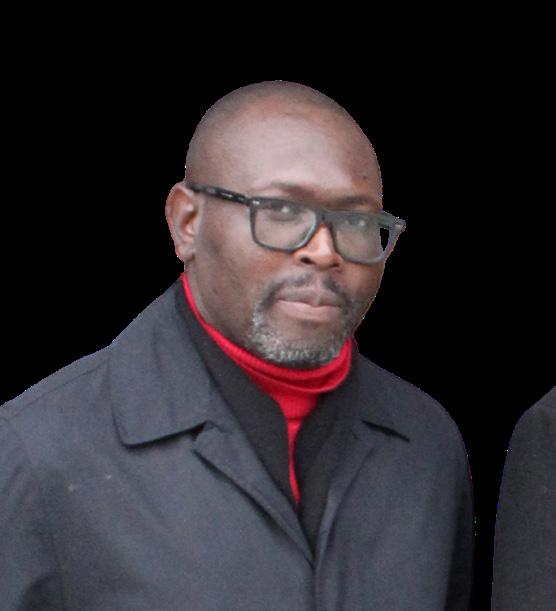
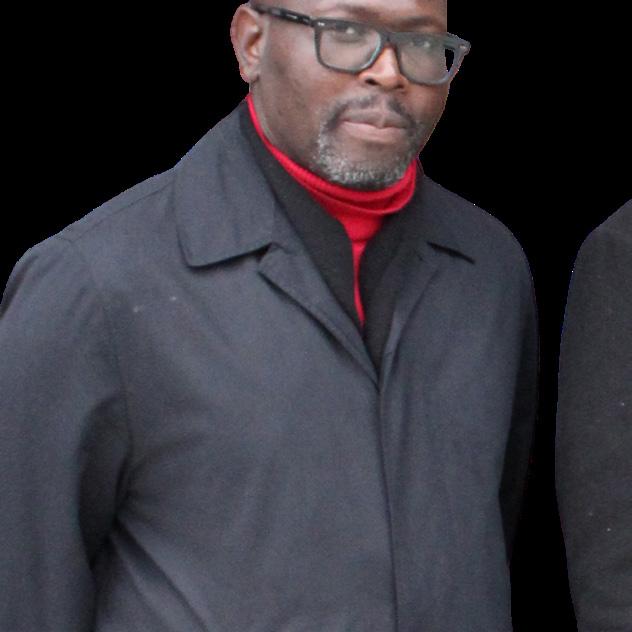
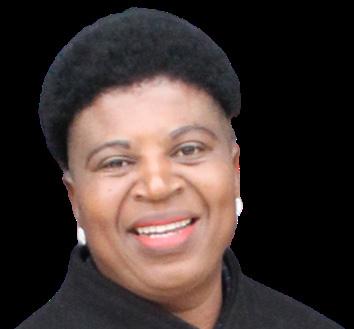
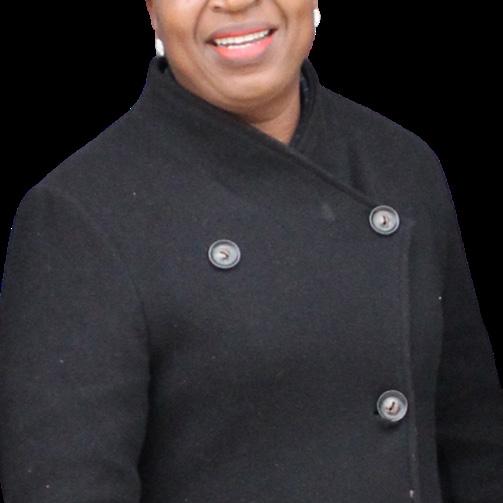

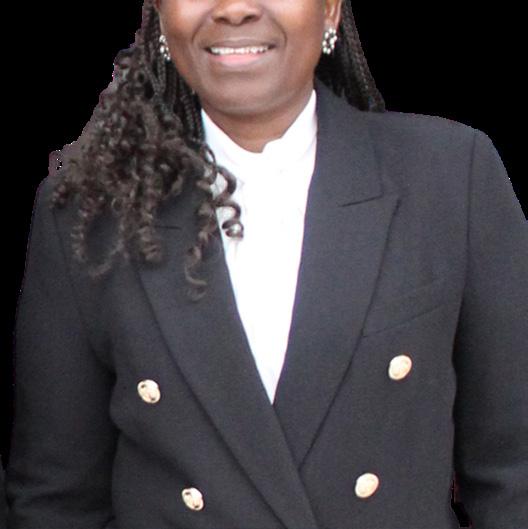
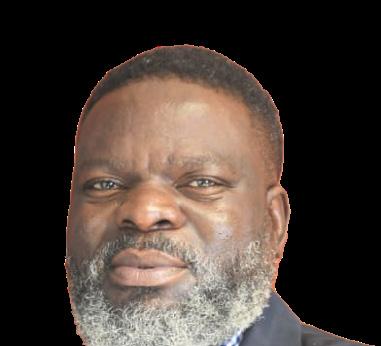
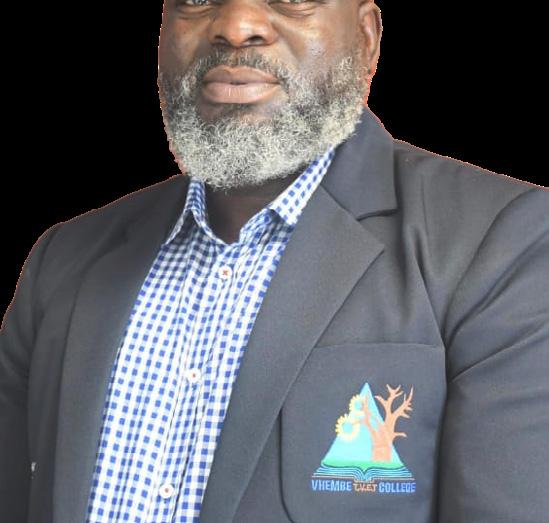
a car. To support these kinds of initiatives, before they create an object, they first do a prototype using 3D printers available, and then move to the technical centre for a final product.’
“We have developed a value chain approach in every programme at the College. For example, in agriculture, students plant crops and complete the value chain by commercialising. We also have an on-campus clothing production plant that provides students with practical experience and incubation support. To facilitate hands-on learning in hospitality, we have converted a then central office into a bed and breakfast centre for the hospitality students.
In each programme run at the College, there is innovation that is built up. Students are exposed to technology through the 4th Industrial Revolution (4IR) and Artificial Intelligence (AI) laboratories. Other projects include avocado plantations and water production facilities, enhancing the College’s operational capabilities. The college has acquired the land for the avocado plantation through collaboration with chiefs andcouncillors.
“Currently, about 5,000 out of 23,000 students are successfully placed in industry – challenges here include the fact that students require accommodation, food, and transport funding for mandatory industry placements in Cape Town or Johannesburg, and bursary funding covers education only, not industry placement living expenses.”
At TVET College, lecturers receive international training opportunities funded through external proposals rather than college funds. Recent graduations included both students and lecturers advancing their qualifications and independently innovating by converting classrooms into factory layouts. Ms. Muvhulawa Booi is a prime example of how staff at the College can progress and thrive in their chosen career paths.
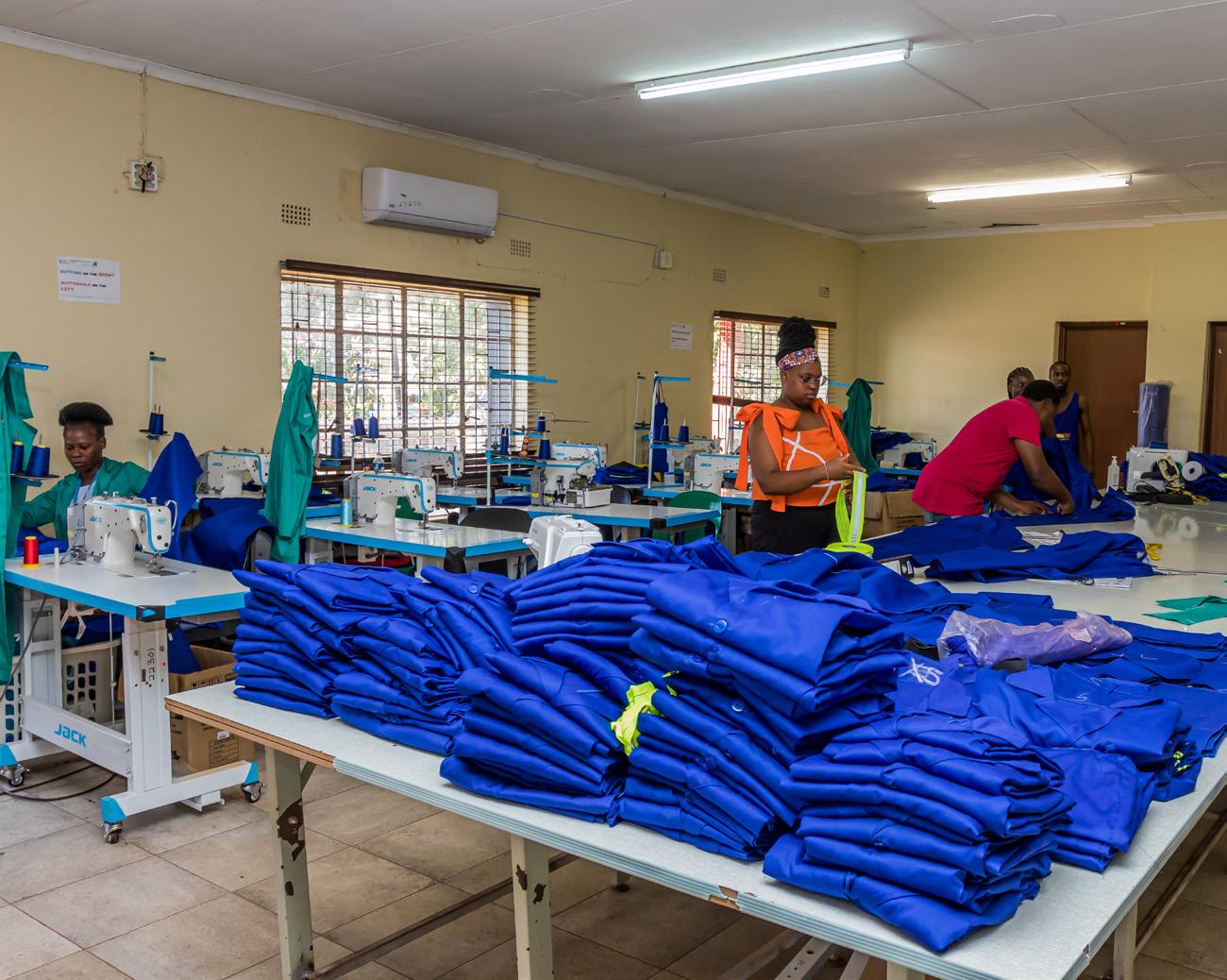

Mpho Silas Ramulifho, Deputy Principal: Corporate Services, Vhembe TVET College
Mpho Silas Ramulifho is the Deputy Principal: Corporate Services at Vhembe TVET College with key responsibilities across multiple departments including internal reporting and external reporting to the national department. He leads and manages the College’s marketing

and communication, ICT, human resource management and development, as well as facility management, including record management, fleet management, and maintenance. One of the responsibilities Deputy Principal Ramulifho is currently focused on is standardising operational structures for fair payroll comparisons. Annual report compilation at the College is also underway, essential for compliance and includes audited financial statements to assure stakeholders of financial health.
“I’m currently also dealing with the issues of the strategic plan which needs to follow all the processes, internal processes as well as the external processes. Processes like your communication processes, your consultative processes, the engagement with the external and internal structures, and all levels of management in the governance structure, which is the College Council, will therefore have to take the responsibility to
ensure that we meet the deadline of the strategic plan submission.” He says the aim is to have all new policies implemented within three years, using SWOT and PESTLE analyses to ensure compliance and relevance. Some of the initiatives being implemented are the strengthening of health and safety compliance, training and development for the College’s employees and ICT projects which are in response to the 4th industrial revolution and incorporate AI into teaching.
The vision for Vhembe TVET College includes transitioning to paperless administration and achieving competitive standing among educational institutions. Deputy Principal Ramulifho says the focus on clean audits and empowering staff across departments is essential for maintaining organisational integrity and fostering growth.
Kgotlo Rabothata CA(SA), Vhembe TVET College, Chief Financial Officer
Kgotlo Rabothata CA(SA), CFO at Vhembe TVET College since August 2016, is a qualified
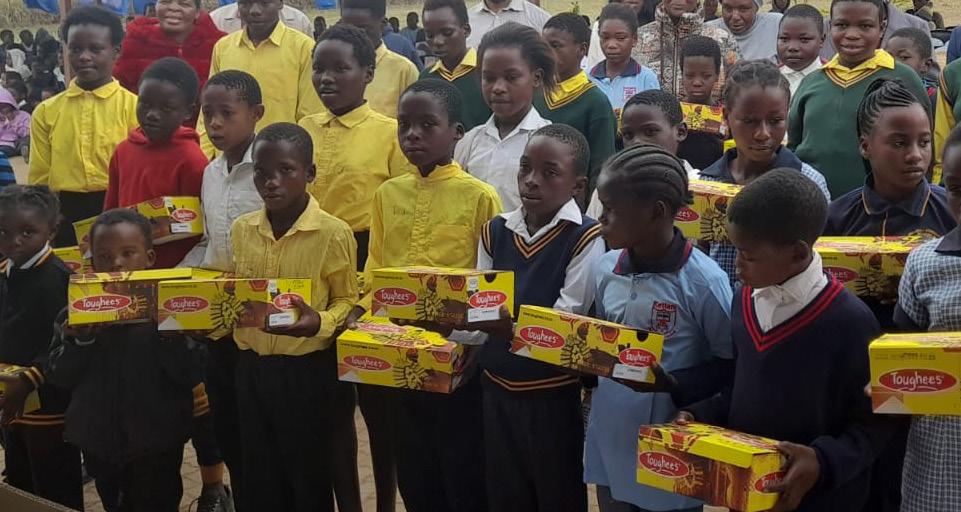
Shoe Drive: (from 2023 to celebrate 60 years)
Vhembe TVET College recently held a shoe drive to donate shoes to learners in need within the Vhembe District. The college, celebrating its 60th anniversary, aimed to donate at least 600 pairs of shoes to schools in the area. The initiative is part of a broader charity drive undertaken by the college.
chartered accountant focused on modernising finance operations to support academics.
The finance department is recognised as essential for the College’s academic vision, with a key goal of achieving a clean audit status for the 2025 financial year and maintaining an unqualified audit opinion for the 2024 financial year. Vhembe TVET College’s community engagement is highlighted through transparency initiatives and support for local businesses.
The relationship between CFO Mr. Rabothata and the principal is characterised by mutual respect, with an emphasis on resource allocation to align with the principal’s vision while allowing departmental autonomy.
He aims to transform the finance team through education and development, promoting further academic advancement for team members. “The management of seven campuses presents challenges; I have shifted to empowering campus managers through meetings and site visits to improve oversight and reduce

Food Drive: Vhembe TVET College is conducting a food drive campaign from June 1 to November 30, 2025, aiming to support families in need with Christmas groceries. In 2024, the college supported 60 families, and they hope to assist even more in 2025. The campaign is an initiative to make a positive impact on the community, and the college encourages everyone to participate.
micromanagement. A systematic approach to resource monitoring includes conducting audits to ensure efficiency and prevent wasteful expenditures in campus operations.”
Emphasising public service values, Mr Rabothata is a strong advocate for leadership that serves with passion and integrity, ensuring ethical standards are maintained.
“The future vision includes becoming self-funded through initiatives like developing a hospitality centre self-funded as part of a 3rd income stream, reducing dependency on departmental funding.
“We have demonstrated that improvements from previous qualification issues are due to implemented controls, setting a positive trend for future
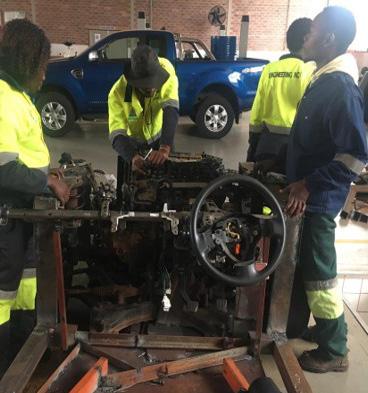
audits and operational stability. “I want to see the College achieving clean audits. That’s what I want to achieve. And also my team - asset inventory and supply chaingrowing academically as well.
“I always encourage the guys to go beyond and study. That’s my vision for the College. And to collect more funds from students and revenue for the College. So that we don’t continue being department funded but are able to self-fund. Like here at Makhado, having the hospitality centreit must be fully functional to ensure that we are able to generate some revenue.
“My message to the PSL readers:
“Serve the people, heartily, with love, with passion. Remain ethical, with integrity. All at zero cost”.


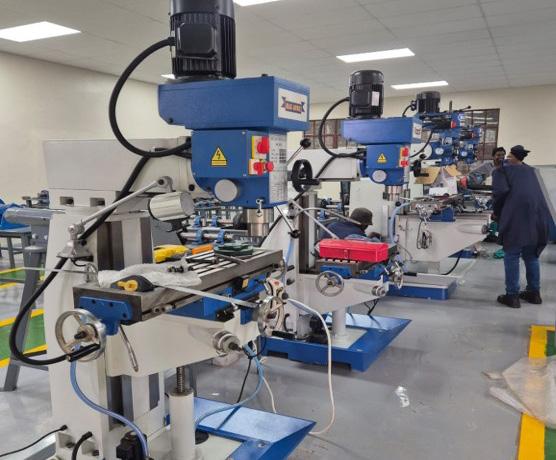
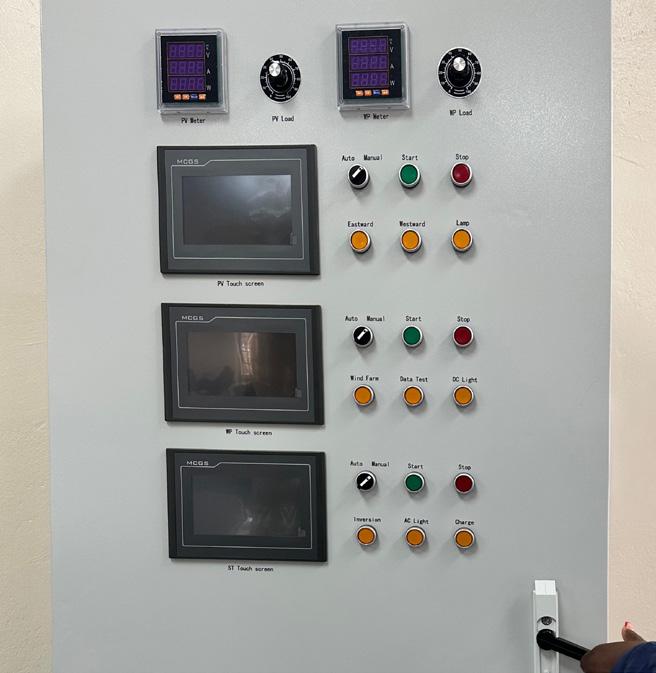

CONTACT
Tel: +27 (0) 15 963 7000
Email: info@vhembecollege.edu.za
Website: vhembecollege.edu.za
Address: Vhembe TVET College, Stand No. 203, Unit A, Sibasa, Limpopo, South Africa, 0970
Facebook: Vhembe TVET College - Central Office

BY FIONA WAKELIN

On 18 July each year we celebrate Madiba’s birthday by embracing the spirit of service, unity, and social justice that he championed. The day is marked by a national call to action: “67 minutes for Mandela” - symbolising the 67 years he spent fighting for human rights and social justice. And because he was a global icon, these 67 minutes are not just celebrated throughout South Africa, they are a global clarion call, which, some would argue, is needed now more than ever. This year’s Nelson Mandela International Day on 18 July will be celebrated under the theme: “It’s still in our hands to combat poverty and inequity.”

• Clean schools, clinics, or public spaces
• Paint or renovate community centres or orphanages
• Plant trees or create community gardens
• Assist at shelters or food kitchens

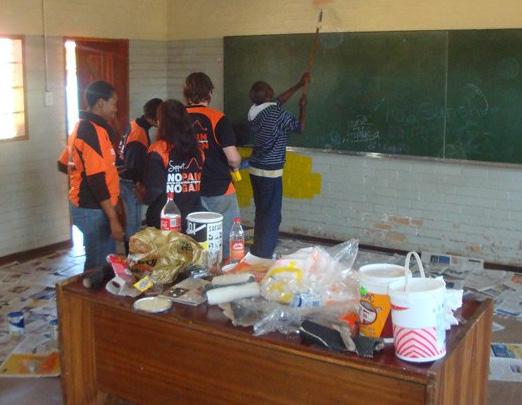
• Collect and donate food, clothes, books, or funds to underprivileged communities
• Partner with NGOs in your community
• Help elderly neighbours, distribute sandwiches, offer free services

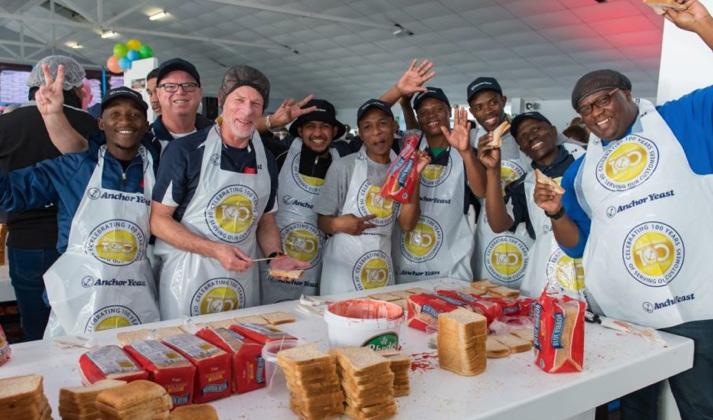
• Attend concerts, poetry, art installations, and other creative expressions of Mandela’s legacy
• Participate in communal walks and fun runs
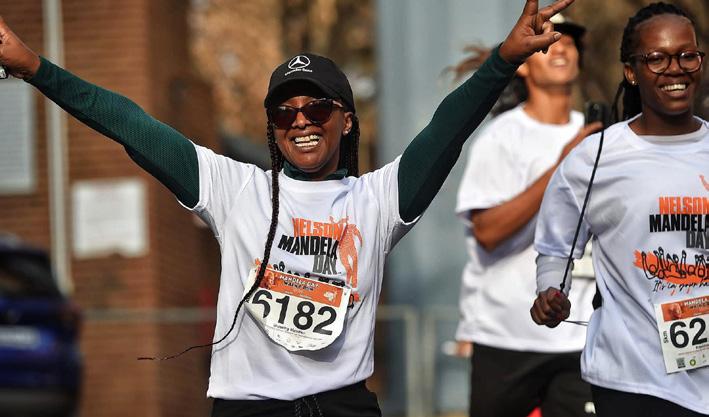
BY FIONA WAKELIN

1. 1.DP World Wanderers Stadium.
The highly anticipated Nelson Mandela Foundation Mandela Day Walk and Run 2025 event, is proudly brought to you by BP Southern Africa, Balwin Properties and Mahindra. Scheduled to take place on July 19th July 2025 at Wanderers Stadium, this annual event is dedicated to promoting community service and inspiring positive change within our communities.
This is an important occasion in celebrating Nelson Mandela’s legacy of unity, service and compassion. The event is expected to attract 10,000 walkers and runners united in spreading kindness and making a positive difference in their communities.
Participants have the opportunity to select from three distances - 5km, 10km,
and 21km. Entry fees vary from R 100 to R 200 for the event, which will commence and conclude at the DP World Wanderers Stadium, a proud supporter of the event this year. The 5km route will go through parts of Illovo and Melrose North, while the 10km and 21km routes will include sections of Houghton Estate, passing by some iconic sites such as the Nelson Mandela Foundation and Nelson Mandela’s residence.
Venue : DP World Wanderers Stadium, Corlett Drive, Illovo, Sandton, Johannesburg
2. French-South African Chamber of Commerce (FSACCI)
In the spirit of Ubuntu and shared responsibility, the French-South African Chamber of Commerce is partnering with Sandton SPCA, enabling teams to spend the full day volunteering at
the animal shelter. Activities included gardening, cleaning kennels, playing with animals, and creating a story-sharing library there
3. Lions Cricket and Ashraful Aid Lions Cricket and Ashraful Aid are once again joining forces for one of Johannesburg’s largest Mandela Day volunteer events, taking place on Thursday, 18 July 2025, at the iconic DP World Wanderers Stadium.
Now in its fifth year, this initiative has become a cornerstone of Mandela Day in Gauteng, drawing together hundreds of volunteers, corporates, and community members. The goal for 2025 is to pack 5,000 food hampers that will reach more than 20,000 vulnerable South Africans, including women-headed households, children, and the elderly.This collaboration between a
leading humanitarian organisation and a beloved sporting institution reflects a shared commitment to practical, community-driven impact. From 09h00, volunteers will fill the stadium field, working side by side, guided by Madiba’s enduring values of compassion, dignity, and service.
Keeping stories alive: a Mandela Month call to support township literacy
On Saturday 26 July, the streets of Khayelitsha will come alive with the sound of stories. Children will gather at the Thusong Centre with wide eyes, open ears and eager hearts.
The 3rd Annual Khayelitsha Children’s Book Fair, hosted by Uhlanga Books, is not just a celebration of storytelling. It is a bold and joyful response to one of South Africa’s most pressing challenges: the literacy gap in under-resourced communities. Rooted in the theme “Kwathi ke kaloku Ngantsomi”, the fair honours Africa’s rich oral traditions. The phrase, in isiXhosa, is traditionally used to begin folktales and means “Once upon a time, in a story…”. It signals that what follows will be a journey into imagination, memory, wisdom, and wonder.
Children will take part in storytelling sessions in indigenous languages, critical-thinking games, and reading corners, and each child will leave with a book of their own to take home.
“The book fair is about more than reading; it’s about visibility, identity, and power,” says Zimkitha Zilo, founder of Uhlanga Books. “It’s about reminding our children that their stories matter, that imagination is a right, and that language is a bridge, not a barrier.”
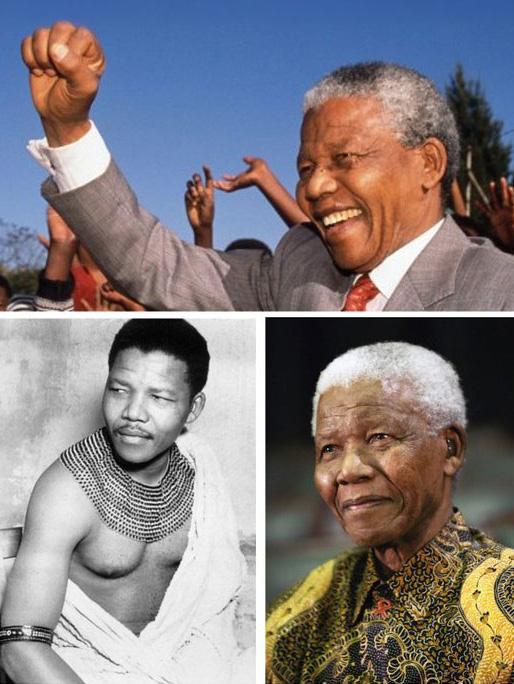
This year, Rise Against Hunger Africa will host several large-scale national events in recognition of the life and service of Nelson Mandela. These events provide a platform for corporate volunteers to give 67 minutes of their day and pack nutritious meals. For a donation of R12 950.00 per team, corporates are encouraged to send teams of 12–18 staff members to participate and represent their organisation. Meals packaged provide hope and
nutrition to Early Childhood Development centres, which Rise Against Hunger Africa supports. The ECD Connect programme links good nutrition with education for thousands of children during their developmental years. Our ongoing theme of It Starts With a Meal highlights that when children start their lives by receiving nutritious food during their formative years, they have an increased chance of developing both physically and mentally, which sets their lives on track for a better future.
BY FIONA WAKELIN
18 people
36 people
72 people
July 9, 2025
• Location 1: Bloemfontein –Windmill Casino
July 11, 2025
• Location 1: Pietermaritzburg –Golden Horse Casino
July 18, 2025
• Location 1: Durban –The Station
• Location 2: Johannesburg –Sandton Convention Centre
• Location 3: Midrand –Mall of Africa
• Location 4: Cape Town –GrandWest Casino and Entertainment World
6. Adpot-a-School Foundation
Back to School for Mandela Day 2025
Back to School for Mandela Day commemorates the principles of active citizenship and volunteerism. This campaign serves to recognise and support the dedicated organizations that operate on the front lines, advocating for various social causes that are crucial to the overall welfare and progress of our society.
Since 2012, our Back to School for Mandela Day initiative has mobilised corporate partners to return to schools and dedicate
67 minutes to meaningful volunteerism. These initiatives are aligned with the Foundation’s Whole School Development model, which encompasses a comprehensive approach to fostering holistic and sustainable change in our schools. By focusing on key areas such as infrastructure improvement and learner support, we strive to create a nurturing educational ecosystem that equips learners for future success.
The Foundation calls upon corporates to partner with the Foundation and create a conducive teaching and learning environment at a school in Soweto.
The corporate package costs R35 000.00 for a maximum number of ten people.
7. The United Nations
On 18 July, the United Nations will once again honour Nelson Mandela’s legacy with a special
commemoration in the General Assembly Hall and a service project.
The 2025 theme for Mandela Day is “It’s still in our hands to combat poverty and inequity”.
This year, the General Assembly event will include the awarding of the 2025 UN Nelson Rolihlahla Mandela Prize to Brenda Reynolds, a Salteaux woman from Canada supporting the health and wellbeing of Indigenous communities, and Kennedy Odede, who grew up in the Kibera slum and founded SHOFCO – Shining Hope for Communities – aiming to combat poverty and gender inequality.
Secretary-General António Guterres and President of the General Assembly Philemon Yang will award the prizes in a webcast event on 18 July starting at 10 AM ET.
#itsinyouhands
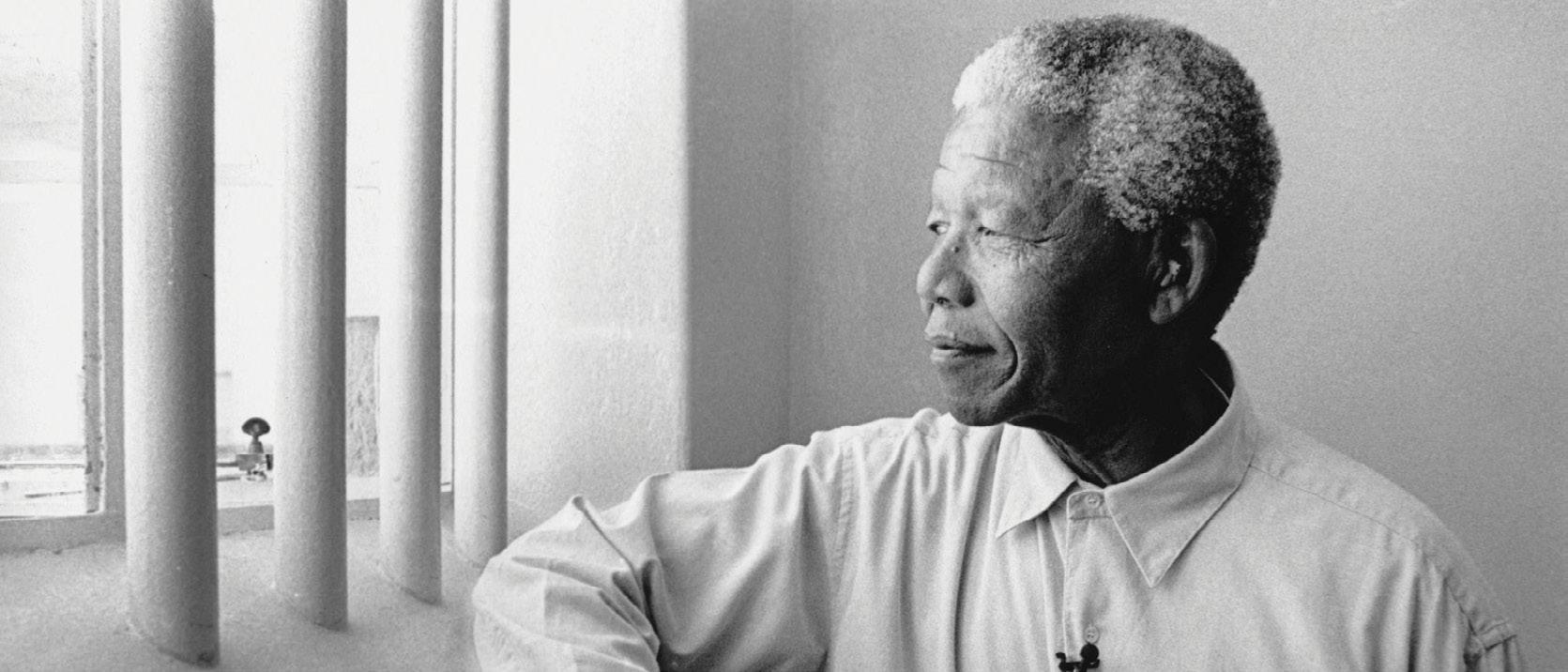

CONSTITUTIONAL COURT ANNIVERSARY
BY KOKETSO MAMABOLO
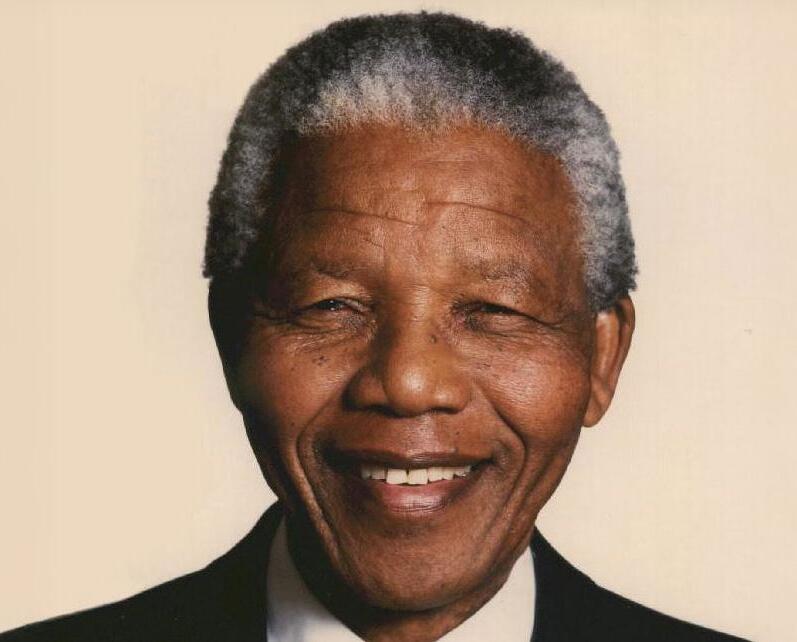

“The belief in justice is only possible in a society that is founded on justice,” said Tembeka Ngcukaitobi SC, in a public lecture for the law students at the University of Johannesburg in 2018. “And perhaps the greatest lesson we can take from Mandela the lawyer is the abiding belief in the justice of the system.”
Ngcukaitobi, one of the brightest minds in South African law and author of The Land is Ours: Black Lawyers and the Birth of Constitutionalism in South Africa, was sharing the story of Nelson Mandela’s legal career, an under-researched period in a life that has otherwise been thoroughly covered. The country’s most famous lawyer
did not want to be a lawyer, explains Ngcukaitobi. He wanted to be an interpreter, to help his mother, but would eventually spend a decade practising as an attorney, obtaining his LLB two decades later while in prison, and eventually becoming one of the country’s great constitutionalists. In October of 1994, months before the inauguration of the
Constitutional Court envisioned in the interim Constitution, President Nelson wrote a letter for readers of the legal journal Consultus. In it he called on the legal fraternity to play their role in upholding the new constitutional order.
“Within this constitutional schema the courts are granted a prominent role,” wrote President Mandela. “Our courts and those who work in them now find themselves on the centre stage. They will also be important players in making the Constitution work.”
Speaking at the 30th anniversary celebrations of the Constitutional Court, the highest court in the land, Justice Mandisa Maya, the sixth to serve as Chief Justice since 1995, reflected on how the courts have made the Constitution work, ensuring that addressing socio-economic rights is a constitutional imperative.
“Thirty years on, South Africa has made real strides in respect of law, governance, and constitutional accountability. We have entrenched the rule of law and judicial independence, and abolished almost, if not all the unjust laws and replaced them with progressives ones that are intended to entrench human rights, protect vulnerable groups and ensure a just and equal society.”
Justice Maya was addressing guests who included President Cyril Ramaphosa, and former Presidents Thabo Mbeki and Kgalema Motlanthe, members of the legal fraternity, government ministers, MPs, diplomats and political leaders.
They were joined by the Chief Justices of Botswana, Zimbabwe,
Canada, Nigeria, Namibia, and the Kingdom of Eswatini, along with the President of the Supreme Constitutional Court of Egypt, the President of Mozambique’s Constitutional Council and judges from the Supreme Courts of Kenya and India.
“These trailblazing justices boldly embraced the extraordinary challenge of building a court from scratch both physically and institutionally, and crafted a foundational framework for South Africa’s constitutional jurisprudence,” said Justice Maya, welcoming the four judges who were part of the court’s first eleven.
Former Constitutional Court judge Albie Sachs touched on what it felt like in that period of transition to a constitutional democracy at an event on the eve of last year’s elections, hosted by the Nelson Mandela School of Public
Governance at the University of Cape Town. “It’s almost like a three-act play. And you don’t know: Is it a tragedy? Is it an epic? Is it a comedy? In a way, it’s got all of that. But it’s a very noble story. And it’s a story not about one noble man, but about a people who found nobility, not only in the midst of horror and abuse, but in response to an abuse.
“It’s a beautiful story,” said Justice Sachs, who was one of the four who attended the anniversary celebrations, alongside Justices Kate O’Regan, Johann Kriegler and Richard Goldstone, who were appointed by President Nelson Mandela three decades ago.
The great constitutionalist An example of Nelson Mandela’s respect for the Constitution was his response to the court deciding that proclamations he had made following decisions by parliament regarding the first

BY KOKETSO MAMABOLO
democratic local elections were unconstitutional. “He [Mandela] had appointed us,” said Justice Sachs. “He’d become the symbol of the transformation and change and courage, and we struck down proclamations issued by him.” Shortly after Mandela appeared on live television and made a different kind of proclamation: He admitted he had been wrong. The legal advice he had received had been wrong and told the nation that he accepted the court’s decision and doing so, importantly, as the president. Mandela, the constitutionalist and champion of justice. “Now, for me, that was a hallelujah moment,” continues Justice Sachs. “For me, equal to 27 April
1994, when we became a political democracy – our equivalent to independence – that day, and I don’t even know what the date [was], we became a constitutional democracy.
” This was just months after the President had inaugurated the court, in February of 1995. On that he had articulated his belief in constitutionalism which came from his belief in justice.
“Constitutionalism means that no office and no institution can be higher than the law. The highest and the most humble in the land all, without exception, owe allegiance to the same document, the same principles.”
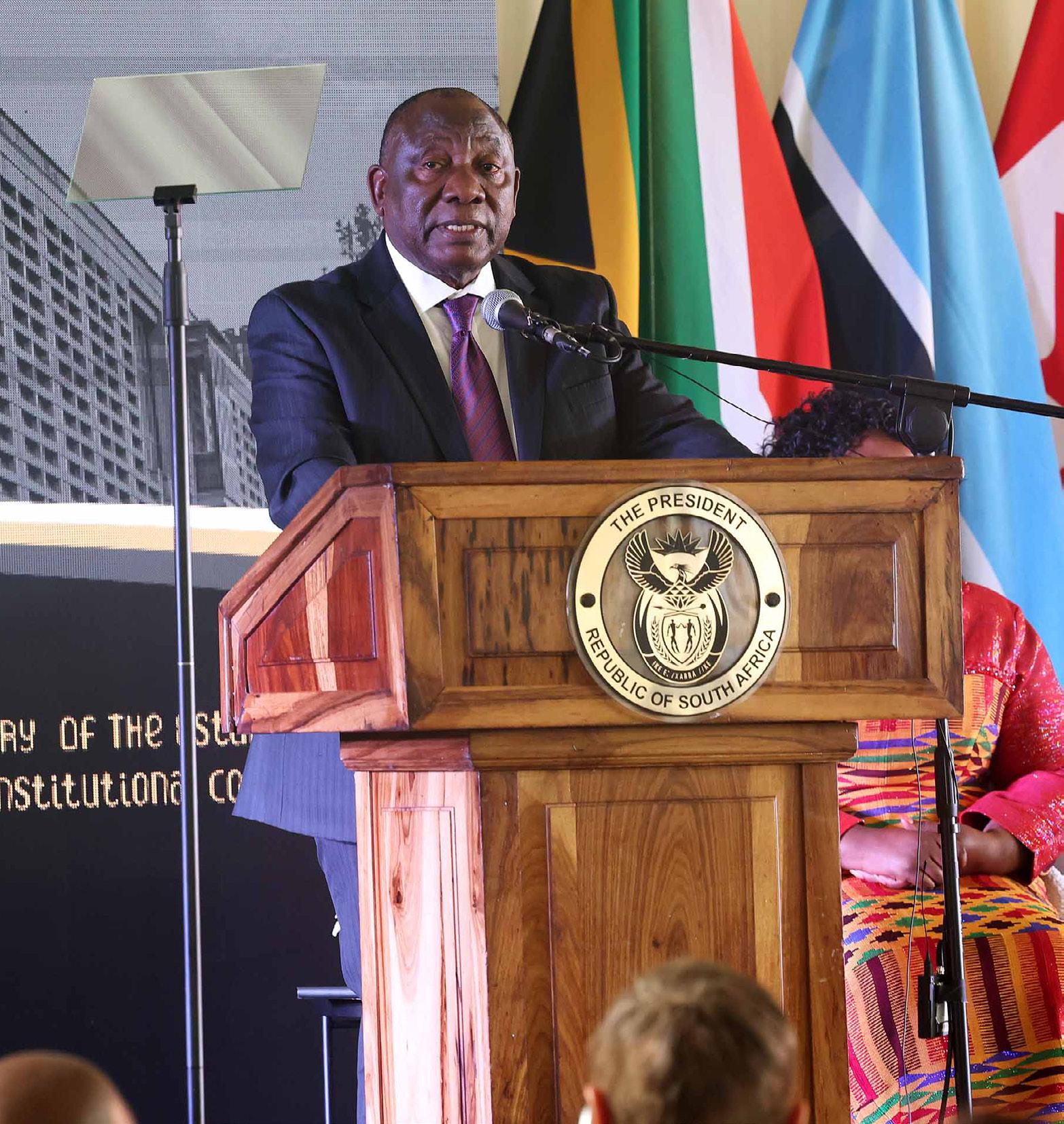
That magnificently drafted document, and its notion of a ‘Bill of Rights’ in particular, traces its history back to the 1920s. The post-WWII Atlantic Charter influenced further development and the idea was taken even further with the drafting of the Freedom Charter, seventy years ago this year.
A commitment was made following a conference in 1991 to the creation of a Constitutional Court. At the time, the Supreme Court and the Appellate Division were the highest courts in the land.
Three years later, President Nelson Mandela, after consulting the first GNU cabinet and apartheid’s last Chief Justice of the Appellate Division, Judge Michael Corbett, appointed Arthur Chaskalson, who had been a senior counsel and national director of the Legal Resource, as President of the Constitutional Court (which would later be joined with the role of Chief Justice).
President Mandela then chose four judges from the ranks of the Supreme Court: Judges Laurie Ackerman, Richard Goldstone, Tholie Madala and Ismail Mohamed. From there a list of one hundred other candidates was reduced to twenty five candidates who were interviewed in October of 1994 over a period of four days by the Judicial Services Commission (JSC). The JSC whittled it down to ten candidates to present to President Mandela who made the final decision on the six to fill the remaining spots. Included in the four who

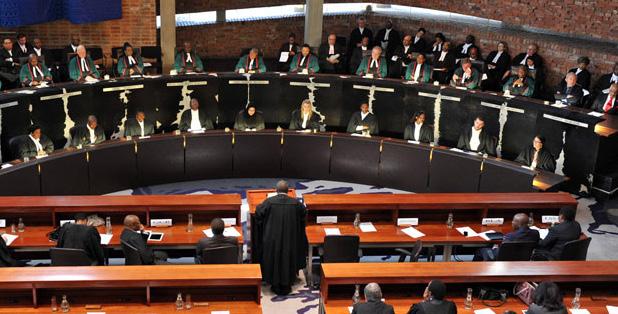
weren’t appointed was Bernard Ngoepe, who would go on to become South Africa’s first Tax Ombudsman, Chancellor of UNISA, and briefly serve as a Constitutional Court judge on an acting basis. Also on the list was prominent public international law academic Professor John Dugard.
Ultimately, President Mandela chose Professors Yvonne Mokgoro, Kate O’Regan, and Albie Sachs; Justices John Didcott and Johann Kriegler, and Pius Langa SC.
At their inauguration, President Mandela described the nature of the path which Justice Maya would allude to thirty years later:
“To Judge Arthur Chaskalson and other members of the Constitutional Court let me say the following: yours is the most noble task that could fall to any legal person. In the last resort, the guarantee of the fundamental rights and freedoms for which we have fought so hard, lies in your hands.
“We look to you to honour the Constitution and the people it represents. We expect from you, no, demand of you, the greatest use of your wisdom, honesty and good sense - no short cuts, no easy solutions. Your work is not only lofty, it is also lonely.
“In the end you have only the Constitution and your conscience on which you can rely. We look upon you to serve both without fear or favour.”
Those words, and the occasion, meant a great deal to the judges who took on the mantle.
“It was so meaningful for us as judges,” recalls Justice Sachs. “Not only that the president of the country had been there on that occasion [inauguration], but Nelson Mandela, who for the world and for our people had represented so much.”
He represented the people and, as he said, “The people speak through the Constitution.”
“The last time I appeared in court was to hear whether or not I was going to be sentenced to death,” said President Mandela at the inauguration.
“Fortunately for myself and my colleagues we were not. Today I rise not as an accused but, on behalf of the people of South Africa, to inaugurate a court South Africa has never had, a court on which hinges the future of our democracy.”
As noted by Justice Maya, and President Ramaphosa in his keynote address at the anniversary celebrations, the future of the country’s democracy still hinges on the court. It is indeed the tree that covers us all, its branches forever growing, protecting all of South Africa’s people. Mandela represented the people and, as he said, “The people speak through the Constitution.”
BY SHUMIRAI CHIMOMBE

15 minutes
• 2 cups water
• 1 tsp salt
• 3 cups maize meal
Serves 4 30 minutes + cooling
• dried fruit and nuts, to garnish
METHOD
Put the water and salt in a medium-sized lidded saucepan over medium-high heat and bring to the boil. Add the maize meal, cover, and bring back to the boil.
Once the maize meal is boiling, stir it with a fork until the water is absorbed and the maize meal is crumbly and not sticking together. Cover again, reduce the heat, and cook until it is soft and fluffy, about 25 minutes.
Sprinkle with dried fruit and nuts, and serve.
Source: Daily Maverick
For 22 years, award-winning chef and cookbook author Xoliswa Ndoyiya was Madiba’s personal and family chef, from his presidency to his retirement and until his passing.
She was born in a small town called Queenstown, now renamed Komani, in the Eastern Cape. A child of a domestic worker, she could not have imagined that her life trajectory would take a sudden and extraordinary turn; and she would become one of the most important figures in the life of South Africa’s first democratically elected president.
“I was raised by my parents, and my mother ended up being a divorcee but she raised me to be humble and to respect people. This has helped me a lot because

now I know that when you are humble and respect people, they will respect you back,” she said in an interview with the lifestyle programme Afternoon Express on SABC3 earlier this year. Xoliswa learned to blend love, memory, and identity on a plate from her grandmother.
They were at the legendary Sanctuary Mandela Boutique Hotel in Houghton, Johannesburg where she is the Chef de Tournant in the fine-dining restaurant Insights. The restaurant serves dishes inspired by Madiba’s favourite meals. As a tribute to the icon, the menu is created around dishes that Xoliswa, or Sis’Xoli as she is affectionately known, made for Madiba but with a contemporary modern touch. While giving a special tour around
the hotel she shared some rare stories and personal memories of Madiba’s time in this historic space. Before the building was refurbished it used to be Madiba’s personal residence.
Standing in the formal lounge, Xoliswa explained that this room was very important and memorable for her because this is where she saw Madiba for the first time. He had been on the look out for a chef who could cook his favourite traditional meals.
“It was in 1992 when a friend of mine, Gloria Nocando, introduced me to him. Trusting my cooking and trusting me she told him about me. But I didn’t know that I was going there for a job interview. When I saw Tata in his lounge he asked me if I could cook
BY SHUMIRAI CHIMOMBE
for him. I didn’t hesitate, I just said yes immediately because I was already happy that this was the icon I was going to serve. When I served that day everything on the plate was finished; the only thing that he couldn’t eat was the rice. Then he told me ‘Don’t worry about the rice, I don’t like rice at all.’ That’s when I started knowing that he loved his vegetables and his proteins.”
In another walk down memory lane, Xoliswa led the way into Madiba’s former bedroom. “I used to wake up early in the morning and serve him his first cup of coffee. He would take that cup of coffee to go downstairs into the garden to do his push-ups. That was an encouraging thing for me because when you look at that energy early in the morning you feel that I should have the same energy.”
Another aspect of Madiba that endeared him to Xoliswa and the rest of his team who served him was that he made his own bed every morning.
“When you entered Tata’s bedroom early in the morning you’d find that this bed was made neatly, nice and clean. Out of the values and the principles that I have taken from Tata I chose four - the love, the sharing, the caring, and most of all, the respect that all of us received from Tata. So you could see the respect that he was showing us by indicating that ‘I don’t need somebody else to do things for me. I always do them even if you can come in and make them the other way around. But I have done it because I’m not a lazy person.’
A culinary tribute to Tata Madiba - dishes from his roots With ingredients grown in the hotel gardens chef Xoliswa cooks up many dishes that Madiba and his guests enjoyed the most.
She explained that when she travelled with Tata and his wife Graça, three dishes were closest to his heart - oxtail stew and samp and beans were his favourite dishes. Then there was uphuthu (a staple, traditional South African dish that is made from maize meal) or umphokoqo (a creamy maize meal porridge or pap made with fresh milk) . “Umphokoqo was one of those dishes that he grew up eating at home,” she said.
Sharing Tata’s favourite meals with the world through storytelling
In an interview with MyKitchen, she said: “Food brings people together and helps them create memories. It is a centre of celebrations where love is shared. I cook from a place of love and my food connects people. It is my way of honouring my guests. Since I can’t be everywhere, a cookbook allows me to share my recipes as a gift to people to make and be joyful. Essentially, it gives me an opportunity to spread love.
Xoliswa has published two cookbooks to share the experience of cooking, eating and enjoying the food that Mandela, his family and guests enjoyed, including visiting heads of state, celebrities, and politicians.
Ukutya Kwasekhaya: Tastes from Nelson Mandela’s Kitchen (2011) Real African Publishers (2011)
‘Ukutya Kwasekhaya’, which means “Home Food” in isiXhosa, the home language shared by Xoliswa and Madiba, contains more than 60 recipes for the meals she cooked for him. In the book she serves up a simple, delicious, nourishing and visually appealing set of recipes for easy to prepare dishes.
These include samp and beans, farm chicken, tripe, as well as paella, peri-peri chicken, and prawn curry. Handwritten notes from Mandela and Oprah Winfrey are also included.
With
and Memories from Nelson Mandela’s Personal Chef (Blackwell and Ruth Limited - 2023)
Paying homage to Tata Madiba’s legacy through food, prepared and cooked with love, this cookbook is a collection of 50 unique recipes accompanied by Xoliswa’s personal recollections and anecdotes of the time she spent with Mandela. It also includes a foreword by Nandi Mandela, Nelson Mandela’s granddaughter.
Recipes she holds close to her heart which are in the book include umsila wenkomo or oxtail stew. “He couldn’t go a week without samp and beans and oxtail stew.”
Another one is umphokoqo (mielie meal porridge). “Tata loved this dish so much I once had to arrange for it to be smuggled into England. Tata was visiting London and I got a call to say that Tata was not himself - he was missing his umphokoqo. So I cooked some up and we wrapped it nicely
and wrote on the outside ‘The President’s Medication’ which is how it was able to be smuggled into Tata’s hotel!”
Nourishing food for thoughtHonouring Mandela’s legacy Xoliswa was the winner of the Food Icon Award for her lifetime achievement and contribution to South Africa’s food industry at the Food XX Africa 2024. Food XX Africa spotlights women working in food-related sectors across the
continent. The movement is best known for its biennial award, the Food XX Africa – Women in Food, which celebrates the outstanding contributions of women in the food and hospitality industry.
“When you talk about Matiba’s legacy you cannot stop talking about it because there’s a lot that he has done for the children of South Africa. And when Tata looked at the youth of South Africa he said that he wants everything
to be in their hands because he could see the potential in the young people, and he could see that everyone could live to their full potential. Watching Tata giving out to people and expecting no reward, I think this is how I would love to leave a legacyif I could give without expecting any reward from anyone. Once Tata told me that in life you must never give up, and that’s what I intend to do - to never give up.”
- Chef Xoliswa Ndoyiya

BY JESSIE TAYLOR
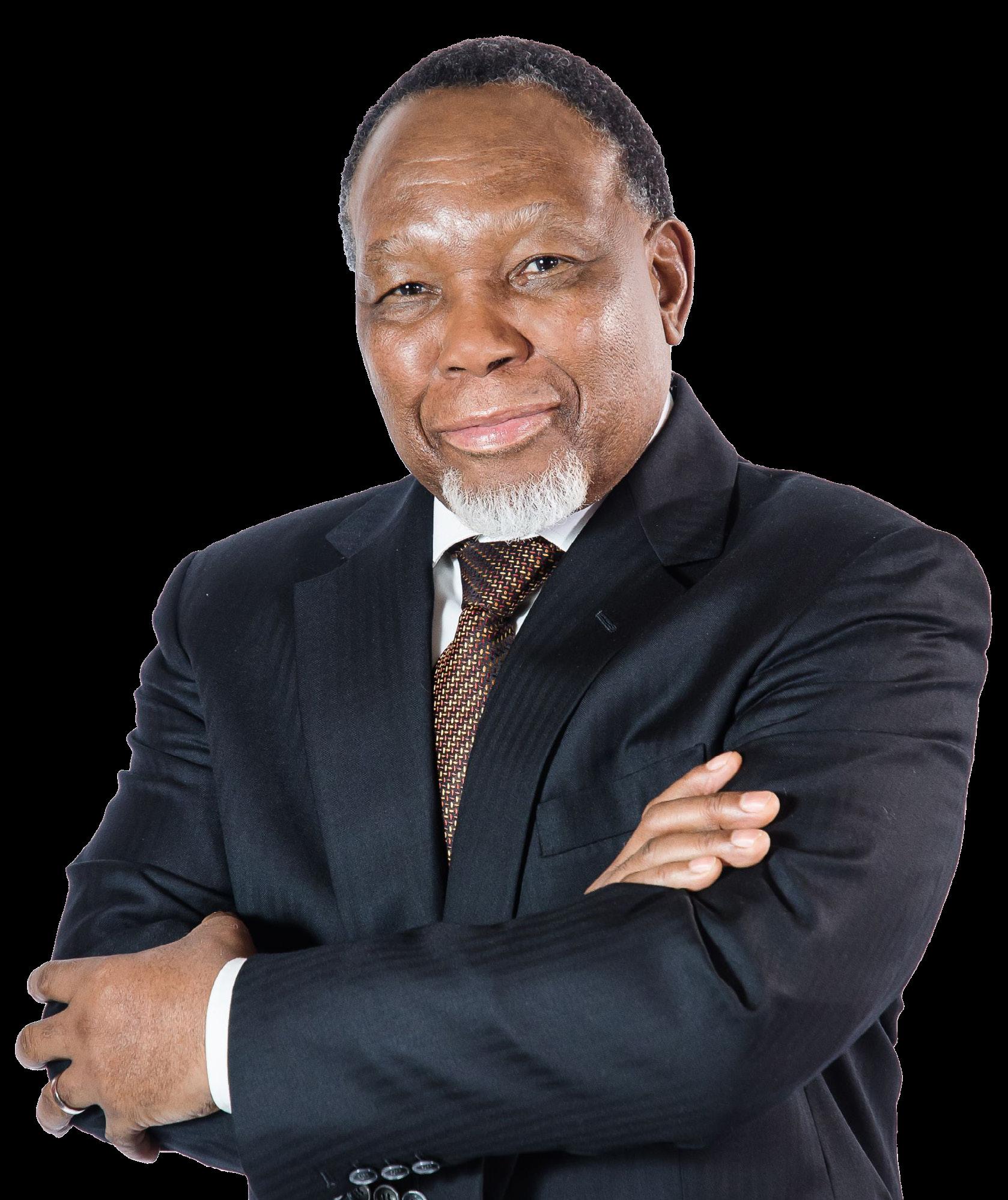

Kgalema Motlanthe is one of South Africa’s most respected statesmen. A former trade-unionist, prisoner on Robben Island, ANC SecretaryGeneral, caretaker President and Deputy President, he has shaped South Africa’s democratic arc with calm authority, moral gravitas, and unwavering respect for the rule of law.
Even two decades after his presidency, Mr Motlanthe remains a moral and intellectual beacon, deepening Madiba’s legacy through his roles in foundation governance, international peacemaking, and youth development.
A prominent trustee of the Nelson Mandela Foundation, Mr Motlanthe belongs to the vanguard of leaders upholding Madiba’s ethical legacy. The Foundation continues to strengthen democracy in South
Africa through memory work, dialogue and justice initiatives. Mr Motlanthe’s trustee role highlights his commitment to speaking truth to power, preserving historical memory, and advancing socio-economic transformation within Madiba’s vision of a fair and inclusive South Africa.
As trustee of the Mandela Foundation, Motlanthe participates in memory-work that encourages healing, inclusivity and democratic discourse. His ongoing service exemplifies his own belief that remembering history is essential to confronting present injustices and shaping a more equitable polity.
He is no stranger to promoting socio-economic development. In 2015, after leaving office, Mr Motlanthe founded the Kgalema Motlanthe Foundation, of which he remains patron. The organisation’s motto,
“As trustee of the Mandela Foundation, Motlanthe participates in memory-work that encourages healing, inclusivity and democratic discourse. His ongoing service exemplifies his own belief that remembering history is essential to confronting present injustices and shaping a more equitable polity.”
“Dialogue Among Equals”, reflects its mission: inclusive socio-economic development through digital-literacy programmes, youth leadership, civic engagement, and community upliftment. This work amplifies his dedication to equal opportunity - a principle rooted in his years of struggle and his alignment with Mandela’s values of equality and dignity for all.
Mr Motlanthe was drawn into the liberation movement at a young age. After recruitment to Umkhonto we Sizwe and nearly a decade in prison, he emerged as a union leader who championed miners’ rights through education and improved wages. Elected ANC Secretary-General in 1997, he was elevated to Deputy President of the ANC in 2007, then stepped in as national President in 2008 during a turbulent leadership transition, and stabilised the nation as Deputy President from 2009 to 2014.
Continued influence
Mr Motlanthe’s impact continues well beyond his governmental roles, with several high-profile engagements that underscore his relevance as a mediator of peace, advocate for education, and guardian of democratic values.
In March, Mr Motlanthe was appointed alongside former leaders such as Olusegun Obasanjo (Nigeria) and Sahle-Work Zewde (Ethiopia) to a panel of former heads of state to help mediate a settlement of the M23-driven insurgency in eastern DRC. The tensions in the region had escalated to humanitarian crisis levels, drawing strong regional and global concern.
In his role, Motlanthe contributes diplomatic gravitas and regional credibility to negotiations that aim to stabilise eastern DRC, de-escalate violence, and protect civilian populations. The ANC praised this appointment as recognition of South Africa’s constructive influence in Great Lakes politics. Through his inclusion in the DRC peace-mediation
Source:
panel, Motlanthe demonstrates that former presidents can continue to exercise moral leadership and influence global peace-making processes. His approach reinforces diplomacy built on shared African agency—especially South Africa’s legitimacy as a peacemaker active across the continent.
In the same month, the University of Johannesburg conferred upon Mr Motlanthe an honorary Doctorate in Politics and International Relations. UJ ViceChancellor Prof Letlhokwa Mpedi applauded his lifelong dedication to governance, democracy, social justice, and especially education’s role as a catalyst for transformation. In his acceptance speech, Mr Motlanthe underlined the urgency of cultivating critical thinking and integrity amid the waves of digital manipulation that threaten democratic debate.
By combining the honourific platform of an honorary doctorate with real-world action through his foundation, Motlanthe highlights the interplay between intellectual empowerment and practical impact. His advocacy for critical thinking in the digital age tackles head-on the vulnerability of democracies to misinformation and authoritarian narratives.
Known as “Mkhuluwa” (elder brother), Mr Motlanthe is admired for consistency, humility, and principled leadership - even under pressure. His public demeanour conveys calm, foresight and integrity. From liberation activism to transitional governance, and now shaping continent-wide peace efforts and educational equity, his journey reflects an unwavering life of service across arenas.
Mr Motlanthe is more than a historical figure: he is an active trailblazer shaping South Africa’s and Africa’s future. From preserving Mandela’s legacy and advancing peace, his work reflects the same moral compass: one established on equal dignity, ethical leadership, and uncompromised democratic values.
BY JESSIE TAYLOR

YOLANDA CUBA , VICE PRESIDENT FOR THE SOUTHERN & EAST AFRICA REGION AT MTN GROUP
In boardrooms, on global panels, and at the heart of high-impact leadership, Yolanda Zoleka Cuba is synonymous with transformation. From her early rise as one of the youngest CEOs on the Johannesburg Stock Exchange to her current role as Group Vice President for Southern and East Africa at MTN, Ms Cuba has consistently charted a path defined by strategic innovation, purpose-driven leadership and social impact. Her influence spans corporate leadership, digital transformation, youth development, and governance. Now, as a Trustee of the Nelson Mandela Foundation, she stands at the intersection of heritage and future, bridging South Africa’s legacy of liberation with its digital and developmental ambitions.

A purpose-driven leader Born and raised in South Africa during the country’s transition to democracy, Ms Cuba’s ascent in the corporate world was meteoric. By 29, she had already been appointed CEO of Mvelaphanda Group, making her one of the youngest chief executives of a JSE-listed company. She would hold strategic executive positions at Vodacom, SAB, and Vodafone Ghana before taking up her current regional executive role at MTN.
Across these roles, Ms Cuba has become known for her financial and strategic expertise and people-centred leadership approach. Whether driving regional expansion strategies, unlocking digital innovation, or repositioning organisations for inclusive growth, she places ethics and empowerment at the core of everything she does.
In 2022, Ms Cuba was appointed as a trustee of the Nelson Mandela Foundation, a position she described as humbling and deeply meaningful. The Foundation’s mission to contribute to the making of a just society aligns closely with her values, anchored in inclusive opportunity, dignity, and ethical leadership.
Her role on the Board involves providing strategic oversight and contributing to dialogue-centred programming that promotes social justice and memory-based activism. With her background in digital transformation,
Ms Cuba brings a forward-looking perspective to the Foundation’s work, helping bridge the gap between historical advocacy and future-focused innovation.
She’s been instrumental in enhancing the organisation’s governance structures and expanding its digital reach. Her focus has been on bringing the values of the Foundation into a digital era - ensuring that the work of memory, justice and dialogue remains relevant and resonant with younger generations.
In many ways, Ms Cuba’s role with the Foundation mirrors Nelson Mandela’s vision of transformation through service and education. She embodies the next generation of leaders charged with preserving South Africa’s democratic gains while ensuring they adapt to the needs of an increasingly digital society.
Leading Africa’s digital expansion
As MTN Group Vice President for Southern and East Africa, Ms Cuba oversees operations in more than 10 countries. Her leadership has been central to MTN’s pivot from a traditional telecoms provider to a digital platform powerhouse. Under her guidance, the company has expanded its fintech and mobile money solutions, particularly in underserved markets.
One of her key achievements has been the push towards mobile money interoperability, ensuring MTN’s financial services work across different networks to
BY JESSIE TAYLOR
deepen access and usability. This move reflects her longstanding commitment to financial inclusion, especially for women, youth, and small businesses in remote and rural areas.
She has also championed MTN’s Ayoba super-app, a locally developed platform offering messaging, content sharing, and micro-app capabilities. With a strong focus on digital literacy and empowerment, Ayoba is now used by millions of Africans and continues to evolve as a one-stop platform for digital engagement.
A firm believer in the power of mentorship, Ms Cuba co-founded The Mentorship Boardroom, a pan-African initiative that aims to impact over one million lives across the continent.
The programme connects aspiring professionals – especially young women – with experienced mentors, offering career guidance, personal development, and a space for building self-belief.
Her Cuba-Mtyi Foundation also delivers grassroots impact, focusing on digital literacy, financial capability, and entrepreneurship in township and rural communities. In doing so, Cuba echoes Mandela’s belief that fundamental transformation happens when individuals are empowered to control their destinies.
Ms Cuba is known not only for her intelligence and resilience but also for her inclusive, calm, and collaborative leadership style. Her philosophy is deeply feminist and Afrocentric, focused on transformation through empowerment. She has spoken openly about the challenges women face in executive spaces, particularly in maledominated industries like finance and telecommunications, and continues to advocate for more inclusive leadership pipelines.
Ms Cuba’s achievements are particularly significant in a continent where women remain underrepresented in senior leadership roles. By breaking barriers in executive boardrooms and redefining what leadership looks like, she has paved the way for others to follow.






BY SHUMIRAI CHIMOMBEE

A call to action: Levelling the playing field for black-owned businesses
The Black Business Council (BBC) is the overarching confederation that represents black professionals, business associations and chambers. Its primary purpose is to lobby the government on policy-related matters and to play an advocacy role where policies are in place in order to accelerate the participation of black business in the mainstream economy.
Source: Black Business Council
Transformation and Black Economic Empowerment (BEE) were at the heart of this year’s Black Business Council (BBC) Annual Summit held on 5 and 6 June in Johannesburg. With the theme being “Socio-Economic Transformation and Inclusive Growth in the context of the Government of National Unity (GNU), G20 Presidency, and the Changing Geopolitical Dynamics”, there was an emphatic call for black businesses to push for more meaningful participation in the country’s mainstream economy.
Government Ministers who were part of the line-up of keynote speakers included Mr Ronald Lamola (International Relations & Cooperation); Mr Parks Tau (Trade, Industry and Competition); and Mr John Steenhuisen (Agriculture). President Cyril Ramaphosa addressed the BBC Summit Gala and Awards Dinner at the Radisson Hotel & Convention Centre in the City of Erkurhuleni.
“If funding is the fuel of economic empowerment, skills development is the foundation. We must foster skills development that prepares our people for the future of work”
- Elias Monage, President of the BBC
Various issues came under the spotlight including access to finance, skills development, and inclusive growth in the context of the GNU.
To set the tone for the Summit discussions, President of the BBC Mr Elias Monage gave a stirring address outlining the issues affecting black-, women- and youth-owned businesses in the country. He began by saying that: “We are here not merely to
discuss or deliberate, but to act, to demand, and to shape the course of South Africa’s economic destiny. The theme of this Summit is not a slogan. It is a call to action. It reflects the momental crossroads at which we find ourselves.”
Monage said that for too long the economic promises made to the marginalised, to black-owned businesses and professionals, to women entrepreneurs and to the youth have remained words instead of policy. Access to funding is not a favor. It is an imperative. The economic liberation of black business is not negotiable. It is essential for a thriving, just and competitive South Africa.
“We are here for one reason and one reason only - to drive decisive action towards economic inclusion, empowerment and prosperity of black-owned businesses, women entrepreneurs and young business leaders. As the world shifts under the weight of political and economic diplomacy, South Africa must step up not as a passive observer but as an active architect of the future. The Government of National Unity offers a unique opportunity. Can we harness its potential for real economic transformation?”
He stressed that the Summit was about solutions - creating bold pathways to economic growth, reindustrialisation, and localisation. And ensuring that South Africa’s G20 Presidency will be a launch pad for African businesses onto the global stage and influence global economic discussions. Therefore the Summit had to be remembered as the turning point where dialogue transformed into decisive action, to define the future of black businesses and demand real change; and to ensure social economic transformation is a reality. “At the
heart of this transformation is skills development. Without it, access to funding, re-industrialisation and economic diplomacy will be hollow promises. A nation that does not invest in its people, its youth, its entrepreneurs, its workforce is a nation that is failing its future.”
The world of work is evolving at an unprecedented pace. Technology, automation and Artificial Intelligence are reshaping industries. It is essential that skills development is not just reactive, it must be visionary - producing a workforce equipped for the industries of tomorrow, trained in areas that drive economic growth, and empowered to lead in innovation and entrepreneurship. “South Africa must become a global hub for talent, not just resources.”
Monage gave a breakdown of issues that need to be addressed in order to enable South Africans to participate meaningfully in the economy.
One: Re-industrialisation policies must reflect South Africa’s longstanding industrial history while ensuring that they actively drive BEE, transformation, and economic redress to create a more inclusive and competitive economy.
Two: South Africa’s current economic architecture and market concentration must be addressed. The dominance of conglomerates and skewed market concentration has created barriers to entrepreneurship, BEE and transformation, therefore structural reforms must be implemented to level the playing field for historically disadvantaged businesses.
Three: Trade and reindustrialisation policies must be redesigned to promote economic inclusion, remove systematic
BY SHUMIRAI CHIMOMBE
obstacles and accelerate genuine transformation and broad-based economic empowerment.
Four: Skills development must be prioritised. An empowered economy depends on equipping historically marginalised groups with skills necessary to participate meaningfullyin industrial growth and entrepreneurship.
Five: Education and training must be aligned with emerging
industries. Educational programmes need to be explicitly geared towards equipping black businesses and entrepreneurs with skills needed to thrive in future industries ensuring economic transformation is sustainable.
Six: It is critical that funding opportunities are expanded. Financial support must not only provide business capital but also actively contribute
to transformation, BEE and redress through structural skills development initiatives, and accelerate financial instruments for black-owned enterprises.
“Let this Summit be remembered not for its discussions but for its decisive action. South Africa’s economic future will not be dictated to us. We’ll define it.”

Nolitha Fakuda - Chair of Anglo American’s South African Management Board.
We know that energy security is one of our critical opportunities and challenges because we are transitioning into a new energy dispensation that includes green energy. Therefore it is important that we have a stable energy supply because manufacturing and processing of critical minerals at source will happen when you have energy that is stable, that will
enable the processing that is needed to be competitive. Secondly there are renewable energy opportunities and other new industries where black people, women and young people need to be part of. Africa as a continent has the youth dividend, therefore I was pleased to hear the President of BBC talk about skills development because we do need to build that capacity and capability to be able to leverage the youth dividend.
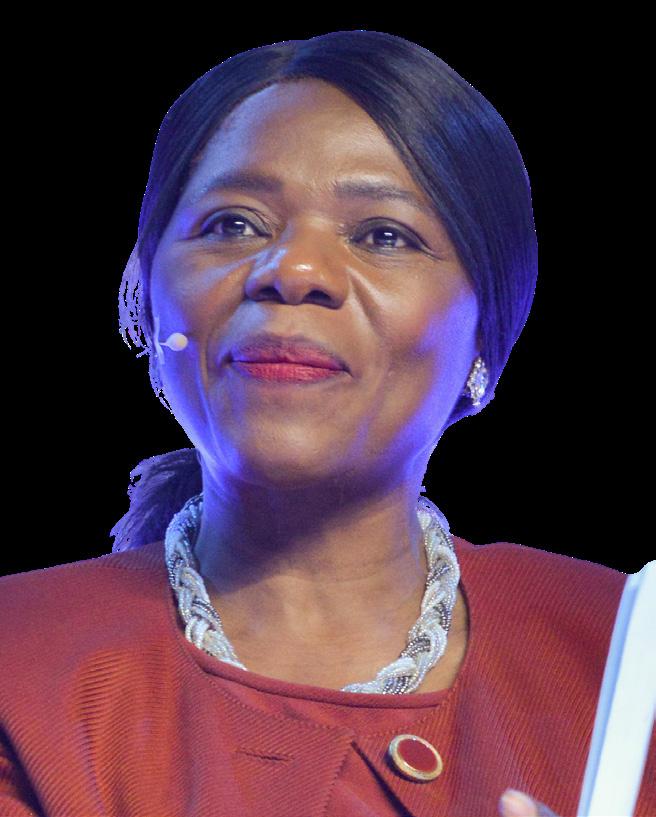
Adv. Prof. Thuli MadonselaDirector of the Centre for Social Justice, Stellenbosch University Employment equity is one of the best things that we did in this country because it’s really free for all. But to augment employment equity we need to look at expanding the reach of social security to those who are outside. To ensure social justice because if a person is self-employed and there’s no social security then less people are likely to become self-employed. Wits University did a study that shows that for most countries jobs come from the informal sector and also small and medium-sized businesses. So that’s the sector we need to grow. So it’s music to my ears when I hear the minister talk about diversifying the economy more meaningfully and in that diversification we need democratisation. The G20 and the GNU opportunities are wonderful for meaningful dialogue on these matters and then finding each other.

Dr Mteto Nyathi - Chairman, BSG
Group
On the issue of critical minerals beneficiation at source - why are we not doing this ourselves? Why don’t we create companies that will be able to do exactly that? We may not have all the skills but we can always import them. One of the ways of sorting out South Africa is to focus on small businesses. These are the people who are going to be making a difference in our country. We have many problems in our country which can be solved by us. We are asking the financial houses to back the people who are trying to solve those problems - these people who are hiring five to 10 people. If we multiply this by thousands and thousands of people, we are going to be addressing unemployment in our country. So my point is that the systemic inequality we face can be addressed if we were just to be laser focused on supporting the people who are sitting here in this room.
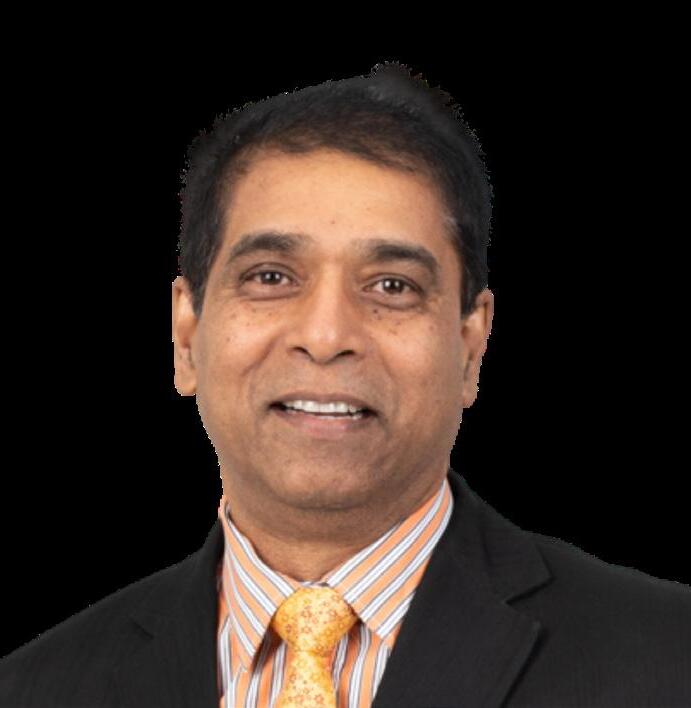
PK Naicker - General Manager, Fibre Processing & Manufacturing SETA
Improving economic performance will be dependent on having a highly equitable skills system that is aligned to relevant, fit-forpurpose and demand-led skills. Therefore we need to have proper leadership in addressing the skills challenge going forward. We have some excellent government policies such as the National Development Plan that aims to bring the unemployment rate to around 6% and create 11 million jobs by 2030. In terms of the future workforce we cannot depend on the formal economy to create jobs. We need to focus on entrepreneurial skills; to make sure that more of the youth are geared towards entrepreneurship-type programmes. We need to focus on skills for the digital economy such as AI, virtual reality, ICT skills, blockchain, internet of things. We need to get our children involved in occupational learning linked to jobs which will give them an opportunity to learn while they earn. Occupational qualifications that are registered with the Quality Council for Trades and Occupations (QCTO) and NQF-aligned are just as good as any higher education qualification in this country.
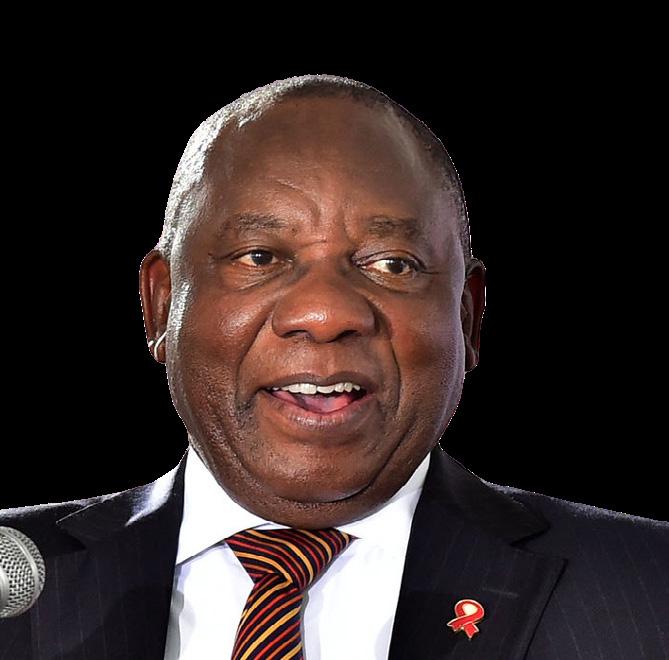
President Cyril Ramaphosa at the Gala Dinner and Awards Transformation is not simply about just reform. It’s about rethinking systems to ensure that there is dignity, there is equity, there is also sustainability and resilience for the future generations that will follow us. It is to this end that we adopted the theme for our G20 Presidency - that it should be about fostering equality, fostering sustainability and ensuring that there is full transformation. This transformation is necessary if we are to unlock the capabilities of all our people and realise their full potential and also the full potential of our economy. And we must dispense with the false notion that we must make a choice between growth and transformation. The growth of our economy will happen through transformation. It is vital if growth is to be meaningful and is to be inclusive as well as to be sustainable.
We must recognise that economic empowerment is in the end an undertaking that requires deliberate action across nearly every area of our national life. There are those who say please stop talking about what happened in the past. It is precisely what happened in the past that we must never forget because it must inform what we need to do now and inspire what we should do in the future.
Watch videos of the full event on the Black Business Council’s channel on YouTube @BlackBCouncil Source: Black Business Council | The Presidency | SABC News
Tractor Outdoor is a leading national out-of-home (OOH) media company in South Africa, specialising in connecting brands with consumers through an extensive network of traditional and digital OOH platforms.
With one of the country's largest digital OOH networks, we help people, places, and businesses grow stronger. Committed to sustainability, we actively invest in community development, making a positive impact on the environment and localcommunities.

Stay informed about environmental, social, & governance trends, strategies & best practices. Feature in our publication to join us in shaping a better tomorrow.







BY SHUMIRAI CHIMOMBE
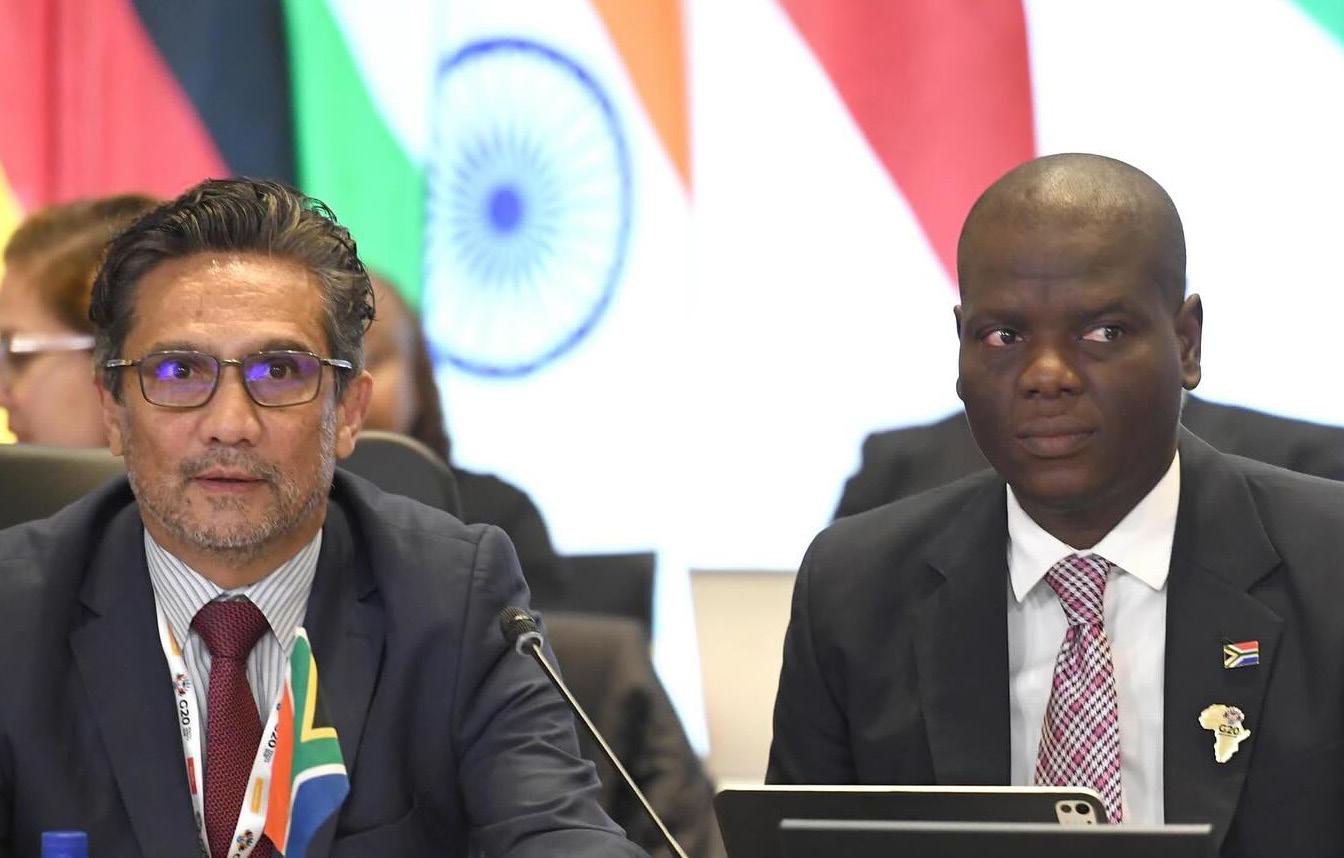
DIRCO Director-General Mr Zane Dangor with DIRCO Minister Ronald Lamola at the 3rd Sherpas meeting
As South Africa’s Presidency of the G20 reaches its midway point, the third meeting of the G20 Sherpas took place from 25 to 27 June at the Sun City Resort in the North West Province. Minister of International Relations and Cooperation (DIRCO) Ronald Lamola participated in the high-level session where he gave a keynote address.
The Sherpas are the personal representatives of G20 leaders and their duty is to oversee negotiations and discuss the points that will form the Leaders Summit agenda and coordinate most of the work.
Ahead of the meeting, DIRCO Director-General and South Africa’s G20 Sherpa Mr Zane Dangor spoke to the department’s radio station Ubuntu Radio to outline the topics on the table for discussion. He said that the most important issue was the report back from the working groups and task teams to give the Sherpas a sense of the key issues they would need to take forward. “And where there may be areas where we need to find ways to find agreement with each other as there may be differences.”
The Sherpas would also engage in the issues of trade and look at its impact on inclusive development. There would also be a discussion on the G20 @ 20 - a road map introduced by the Presidency which outlines a high level qualitative assessment of the G20’s progress against its key commitments and targets since its inception two decades ago. Mr Dangor indicated that a review of this road map had been done by the Organisation for Economic Co-operation and Development (OECD) and other partners, and that the first set of
findings would be presented at the meeting. The meeting also provided an opportunity for the Sherpas to discuss how to approach the geopolitical issues currently gripping the world. “We will provide an overview as the Presidency of what we would like to see as the approach to geopolitics and we will be testing to see if the others agree with us.”
In his opening remarks during the Sherpa meeting Mr Dangor elaborated that this approach was to be centred on the UN Charter, respect for international law and the fact that we must all be held equally accountable for this to build a more peaceful world. “We do recognise though that the G20 is a forum for international economic cooperation and we recognise that this should be the focus. But the ongoing conflicts worldwide are definitely now even more detrimental to not just peace and security but economic development and the attainment of the Sustainable Development Goals. So we will discuss it but we will also make sure it doesn’t hold us back.”
The session also planned to outline the approach to the G20 Johannesburg Leaders Declaration in November. “As Sherpas it is our responsibility in shaping this Declaration. We draft this Declaration and we have to make sure that we shape it in a way that builds on from the last few years. From our perspective what we would like to see is the achievement of the Sustainable Development Goals (SDGs) and other common challenges. The 2030 agenda for sustainable development is at a crucial juncture and the G20’s collective influence and resources are more vital than ever to get them back on track.
“The Leaders’ Declaration should reinforce the commitment to
strong sustainable, balanced and inclusive growth as a fundamental driver for the success of the SDGs with a specific focus on reducing inequalities. Again as Sherpas we must ensure that the Declaration outlines concrete and collective actions. We want it to have measurable targets where possible and not only aspirational statements.”
He thanked all the Sherpas’ delegations for their overwhelming support for the working groups and task teams, saying that this was vital as the G20 is consensus based. It’s based on discussion and it’s only through that dialogue where better understanding can be built - and better understanding can lead to agreements.
“The concrete proposals and recommendations we receive from all your delegations are invaluable. They have contributed towards strengthening our presidency and thereby ensuring that our final outcome will be robust, but importantly, inclusive, and will reflect the perspectives from all of us. So this level of engagement augurs well for achieving meaningful progress on the priorities our President has set out.”
Some of these priorities are strengthening disaster resilience and response; ensuring debt sustainability for low-income countries; mobilising finance for a just energy transition; and harnessing critical minerals for inclusive growth and sustainable development.
Promoting digital inclusion - the third G20 Digital Economy Working Group (DEWG)
The Department of Communications and Digital Technologies (DCDT) convened
the third G20 Digital Economy Working Group (DEWG) meeting from 9 to 11 June 2025 in Polokwane, Limpopo Province. The meeting brought together digital economy and AI experts to reflect on the progress made toward the deliverables on key priorities agreed to at the last two meetings. These included digital public infrastructure, digital skilling, cybersecurity, and the integration of AI in the digital economy.
The meeting focused on four key themes:
• Connectivity for inclusive digital development: A draft framework was unveiled to promote universal and equitable digital inclusion. Discussions addressed barriers to access, policy innovation, and financing for digital statistics collection to better understand and address connectivity gaps.
• Digital public infrastructure (DPI) with emphasis on its role in promoting transparency, accountability, and efficiency in government services.
• Digital innovation ecosystems for micro, small, and medium enterprises (MSMEs): Discussions were focused on the empowerment of MSMEs and youth through inclusive innovation ecosystems, addressing barriers such as limited access to capital and technology.
• Equitable, inclusive Artificial Intelligence (AI): Discussions centred on the ethical use of AI and regulatory approaches with a view to establishing frameworks to mitigate the risks posed by easily accessible deepfakes.
The outcomes of the Limpopo meeting will feed into the agenda for the G20 Digital Economy Ministers’ Meeting in September 2025.
BY SHUMIRAI CHIMOMBE

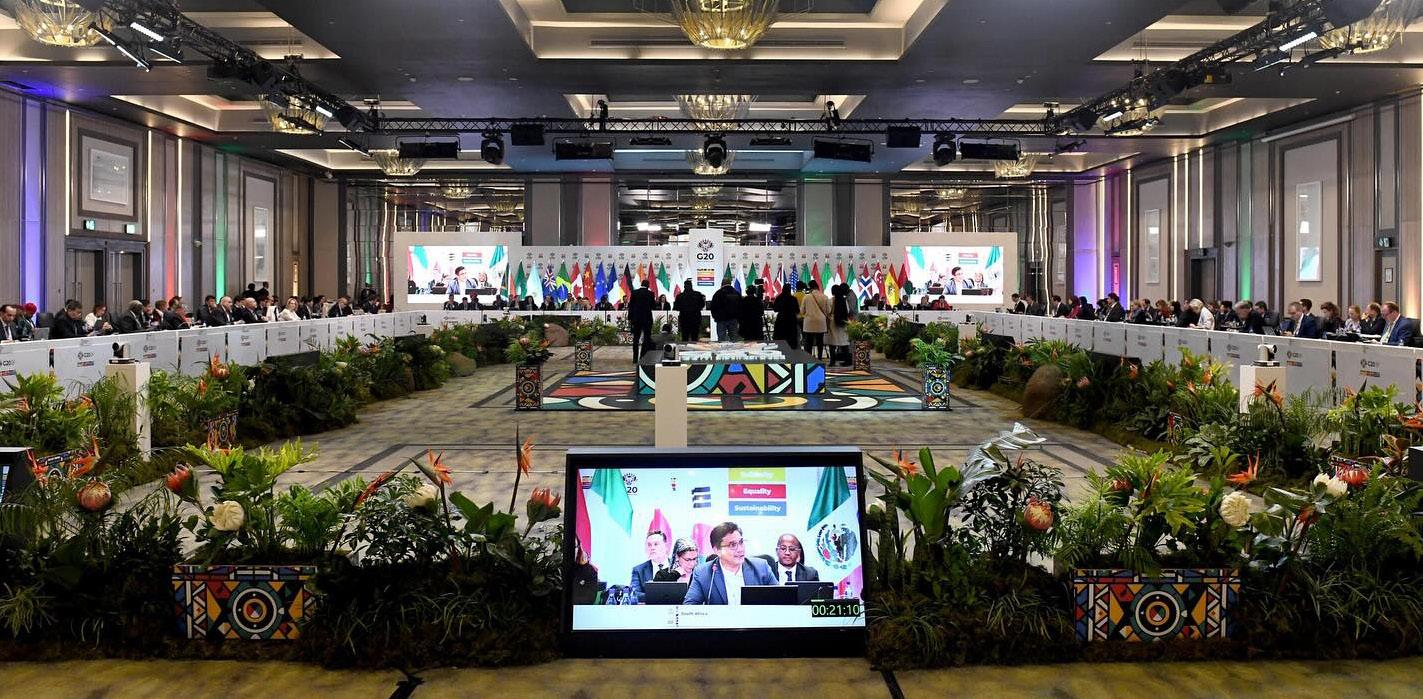
Upcoming events - July
3rd Education Working Group Meeting
3rd Empowerment of Women Working Group Meeting
2nd Deputies virtual drafting session
5th Health Working Group Meeting
3rd Disaster Risk Reduction Working Group Meeting
4th Meeting of Task Force 1: Inclusive Economic Growth, Industrialisation, Employment, and Reduce Inequality
4th G20 Finance and Central Bank Deputies and Finance Ministers and Central Bank Governors’ Meetings
2nd Climate and Environment Sustainability Working Group Meeting
4th Development Working Group Meeting
Development Working Group Ministerial Meeting
4th Employment Working Group Meeting
3rd Culture Working Group Meeting
Aug
3rd Energy Transitions Working Group Meeting
3rd Trade and Investment Working Group Meeting L20 Summit
Employment Working Group Ministerial Meeting
Stay updated on G20 South Africa activities, events, videos during the year:
Website: https://g20.org/
Social media: G20 South Africa on Facebook, Instagram, X, Tik Tok, Linkedin, YouTube and Flickr
Sources:
PRESIDENT RAMAPHOSA’S WORKING VISIT TO CANADA
BY SHUMIRAI CHIMOMBE
His Excellency President Cyril Ramaphosa was in Canada from 14 to 17 June on a working visit where he participated in the G7 Summit outreach session. The session took place on the margins of the G7 Leaders Summit in Kananaskis, Alberta.
The G7 Summit is an international forum held annually for the leaders of the Group of Seven member states representing the largest advanced economies namely: Canada, France, Germany, Italy, Japan, the United Kingdom and the United States. The European Union also participates in the discussions as a guest. Canada assumed the Presidency of the G7 on 1 January 2025.
Traditionally, the purpose of the outreach sessions at the annual Summit is for the G7 to engage with leaders from the international community. The G7 Summit host invites country leaders and representatives from international organisations to broaden the scope of discussions and build consensus on pressing global issues.
H.E. Ramaphosa was the only African Head of State invited to the Summit as South Africa is the current President of the G20. He took the opportunity to have bilateral meetings with other Heads of State and Government including Canada,
France, Germany and the Republic of Korea which he said had in many ways proven to be most beneficial.
South Africa - Canada.
Strengthening bilateral relations
Canadian Prime Minister Mark Carney met with H.E. Ramaphosa on Sunday, 15 June ahead of the G7 Leaders Summit. In his warm welcome Prime Minister Carney said that it was a great honour.
“We’ve met a bit in the past and
I’ve been a long admirer of your leadership of South Africa and now your leadership of the G20. The world is very much in your hands at a crucial time and if I may say from a Canadian perspective, the strength of the ties between our countries are great, including down to the level of assistance in natural disasters. South Africa has always provided us with support during times of difficulty including with forest fires. We reciprocate and there’s much
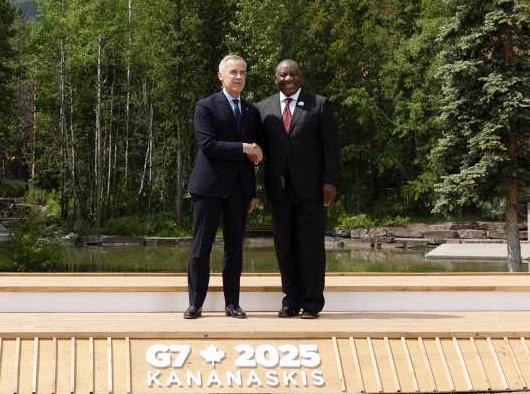
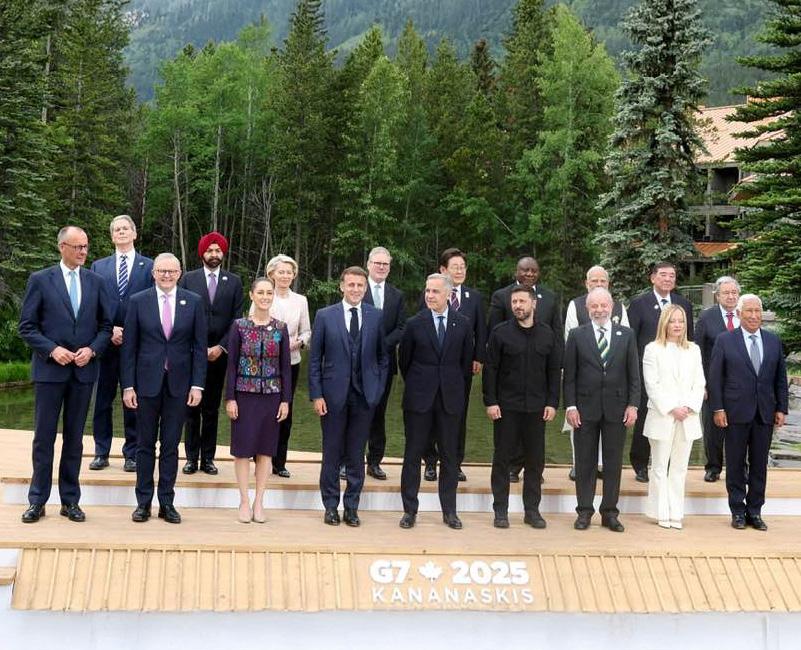
to be built on together and we look forward to our discussions.”
South Africa and Canada have a Memorandum of Understanding (MoU) signed in 2019, which provides for exchanging wild land fire management resources between the two countries. Since then, South Africa, through the Working on Fire-Kishugu Joint Venture (WOF-Kishugu JV) has deployed six teams of firefighters to Canada to assist in fighting wildfires, including the historic deployment of 860 firefighters and management in 2023, one of the largest deployments of international firefighters to Canada. In 2024 a team of more than 200 firefighters and management were deployed to Alberta in response to an urgent request from the Canadian Interagency Forest Fire Centre (CIFFC).
H.E. Ramaphosa thanked Prime Minister Carney for the continued wonderful bilateral relations between Canada and South Africa. “We’ve had a long relationship and
we’re very proud of the way that we deal with each other. We support your buyers, you support us with investments and you’ve supported our Just Energy Transition. So our relations are strong.”
After the bilateral meeting, the Prime Minister of Canada’s official website reported that the discussion centred around the strong and growing partnership between Canada and South Africa, with increased cooperation in wildfire management, technology, and trade and investment. The leaders discussed advancing shared priorities under their G7 and G20 presidencies, such as energy security, critical minerals, artificial intelligence, and climate resilience, including wildfires.
The Outreach Session - focusing on energy security
This year’s G7 Outreach Session had a special focus on energy security. According to the South African Presidency the session had aimed to explore leadership and collaboration in driving a comprehensive approach to energy security with a focus on technology
and innovation; diversification and strengthening critical mineral supply chains; and infrastructure and investment. The theme therefore resonated with South Africa’s national interests and priorities for its G20 Presidency.
Her Excellency the Right Honourable Mary Simon, Governor General of Canada hosted a dinner to welcome the leaders participating in the G7 Summit outreach session. In her address she said that there is great power in working and learning together, with mutual respect. “We can use this time together to strengthen the future of our energy security…. We need to be listening to each other. Being curious about different points of view. It’s a good place to start. That is the value in diplomacy. We accept that we don’t have to agree. And then we carry on with the conversation. By getting to know our neighbours, we gain a greater understanding of their ideas. Of their struggles.”
She also emphasized the value of engaging young people as leaders of the future. She said that working together is also the only way to transfer hope to young people.
“The power of your conversations here will bring new paths to peace. New paths to energy security. New prosperity to our citizens. We are just one part of a much bigger picture. An interconnected system of air, water, land, and wildlife. Each part of that system of nature is necessary, and each relies on the others. And so it is with us.”
Speaking to the media in Kananaskis after the event, President Ramaphosa said that the visit to Canada to attend the G7 Summit had been most meaningful especially since South Africa is the President of the G20. He welcomed a strengthening of ties with Canada calling their Africa strategy comprehensive with the potential for cooperation in areas where there was alignment with the African agenda.
“We’ve had the opportunity to interact with a number of Heads of State and Government of various countries. And the issues that we put on the table were the issue of climate change and how important it should be treated by the global community with regard to our Just
Energy Transition, and also what we intend to achieve out of the G20 with regard to climate change financing.”
He highlighted that the effects of climate change needed to be dealt with, particularly the floods that affected the country which resulted in people dying and the destruction of infrastructure. He pointed out how the Kwazulu- Natal and the Eastern Cape provinces have suffered over just the past few years from repeated incidents of destruction from floods, and also droughts in parts of the Western Cape.
President Ramaphosa also added that the issue of critical minerals had been discussed, and the importance of how they should be treated
particularly since they play such an important role in energy security.
“And that the extraction of minerals from African countries and our, own country particularly, should be more than being only extractive, but also to have value add where beneficiation becomes the order of the day; and where they who want to invest in our minerals should know upfront that we are not only looking forward to them extracting minerals but also to value chain additions or advancements in the form of beneficiation, so that in the end we live up to what we’ve been saying. That we want to sell value-added products to the rest of the world.”

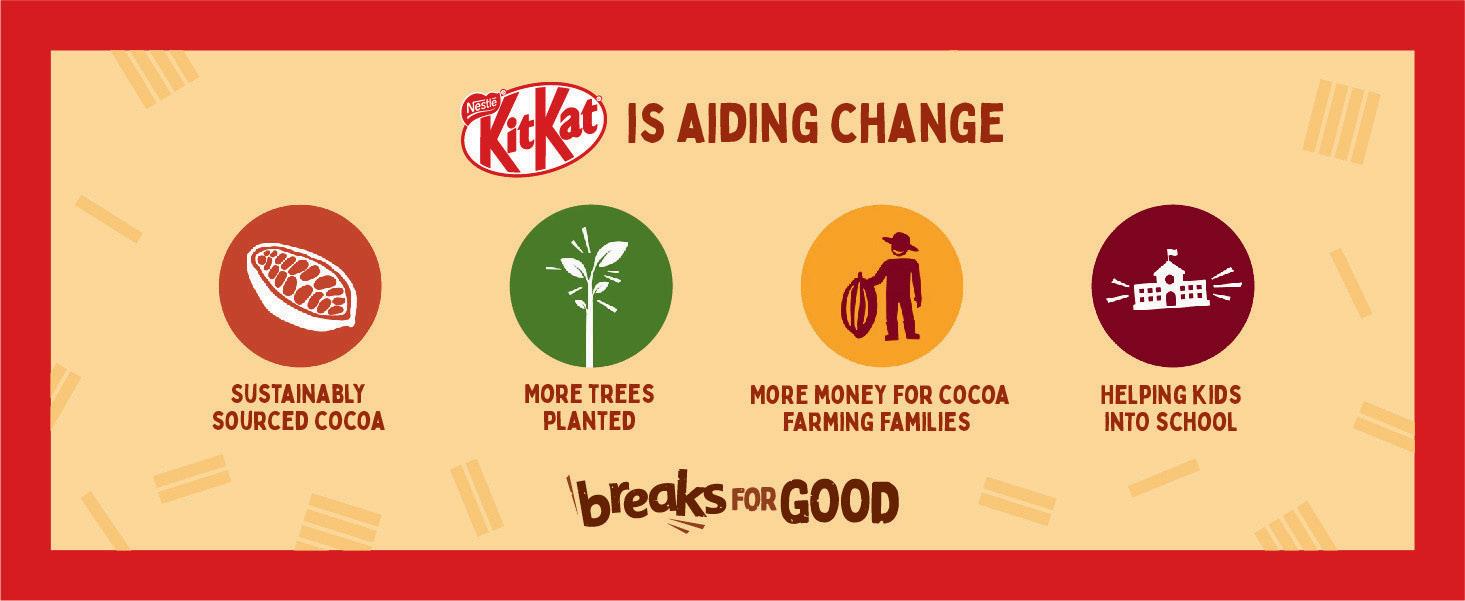





BY SHUMIRAI CHIMOMBE
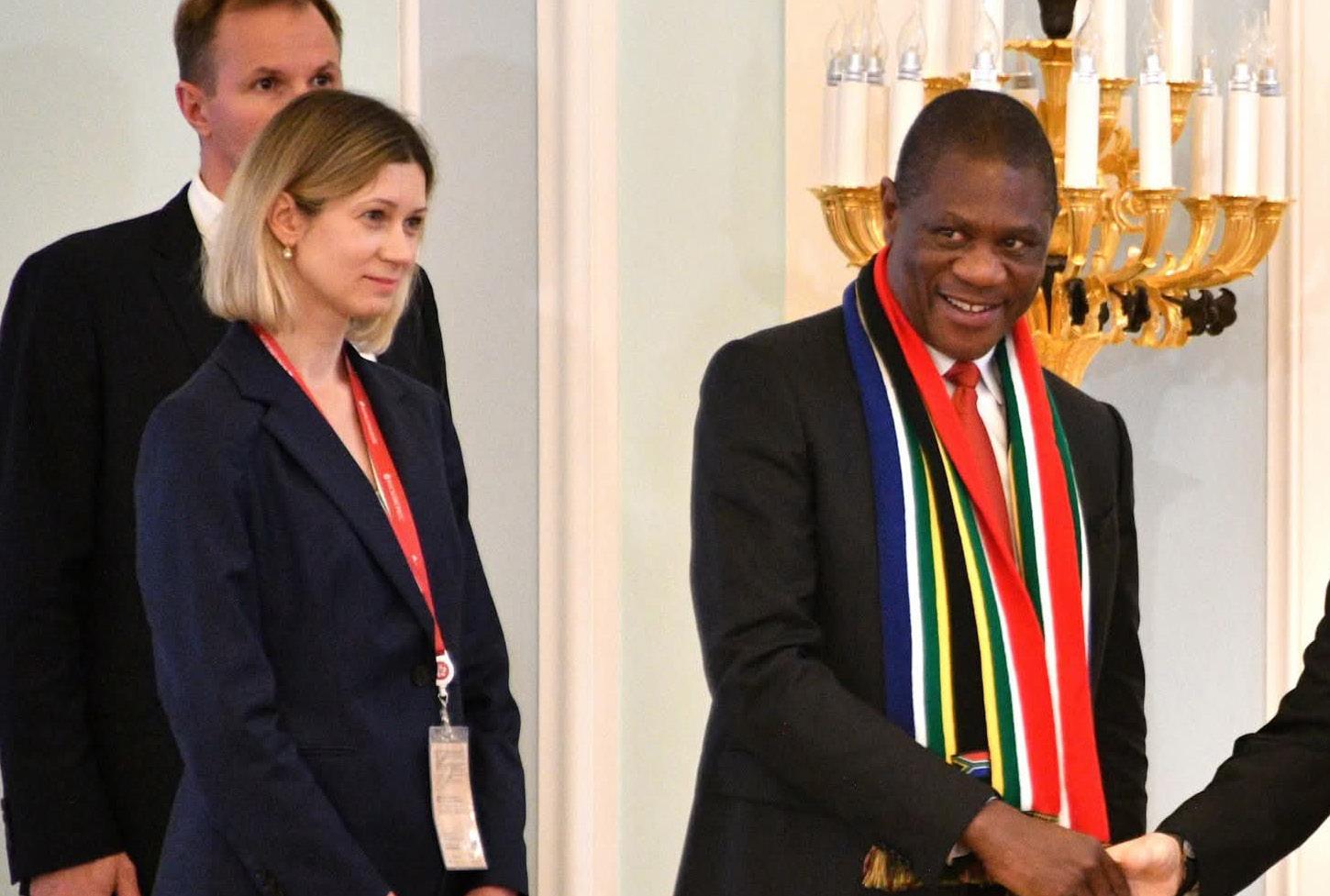
Deputy President Paul Mashatile was in the Russian Federation from 17 June on a three-day working visit to Moscow and St Petersburg. Accompanied by a delegation of government ministers, deputy ministers and government officials, he engaged in a number of activities aimed at strengthening the bilateral trade and economic relations between South Africa and Russia.
In Moscow, the Deputy President met His Excellency Prime Minister Mikhail Mishustin at the House of the Government of the Russian Federation to discuss opportunities for bilateral political and economic cooperation between South Africa and Russia. The point of discussion included unlocking areas of further cooperation in trade and investment, mineral and energy, agriculture, health and education.
In St. Petersburg, he paid a courtesy call on President Vladimir Putin at the Constantine Palace followed by a bilateral meeting with President Putin and his Russian delegation that included the Foreign Minister Sergey Lavrov.
President Putin affirmed that Russia and South Africa share solidarity when it comes to the international agenda items.
“Overall, strengthening ties with

African nations remains one of our key priorities. As you know, following the second Russia-Africa Summit held here in St Petersburg in 2023, a substantial package of joint documents was adopted, including a policy declaration and an action plan through to 2026. Russia, South Africa, and other African partners are working collaboratively to implement these plans in practice.”
A key part of the working visit was attending the 28th St Petersburg International Economic Forum (SPIEF 2025) which took place from 18 to 21 June. With the theme ‘Shared Values as a Foundation for Growth in a Multipolar World’ the event drew some 20 000 delegates from
over 140 countries according to Africa News. Among them were government representatives, entrepreneurs, investors, as well as institutions committed to restructuring the international trade and financial systems. Key themes that dominated the forum included the expanded role of BRICS, development of new trade corridors, restructuring of energy markets, and increased cooperation with the Global South, particularly in Latin America, Africa, Southeast Asia, and the Middle East.
In his remarks at the SPIEF plenary session following President Putin’s address, Deputy President Mashatile said that “through strengthening multipolarity we are able to harness the collective power of our nations to construct a future that is more sustainable for future generations.”
“As we look to the future, the importance of the Global South in shaping international economic governance is undeniable. Africa, in particular, is fast becoming a centre of global growth. With a population projected to exceed 2.5 billion by 2050, a rising middle class, and a youthful demographic dividend, the continent has the potential to drive the next wave of industrialisation, digital transformation, and sustainable development. Africa is not in search of handouts; rather, it is pursuing equitable partnerships. It seeks equitable access to markets, capital, knowledge, and technology. This is where global platforms like SPIEF become crucial.”
He indicated that South Africa is prepared to do its share in promoting international cooperation and collaboration for the future of all nations. The future is not being written in boardrooms in the Global North alone. It is being written in the towns of East Africa, in the innovation corridors of South East Asia, in the minds and digital labs of Latin America, and the energy, agriculture and science sectors of Eurasia. “The St Petersburg International Economic Forum is one of the few remaining global platforms where this future can be shaped in dialogue. Let us then seize the moment. Let us invest in partnerships that are equitable and mutually beneficial.”
The Deputy President also addressed the South African Trade and Investment Seminar which took place at SPIEF 2025. The seminar was attended by Russian and South African business and government leaders for discussions under the theme Russia-South Africa: Business and Investment Cooperation. The event aimed at expanding opportunities for business between the two countries.
Leveraging key sectors for investment and development
Speaking to BRICS Africa Channel TV on the sidelines of SPIEF, Deputy President Paul Mashatile expressed his optimism about growing trade between South Africa and Russia.
“I’ve seen that there’s a great opportunity for South Africa to benefit from the cooperation with Russia. We intend to increase our
trade between Russia and South Africa as we believe it is currently a bit low at about $1-billion. We think it should increase three times. Therefore we have brought about 20 South African companies with us here to interact with their Russian counterparts. To start doing deals, to make sure they can do projects together between our two countries.”
He outlined the key areas of cooperation that South Africa had identified,
Energy: in various forms such as wind, solar and nuclear. South Africa has included nuclear energy in its energy mix. Therefore cooperation with Russia will help in that regard.
Critical minerals: South Africa has an abundance of minerals and using Russia’s technologies would assist the country to beneficiate its own minerals.
Agriculture: South Africa is increasing its exports of agricultural products to Russia, particularly citrus fruits and wines, and also importing some products from Russia such as poultry.
Digital technology: there is great potential for South Africa to benefit from innovation and knowledge exchanges.
The Deputy President further shared that some business deals had already been signed at the event. These included a South African company that had signed a deal to import Russian vodka and another one had a deal to import chicken from Russia.
“We are happy that we have agreed that we are going to strengthen cooperation. We’re going to ensure that we look at how to use Russian expertise and technology to help advance our own economy.”
A fruitful endeavour and bolstering bilateral ties for the future
Giving his feedback to the The Official YouTube Channel of the Government of South Africa, the Deputy President said that the working visit had been very successful.
“We had an opportunity to attend the St Petersburg International Economic Forum - a very important platform particularly for countries of the Global South to share ideas, to discuss collaborations, investments in our different economies, and this forum has been growing over the years. We had an opportunity where our ministers and deputy ministers were able to meet with their counterparts. In Moscow the Prime Minister had about eight ministers in the meeting. When we met with President Putin he had about 10 ministers on his side. So this was a very
successful working visit where we were able to discuss the issues of energy, minerals, agriculture, and infrastructure.”
“We have a long history with Russia; we have had this relationship from the time of the Soviet Union where many of our leaders were educated and trained here in Russia. So we regard President Putin and the people of Russia as our friends and allies and we believe working with them will ensure that we succeed in our development agenda.”
The delegation that accompanied Deputy President Mashatile included:
• International Relations and Cooperation Deputy Minister Alvin Botes
• Water and Sanitation Minister Pemmy Majodina
• Trade, Industry and Competition Minister Parks Tau
• Agriculture Deputy Minister Nokuzola Capa
• Public Works and Infrastructure Deputy Minister Sihle Zikalala
• Mineral and Petroleum Resources Deputy Minister Phumzile Mgcina
• Sport, Arts and Culture Deputy Minister Peace Mabe
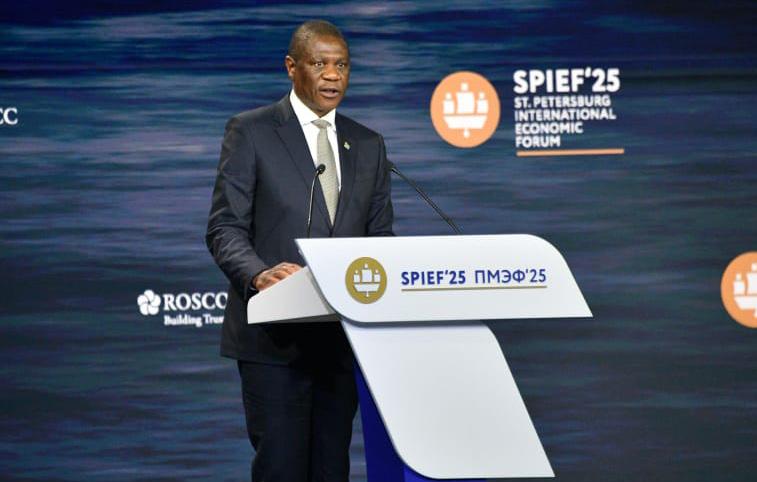

Discover the latest trends, success stories, and thought leadership in our 23rd edition of Impumelelo Top Empowerment
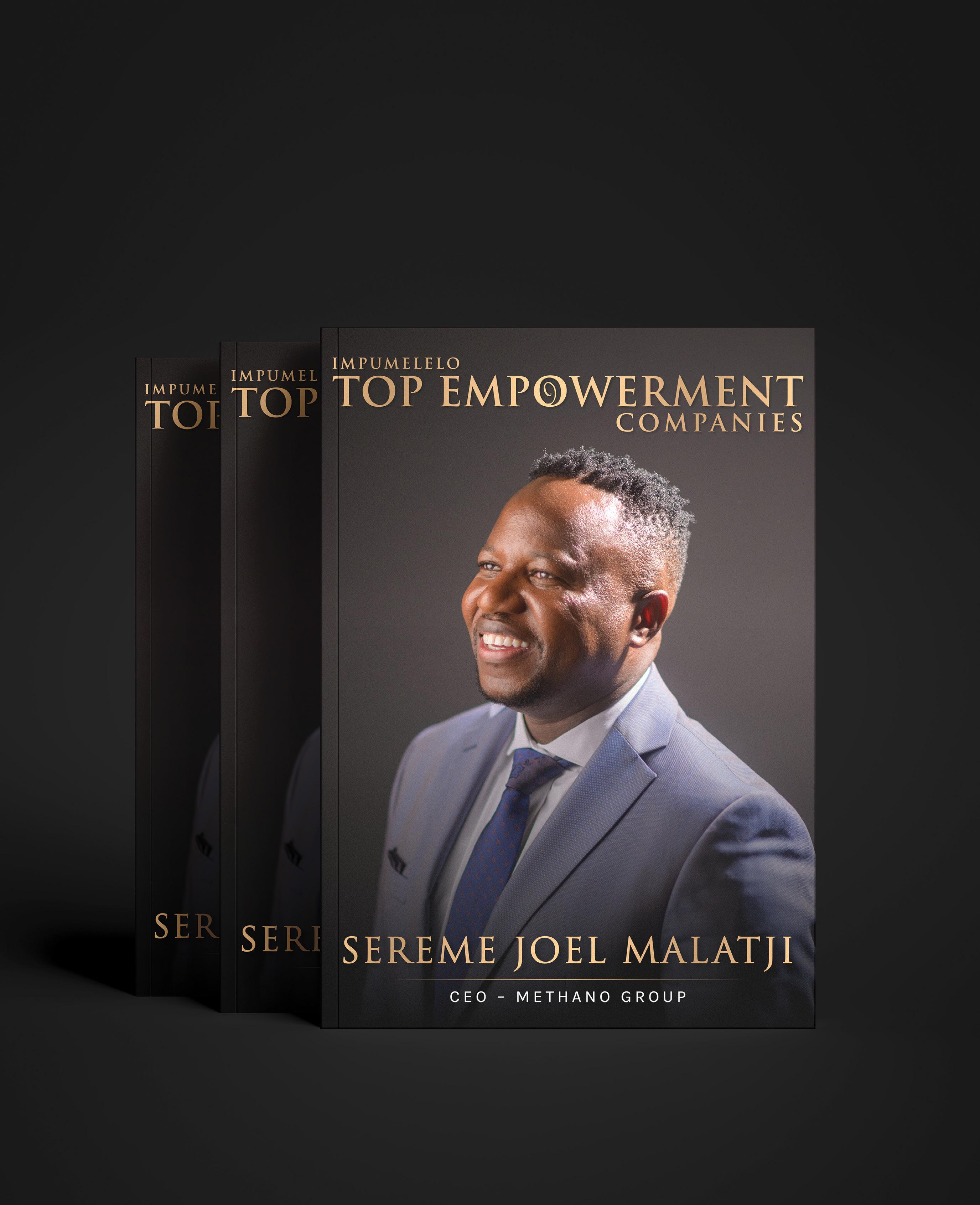

BY WANDILE SIHLOBO

We are halfway through 2025, and if you were to ask any cattle farmer in South Africa, how has the year been? They will likely tell you that this has been a financially challenging year for the industry.
But at the start, the outlook looked promising. We thought the industry would continue its recovery from last year, benefiting from improvements in grazing veld and relatively lower feed prices. This was after the better summer rains improved agricultural conditions across the country.
The export markets had also opened up from the second half of 2024, following temporary closures in the previous year due to the industry’s impact from the foot-and-mouth disease outbreak in most provinces. For example, in 2024, South Africa’s cumulative beef exports increased by 30% from 2023, reaching 38 657 tonnes. About 57% of this was fresh beef, and 43% was frozen beef. The key markets include China, Egypt, UAE, Jordan, Angola, Mozambique, Kuwait, Qatar, Saudi Arabia, and Mauritius, amongst others.
However, the recent outbreak of foot-and-mouth disease on a few farms in various regions of South Africa presented additional challenges, leading to temporary closures of export markets again in an industry that was still on its recovery path. The financial pressures on farmers are immense, and we will have clarity about the scale in the coming months.
What has now been encouraging is the collaboration between the Department of Agriculture
and organised agriculture in containing the disease and facilitating vaccination on the affected farms. The vaccination process started to gain momentum in the last week of June 2025.
However, the key to the longterm success of the industry lies in improving animal health, developing vaccines domestically, and implementing better surveillance, among other interventions. Efforts on this vital issue should continue through the collaboration of various stakeholders, including the government, the private sector, and organised agriculture, among others. South Africa must leverage existing private sector expertise as the process to improve stateowned facilities, such as the Onderstepoort Biological Products (OBP), a state-owned vaccine manufacturer, is underway. We no longer need just one centre of manufacturing but more where capabilities exist.
This intervention is key not only for preserving the country’s share of the industry but also for creating room for new entrant farmers. It is
hard to talk about the integration of black farmers into commercial value chains when the risks of diseases remain high and can be financially devastating to businesses.
The recent statements by South Africa’s Agriculture Minister, Mr John Steenhuisen, on various occasions regarding the department’s commitment to strengthening animal and plant health are encouraging.
Indeed, in the near term, the focus is on vaccination; however, beyond that process, we must adopt a careful approach to reviving domestic vaccine manufacturing capabilities and involve the private sector. Thereafter, also nudge the Department of Public Works and Infrastructure to assist with fencing to ensure the strict control of animal movement in the country.
In the former homelands regions of South Africa, the traditional leaders have an essential role to play in managing the movement of livestock. The task cannot be left solely to the government.
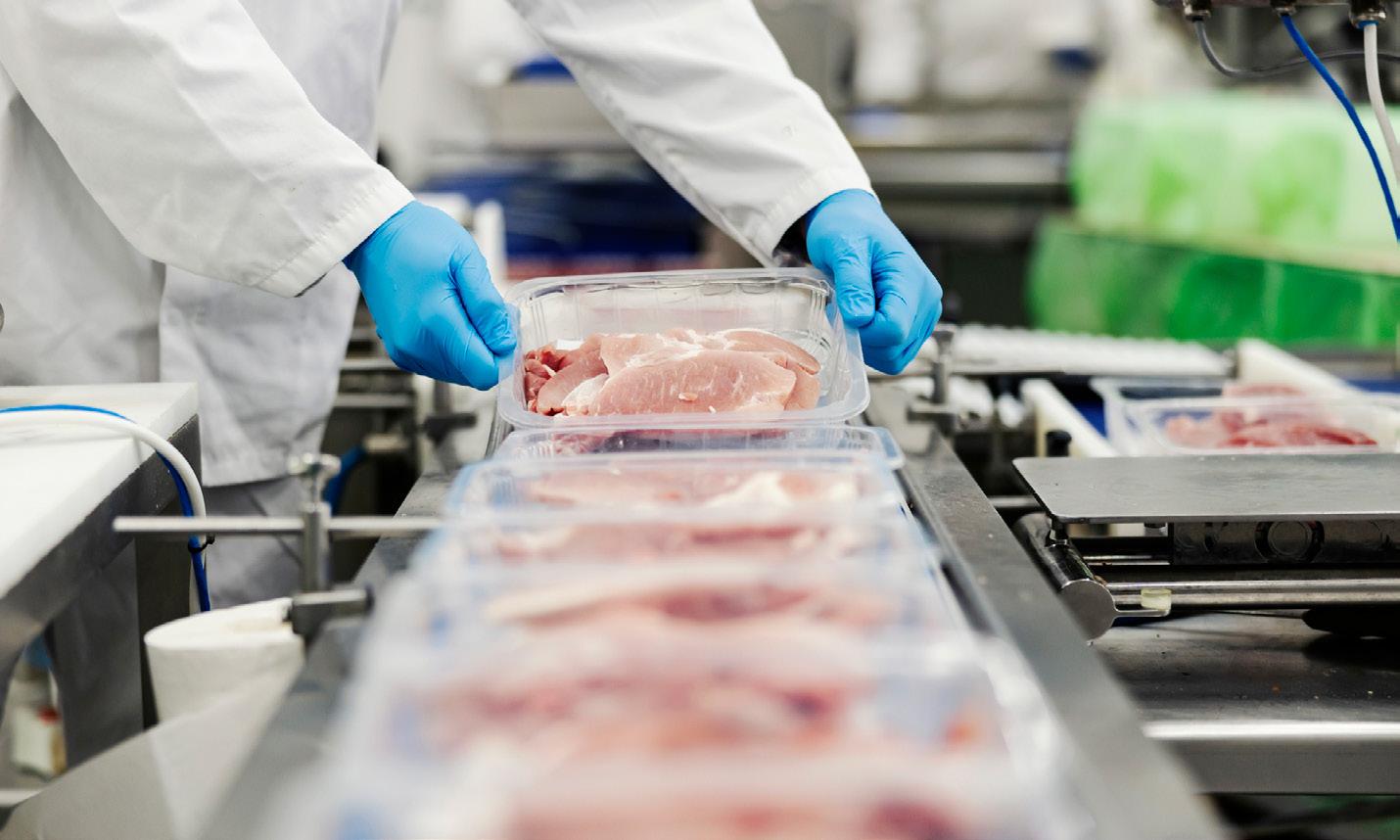
Everyone has a role to play in ensuring that South Africa’s animal health is a priority.
The livestock industry is an anchor of the South African farming economy. The livestock and poultry industries account for nearly half of our agricultural fortunes, with significant contributions by black farmers as part of the inclusive growth agenda.
As I have noted in the past, while we now struggle with foot-andmouth disease, what we have learned from recent experience is that this may not be the last outbreak, and there may be future outbreaks of various diseases in other value chains.
South Africa, more than ever, should increase its investment in animal health by allocating better resources to infrastructure and human capital. We also need a similar focus on plant health. This means biosecurity – animal and plant health -- is entirely more important than ever and is at the heart of any thriving farming economy.
Wandile Sihlobo is the chief economist of the Agricultural Business Chamber of South Africa. and the author of three books, “The Uncomfortable Truth About South Africa’s Agriculture (2025)”, “A Country of Two Agricultures: The Disparities, The Challenges, The Solutions (2023)” and “Finding Common Ground: Land, Equity and Agriculture (2020)“.


BY JESSIE TAYLOR

In June 2025, four years after the implementation of the Political Party Funding Act, the Independent Electoral Commission (IEC) held its first-ever Symposium on Political Funding in South Africa - an event that marked a significant turning point in the country’s efforts to protect the integrity of its democratic processes.
Hosted in uMhlanga, KwaZulu-Natal, the two-day gathering brought together political parties, legal experts, civil society organisations, the media, academia, and regulators to take stock of the existing political funding framework. At the heart of the discussions was a single pressing question: Is South Africa’s democracy being adequately safeguarded against money’s influence in politics?
The Political Party Funding Act (PPFA), passed in 2018 and enforced from April 2021, was hailed as a milestone in transparency.
It requires parties to disclose donations above R100 000 and prohibits donations from foreign governments or state-owned enterprises. The Act also created the Represented Political Parties Fund and the Multiparty Democracy Fund, designed to channel public and private funding into parties transparently. IEC Chairperson Mosotho Moepya opened the symposium by acknowledging
the legislation’s progress while highlighting its limits. “The aim is not merely to fund political parties, but to ensure that such funding does not erode the foundations of our democracy,” he stated.
One of the symposium’s key themes was the growing public distrust in political institutions, much of which stems from perceived opacity in political financing.
According to research by the Human Sciences Research Council (HSRC), over 70% of South Africans believe politics has become more transactional, with donors allegedly
receiving favours in exchange for financial contributions. This sentiment reflects a dangerous trend: where political influence is bought, democratic participation is undermined.
IEC Vice Chairperson Janet Love said: “The concern is not just about disclosure. It concerns the broader perception of elite capture and whether money has overtaken mandate.”
The symposium unpacked several flaws in the current system:
• Limited scope of the Act: The PPFA currently applies only to parties contesting provincial and national elections. Parties operating exclusively at the municipal level are not subject to the same disclosure requirements, leaving a significant gap, particularly as local politics becomes more competitive. This loophole allows local parties and independents to receive substantial contributions without transparency or oversight.
• Expenditure remains unregulated: While the Act focuses on income transparency, requiring declaration of donations above a certain threshold, it does not track how political parties spend those funds.
• Enforcement is lacking: The IEC’s powers of enforcement remain limited. Despite some parties failing to meet the Act’s obligations, penalties have been minimal or inconsistently applied. Civil society watchdogs, including My Vote Counts and the Open Secrets collective, emphasised stronger sanctions for non-compliance, suggesting the Act lacks “teeth” to ensure accountability.
• Data transparency needs a tech upgrade: Participants also
noted that political funding disclosures, while technically available, are often buried in poorly structured PDFs, hindering public engagement. There were calls for the IEC to develop open-data platforms that make donation records machine-readable, accessible, and searchable, enhancing the ability of media and citizens to track trends and scrutinise transactions.
In the lead-up to the symposium, Parliament approved a controversial amendment to increase the annual donation cap from R15 million to R30 million per donor, per party.
While this move was justified as a way to help political parties sustain operations, civil society organisations and several political analysts condemned it as a regression in funding regulation.
By the close of the event, the IEC and participating stakeholders proposed several concrete actions:
• Amend the PPFA to include municipal-level parties and independents.
• Introduce expenditure reporting alongside income disclosure.
• Establish firm enforcement mechanisms and scale up the IEC’s regulatory capacity.
• Create a digital political finance transparency platform using open data standards.
• Review the R30 million cap and consider the impact on donor concentration.
• Public education campaigns to raise voter awareness on party finance.
With the next municipal elections due in 2026, the symposium underscored that timely reform is essential. If the current loopholes remain unaddressed, municipal contests may see increased abuse
Source: SANEF | Eyewitness News | IEC South Africa | HSRC | AllAfrica
of unregulated local financing, undermining the vote’s credibility and disadvantaging less-resourced candidates.
The 2026 poll will serve as a critical test of South Africa’s resolve to uphold electoral fairness and protect the integrity of local democracy.
The event also reaffirmed the importance of civil society organisations, many of whom were instrumental in advocating for the initial Political Party Funding Act.
Groups like the South African National Editors’ Forum (SANEF) and My Vote Counts pledged to continue their watchdog role and called for increased support to amplify their monitoring work.
The IEC’s inaugural Symposium on Political Funding has laid bare the urgency of reform. While South Africa has made notable progress since the Act’s implementation, the system still permits too many blind spots, particularly at the local level and within party expenditures.
If Parliament, the IEC, political parties, and civil society can act on the recommendations, South Africa could once again become a continental leader in transparent, fair, and democratic political financing.
As the country continues to evolve in its multiparty landscape, ensuring that money does not distort democracy must remain a top priority.
The symposium may well be remembered as a crucial inflexion point—a moment when South Africa recommitted itself to the democratic principles enshrined in its Constitution, by demanding integrity at the ballot box and in the bankbooks behind it.
BY JESSIE TAYLOR

As South Africa accelerates its efforts to stabilise its energy grid and unlock its full economic potential, the Independent Transmission Projects (ITP) Programme stands out as a bold and positive turning point.
With an estimated R440-billion in private investment, the ITP represents a pioneering publicprivate initiative to overhaul the country’s transmission infrastructure and drive sustainable growth. Through strategic
planning, transparent regulation, and strong collaboration, the ITP has the potential to end loadshedding and pave the way for a green and secure energy future.
A bold vision for national energy security
The ITP Programme responds to a well-recognised need: South Africa’s electricity transmission network must expand rapidly to accommodate new renewable energy sources and ensure reliable power delivery nationwide. The Department
of Electricity and Energy has embraced this challenge with a clear vision in partnership with the National Treasury. The programme targets the construction of 14,000 km of new transmission lines over the next decade, enabling greater integration of solar, wind, and other renewable projects currently held back by grid limitations.
The first phase of the ITP focuses on building 1,164 km of 400 kV transmission lines across
energy-rich areas such as the Northern Cape, North West, and Gauteng. These regions are key to South Africa’s renewable energy ambitions and represent significant investment and job creation potential. The buildoperate-transfer (BOT) and buildown-operate-transfer (BOOT) models being implemented offer private investors the opportunity to fund, construct, and operate these lines with the assurance of state collaboration and longterm value.
A central feature of the ITP is the strong regulatory foundation laid by the government. A Section 34 Ministerial Determination and newly drafted electricity transmission regulations provide guidance on procurement, permitting, pricing, and risksharing. Notably, the draft framework includes mechanisms to ensure predictable cost recovery through Transmission Services Agreements, thereby providing investors with stability and certainty.
To further support investor confidence, the National Treasury, in partnership with the World Bank, is establishing a Credit Guarantee Vehicle. This innovative financial structure ensures that liabilities from transmission development do not negatively impact the National Transmission Company of South Africa (NTCSA) balance while offering protection to private investors. This reflects the government’s commitment to responsible fiscal policy while enabling infrastructure development.
Strong market confidence and strategic rollout Market response has been overwhelmingly positive. Over
130 entities responded to the initial request for information, including local developers, global infrastructure firms, financiers, and energy technology partners. Many local companies seek joint ventures with international players, demonstrating confidence in the programme’s design and its opportunities for capacity-building and skills transfer.
A key challenge in past infrastructure rollouts has been land acquisition. The ITP addresses this head-on, with the government committing to finalising permitting and land access processes before the issuance of project tenders. Expropriation with compensation remains a last-resort mechanism, ensuring a balanced and fair approach that respects both community and development needs.
The roadmap for the ITP is already in motion. Following the December market-sounding launch and the gazetting of the Section 34 determination in March, draft transmission regulations were released for public consultation in April. A Request for Qualifications (RFQ) is expected by mid-2025, with the Request for Proposals (RFP) to follow in November. These milestones indicate a focused and well-paced rollout strategy
that will deliver measurable progress in the coming months. Importantly, the ITP aligns with South Africa’s broader climate resilience, industrialisation, and inclusive economic growth goals. By enabling over 3.2 GW of renewable energy capacity currently stranded due to grid limitations, the programme is essential to South Africa’s clean energy transition.
By combining the strengths of the private and public sectors, the ITP Programme exemplifies how infrastructure can be financed, developed, and delivered in a way that is inclusive, sustainable, and future-focused. The involvement of international financial institutions, robust regulatory oversight, and a collaborative implementation strategy all point to a programme designed for long-term success.
The ITP is more than just a technical solution to loadshedding; it symbolises confidence in South Africa’s ability to innovate and attract high-impact investment. If successful, this initiative will be remembered not just for the kilometres of cable laid or substations built, but for the light it brings to homes, industries, and the broader economy. It is a transmission gamble in name only - in practice, it is a strategic investment in South Africa’s future.

REGIONAL FOCUS: GAUTENG
BY JESSIE TAYLOR

Gauteng - the economic powerhouse of South Africa - has unveiled a comprehensive strategy to spark sustainable growth over the coming years. Spearheaded by the province’s Finance and Economic Development MEC, Lebogang Maile, the plan combines ambitious infrastructure upgrades, investment drives, tourism promotion, fiscal discipline, and public-private collaboration to propel Gauteng to a projected economic growth of 3% annually. This feature explores the vision, the agency, and the potential impact on Gauteng and the broader South African economy.
A strategic vision
At the heart of Gauteng’s regional strategy lies a bold aspiration: attract R800 billion in investment commitments over the next three to five years. The inaugural Gauteng Investment Conference
marked the province’s entry onto the global stage, setting an initial target of R300-billion. By its conclusion, the effort had already yielded R312.5-billion in pledged funds, exceeding expectations by R12.5-billion.
These multi-sector pledgescovering property, ICT, transport and logistics, agro-processing, manufacturing, energy, and automotive - signify investor confidence in Gauteng’s economic trajectory.
Key projects are spread across five carefully mapped “development corridors”: Central, Eastern, Northern, Southern and Western. The Central Corridor alone attracted commitments amounting to R175-billion, underlining Gauteng’s appeal.
The Gauteng provincial government recognises that robust infrastructure is the bedrock of economic stimulation. The Investment Booklet 2025 outlines over R200-billion in flagship public projects spanning rail, smart city development, green energy, aerotropolis logistics, and food-market upgrades
Highlighted projects include:
• Gauteng Rapid Rail Integrated Network (GRRIN): A 32 km extension linking underserved nodes like Soweto and Cosmo City to economic districts such as Sandton and Marlboro.
• Lanseria Smart City: A postapartheid urban ecosystem integrating green energy solutions, smart infrastructure and rapid development.
• OR Tambo Aerotropolis: A logistics-centric precinct around OR Tambo International Airport designed to underpin advanced manufacturing and cargo exports.
• Johannesburg Waste-toEnergy Plant: A cornerstone waste-to-energy initiative capable of generating 88 MW from landfill gases.
Beyond its own flagship agenda, Gauteng participated robustly in SIDSSA 2025, showcasing its infrastructure pipeline and drawing attention to catalytic development and green urban growth.
Gauteng’s economic stimulus plan extends beyond traditional sectors to include a strategic push into tourism, particularly businessevents tourism. At Meetings Africa 2025, Mr Maile stressed that worldclass venues, hybrid conferencing capabilities, and the expansion of the Gauteng Convention & Events Bureau are vital to securing investment across industries.
Tourism contributes around 3.3 per cent of national GDP and has rapidly risen since the pandemic. Gauteng views business tourism as a powerful catalyst for job creation, urban vibrancy, and cross-sectoral growth.
Embracing strategic prioritisation
Economic vision requires sound stewardship. Mr Maile’s 2025 budget speech emphasised institutionalising government functions, keeping service providers paid, and avoiding over-borrowing amid national debt concerns.
The R527.2 billion mediumterm budget reflects strategic prioritisation - not just big infrastructure, but health, education, transport and e-government. By containing costs and leveraging digital procurement, the provincial team is crafting a lean, efficient state capable of delivering generationdefining projects.
He added that Gauteng’s future hinges on its youth: over 15 million residents, the majority under 35, offer both workforce potential and consumer demand. Investments in digital literacy, particularly through telecomenabled infrastructure and special economic zones, align with skills agendas across sectors.
Moreover, township industrialisation continues under Gauteng’s fourth administration, building on past gains under Premier Makhura’s township economy programme. These efforts are now integrated into the corridor-based infrastructure rollout, especially in agro-processing and SME support.
Ambitious plans are not without obstacles. Fiscal discipline is essential as provincial debt is around R400-billion, while national indebtedness remains elevated.
Infrastructure delivery in South Africa has long been vulnerable to corruption, delays, and capacity constraints within state entities. Gauteng’s embrace of digital procurement systems and institutional strengthening may be its safeguard, but only if governance follows through.
Already, Gauteng has surpassed its initial investment target and
has garnered strong global interest. As GIC becomes an annual event, with ongoing projects primed for operation as early as 2026, the province might exceed its 3% annual growth goal - a target Mr Maile underscores as essential, lest national growth falter.
If successful, Gauteng could lead a renewed period of postpandemic economic momentum, shaping a future that honours its democratic legacy through prosperity, inclusion, and resilience.
Gauteng’s economic stimulation plan weaves together investment-focused conferences, infrastructure acceleration, fiscal discipline, tourism promotion, youth inclusion, and modern governance.
By securing R312.5-billion in initial pledges and anchoring its strategy in strong institutions and public-private collaboration, Gauteng is laying the foundation for a more inclusive and prosperous future. Success will require sustained implementation, transparent governance and energy stability - yet the province has shown marked momentum.
As South Africa navigates global headwinds and domestic shifts, Gauteng stands ready to lead and exemplify how visionary provincial leadership can drive national transformation.
BY JESSIE TAYLOR

South Africa’s railway renaissance is gaining remarkable momentum as Gibela, the Alstom-led consortium, closes in on delivering its 300th X’Trapolis Mega train set to the Passenger Rail Agency of South Africa (PRASA).
Developed through a landmark R51billion contract signed in 2013, Gibela’s state-of-the-art Dunnottar facility, set up in partnership with PRASA, has become Africa’s largest modern train manufacturing plant. The milestone delivery marks a major achievement in fleet renewal and a triumph for local skills, economic development, and regional rail innovation.
World-class manufacturing
Earlier this year, Gibela reached a significant achievement with the delivery of its 280th train set to PRASA, confirming that it remains firmly on track to reach the 300-unit milestone by the end of 2025. This represents half of the total 600 train sets prescribed under the contract. The planned delivery pace - approximately six train sets per monthunderscores Gibela’s impressive manufacturing ramp-up.
The 300-train threshold is symbolic: it’s not only a reflection of industrial capacity but a
tangible force of transformation for urban mobility. As more train sets enter active service, commuters benefit from safer, faster, and more reliable transport - a pressing need after decades of underinvestment and system decline.
Gibela’s journey began with the initial 20 train sets, assembled at Alstom’s São Paulo plant, before full local production commenced in South Africa in 2017. The company’s purpose-built Dunnottar factory, established between 2016 and 2018, occupies some 78 ha and represents a
R1 billion investment. Equipped with advanced seven-axis welding robots and lean production lines, the plant produces up to 62 cars per year, marking it as one of the fastest Electric Multiple Units (EMUs) production facilities worldwide.
In early 2024, Gibela confirmed that 284 EMUs had already rolled off the production lines, with further acceleration through the first half of 2025. This robust manufacturing rate speaks to operational efficiency and sustained demand from PRASA’s fleet modernisation programme.
From the project’s outset, localisation was central. As of May, Gibela reported 60 - 70% local content, with over R23 billion spent on South African suppliers. This has catalysed the expansion of local industry - from cabin doors to lighting systems - and even generated export orders for firms now entering Alstom’s global supply chain.
Knorr-Bremse South Africa, a key supplier of door and wiper systems, emphasises this shift: 97% local content for door leafs and 57% for mechanisms, with all components now manufactured near Johannesburg. Their facility adheres to European EN safety standards, embodying local innovation and global quality.
Moreover, Gibela’s training programmes have equipped hundreds of apprentices and interns with artisan and technical skills, particularly in communities surrounding the factory. This
extensive skills infrastructure supports the current project and secures future capacity for maintenance and next-generation rail systems across Africa.
Transformative impact on commuters and service reliability The introduction of the modern 6-carriage X’Trapolis Mega EMUs, designed with stainless steel bodies, air conditioning, CCTV, regenerative braking, and speeds up to 120 km/h, marks a leap in passenger experience. Their modular design supports capacity upscaling based on demand.
PRASA began integrating train sets into service from 2017 onwards, gradually replacing ageing fleets from the 1950s. As more units join the network, early data suggests enhanced reliability and comfort, although signalling limitations currently restrict average speeds to 30–40 km/h. PRASA plans to upgrade signalling systems to fully utilise the trains’ 120 km/h design speed.
With half of its contract fulfilled, Gibela is now eyeing expansion across Africa. According to Reggie Boqo, Acting CEO of the consortium, Gibela’s flexible production system
is capable of meeting varying continental specificationsincluding gauge differences and non-electrified routes. This positioning taps into the African Continental Free Trade Area (AfCFTA) opportunityto harmonise rail standards and connect cities. Gibela offers not just rolling stock, but depot operations, training, and component overhaul capabilities, positioning itself as a regional rail partner.
As Gibela delivers the 300th train set by year’s end, the programme stands as a case study in industrial policy, public-private partnership and localisation. It has fulfilled PRASA’s mandate to deliver cutting-edge commuter trains, revitalised domestic manufacturing, and nurtured Gauteng’s skill-rich ecosystem.
The road ahead includes delivering the remaining 300 trains, scaling maintenance capacity, upgrading infrastructure, and expanding into continental markets. Yet the train has clearly left the station, propelling public transit, industrial growth, and skills development onto a promising trajectory.

BY KOKETSO MAMABOLO

For the past month it’s been difficult to keep up with all the winning South Africans are doing on the sporting front. Every time one checks the news cycle there’s another trophy being lifted, records being broken and limits being pushed. These feel like statements not just of athletic proficiency but of national identity. They are examples of what hard work can do, and South Africans are loving it. From the grounds of Lord’s in England to the vibrant community of Gqeberha, South Africa’s elite sportspeople have blended grit, technical skill and inspirational storytelling in a way that breathes poetry into competition. There’s a rhythm to it, and the beat keeps getting louder.
From Lords to Zimbabwe
It finally happened. The moment the Proteas Men side has been chasing for decades arrived in the crisp English summer: the ICC World Test Championship trophy. Under the grey skies of Lord’s, the Proteas outclassed the defending champions, Australia to break the 27-year drought and to become only the third country after the losing finalists and New Zealand to win a World Test Championship final.
It was big boy cricket: measured and matured. The kind of cricket only a team with scars and a steely mentality could pull off: Aiden Markarm’s 138 runs, Kagiso Rabada’s fast bowling clinic of nine wickets. After years of coming close, dropping at the final hurdles, the win felt like the greatest in the country’s cricketing history.
Captain Temba Bavuma’s contribution - which may not have been as headline grabbing as the way Markarm lifted the bat, or how Rabada sent stumps flying - came from how he held the centre, not just tactically but symbolically, fighting through an injury instead of retiring with what Springbok coach Rassie Erasmus calls a ‘warrior’ spirit. In a team long searching for belief, and a country
wanting to believe in the Proteas again, Bavuma has become belief embodied. Through the pressure, and the often misplaced criticism, he has remained calm and unshaken. His ten match unbeaten streak as test captain equals the almost 100-year old record held by England’s Percy Chapman.
“We’ve been knocking at that door, being relentless, getting ourselves into positions where we can be in the finals,” said the captain, following the monumental win. “We’ve gone through the heartache, we’ve gone through the disappointment, and seen it with past players who’ve come before us. The sun is on us at the moment and that responsibility, we’ve been carrying it and hopefully this is one of many.”
The post-isolation history of the Proteas is one of near-misses in the ODI and T20 international competitions and success in the test format that hasn’t translated to trophies. Memories of needing 21 runs off one ball cling to many fans, and the recent loss T20 world final loss by a few runs will cling to the next generation of fansthe ones who fell in love with the game after the time of legends like Jacques Kallis, Makhaya Ntini, Shaun Pollock, Dale Steyn and more.
Wiaan Mulder breaking Hashim Amla’s test run record with 367 not out against Zimbabwe and Lhuandre Pretorius, the teenage star of the SA20 competition, introducing himself to test cricket with a century on debut could be signs of a new golden era for South African cricket.
From schoolboy rugby moves to netball court victories
When you’re blessed with the depth of talent and the rich
knowledge base Rassie Erasmus has, things start to get interesting. You get to give popular talents like Asenathi Ntlabakanye their first test of test match rugby in another testament to the belief in transformation.
You get to experiment with bringing a large centre on as a loose forward from the bench - a sleight of hand trick that signals the beginning of the ‘hybrid player’ era Eddie Jones spoke of like a prophet in his days as the England coach. Ben Earl is doing the same for Andy Farrell’s British & Irish Lions at the moment in their tour of Australia, albeit the other way around: loose forward to centre.
South Africa’s great Houdini, whose coaching innovation was first marked by a traffic lights communication system in the stands, has the wits and capable lieutenants to pull off stunts like the Paul Roos U14B team inspired play in the second test against Italy. Three wins to kick-off the year with a determined Georgia side to come on the 19th of July will give Rassie and his charges some momentum leading up to the Rugby Championship and fans can expect more tricks to come.
Australia, set to take on the British & Irish Lions in three test matches, will go into the competition battle hardened after facing the best that Ireland, England, Scotland and Wales have to offer. Argentina are coming off two losses to a watered down England side that’s missing its Lions representatives but they will take great confidence in having beaten the Lions in a herculean effort that may end up being the tourist’s only loss.
New Zealand, despite facing a French side which is controversially
BY KOKETSO MAMABOLO
touring without over a dozen starters and a string of squad players, is always up for it.
There are signs that Springboks are using these four games to blood new talent and test the readiness of the veterans to pick a full-strength squad for the southern hemisphere’s premier competition. A few stalwarts looked rusty in the first match but the coaching staff will take heart in a promising debut from the Sharks’ Congolese-born blindside flanker and emergency lock Vincent Tshituka, who is a long way from the tireless work ethic of arguably the best player in the world, Pieter-Steph du Toit, but showed he’s made for test rugby and his brother Manu may
follow in years to come.
Jasper Wiese’s brother Cobus, the Bulls lock/flank also joined the promising class of debutants which includes Sharks powerhouse outside back Ethan Hooker. Along with Lions tighthead prop Asenathi Ntlabakanye, the pair’s introduction to test rugby came on the occasion of the ever passionate Willie le Roux’s 100th appearance for the Springboks. The genius playmaker became the eighth player to reach the milestone, joining Percy Montgomery, Victor Matfield, Bryan Habana, John Smit, Tendai Mtwarira, Jean de Villiers, and the most capped Bok of all time, Eben Etzebeth.
Like the Proteas test captain Temba Bavuma, he hasn’t always been appreciated but has always been committed to the team and has
always given his all and a deep look at his stats shows how influential he has been in creating tries. For the last 12 years he has been a key cog of the Springboks’ attack, and has marshalled the troops like the flyhalf that he was in his days at Boland with the late Cornal Hendricks.
Rassie and co will hope he still has a season or two under his belt to guide the next generation of Springboks.
The Proteas and Boks haven’t had the headlines all to themselves the past month. Gerda Steyn added to her staggering record with another Comrades Marathon win, Kgothatso Motjane won her fourth grand slam and Redhill School’s netball team became the first South African school to win the U17 World School Netball Cup.

Zimbabwe vs Proteas Men 20 July
New Zealand vs Proteas Men 22 July
Proteas U19 Men vs Bangladesh 19 July
Proteas U19 Men vs Bangladesh 22 July
Proteas

BY JESSIE TAYLOR

As South Africa enters the 2025 tax season, the South African Revenue Service (SARS) is ushering in a new era of digital transformation. With the recent launch of Express Access e-Filing, SARS aims to accelerate taxpayer compliance, improve accuracy, and reduce the administrative burden on both citizens and the state.
Against the backdrop of an increasingly complex economy and tightening public finances, this year’s tax season is set to be one of the most efficient in recent memory. At the heart of this transformation is
a cutting-edge tool designed to make tax submissions faster, more accessible, and more secure.
On 1 July 2025, SARS unveiled Express Access e-Filing, a simplified digital interface that enables eligible taxpayers to view and accept their auto-assessments without the traditional e-filing login hurdles. This feature is embedded in both the SARS e-filing website and the MobiApp, streamlining the submission process for over 4.5 million individuals expected to be auto-assessed this year.
Express Access allows taxpayers to:
• View auto-assessments before logging in.
• Accept, decline or amend assessments instantly.
• Get refund or payment details in real time.
• Use mobile-first tools, including biometric logins and push notifications.
By reducing friction and enhancing accessibility, SARS hopes to encourage greater compliance and trust in the tax system.
While Express Access is a game-changer for millions, the traditional framework for filing still applies, and the following dates are critical:
• 7 July – 20 July 2025: Auto-assessment window for qualifying individual taxpayers. Taxpayers will be notified via SMS or email and are encouraged to respond using Express Access or the SARS MobiApp.
• 21 July – 20 October 2025: Filing period for non-provisional individual taxpayers who must submit a return manually via eFiling.
• 21 July 2025 – 19 January 2026: Filing window for provisional taxpayers and trusts, which includes freelancers, business owners, landlords, and high-net-worth individuals.
These staggered deadlines are designed to improve system efficiency and ensure SARS can process returns and issue refunds without delay.
Now in its third year, SARS’ auto-assessment model uses third-party data to pre-populate tax returns. Data is collected from employers, medical aids, banks, and retirement funds. If SARS determines that all the information it has is sufficient, it issues an auto-assessment.
In previous years, taxpayers had to log in to their e-filing accounts to view and accept these assessments. However, With Express Access, this process is even faster, as a taxpayer receives a notification and can view their auto-assessment without a login. If the taxpayer agrees with the assessment, they simply click
Source: EWN | Moonstone | SARS | Zawya | ThriveCFO
“Accept” and refunds are typically processed within 72 hours, assuming no verification is triggered. Taxpayers with discrepancies, or those wishing to claim additional deductions (e.g. for travel, donations, or medical expenses), can edit and resubmit their return through the traditional channels.
However, if you received an auto-assessment or believe SARS’ pre-filled return is incomplete, it is your responsibility to review and correct it. The Express Access tool simplifies that process and encourages early engagement.
In addition to Express Access, the following policy and system updates are now in effect:
• Wider auto-assessment Scope: Some provisional taxpayers, previously excluded, are now being auto-assessed, especially those with simple, single-source incomes.
• Enhanced data requirements: Employers and financial institutions must submit more detailed third-party data, including new IRP5 deductions and fringe benefits codes.
• Digital-only trust filing: From 19 September, trusts must file their returns exclusively via eFiling.
• Foreign tax credit reform: New rules allow for a longer carry-forward period on foreign tax credits.
These changes are part of a broader reform strategy focused on fairness, simplification, and digitisation. SARS’ investment in technologies like Express Access e-Filing is not just about convenience - it reflects a broader evolution in public finance. By lowering barriers to compliance, improving user experience, and integrating with mobile infrastructure, SARS is creating a tax environment that is both accessible and enforceable.
The 2025 tax season will be remembered as the year SARS turned a bureaucratic obligation into a usercentric digital journey. With Express Access, millions of South Africans can now fulfil their tax obligations in minutes, not hours. As public confidence grows and digital literacy expands, SARS’ transformation sets a benchmark for how government can deliver services with efficiency, integrity, and innovation.
BY JESSIE TAYLOR
In a fast-paced, competitive economy such as South Africa’s, where knowledge and intellectual property often determine an organisation’s value, the concept of restraint of trade remains a cornerstone of contractual employment. Designed to protect businesses from unfair competition and the leakage of proprietary information, restraint of trade clauses continue to be tested against the constitutional right to freedom of employment.
Striking a balance between protecting legitimate business interests and upholding an individual’s right to work is one of the most nuanced tasks within South African labour law. These clauses—widely used in both the public and private sectors— require careful drafting, regular review, and, increasingly, judicial interpretation.
The legal foundation of restraint of trade
In essence, a restraint of trade clause is a provision in an employment contract that limits an employee’s ability to compete with their former employer after leaving their job. This can include restrictions on working for a rival, starting a competing business, or soliciting former clients for a specific period and within a specific geographic area.
Historically, such clauses were viewed with scepticism. However, since a landmark in 1984, South African courts have shifted their perspective. The case established the principle that restraint clauses
are presumed valid unless proven unreasonable and contrary to public policy.
In other words, employees must now demonstrate why a restraint is unfair or overly restrictive. This reversal of the burden of proof reflects a strong judicial inclination to uphold contractual freedom, but not at the expense of constitutional rights - particularly the right to work as enshrined in the Constitution.
The primary legal test for the validity of a restraint of trade involves four essential considerations:
• Is there a protectable interest?
• This could include confidential information, client connections, trade secrets, or unique business methods.
• Is that interest being prejudiced?
• Would the employee’s new role jeopardise these interests?
• Does the employer’s interest outweigh the employee’s right to work?


• A fair weighing of competing rights.
• Is enforcement contrary to public policy?
• Would enforcing the clause unduly harm the economy or an individual’s career?
These criteria have allowed courts to apply a flexible approach, often adapting to context, such as seniority of the employee, the industry involved, or whether compensation was provided during the restraint period.
A common misconception is that any restraint clause is enforceable if signed. In reality, courts scrutinise scope, duration, and geographical limits.
While restraint clauses are more common in privatesector contracts - especially in technology, finance, and sales - public sector employers are also increasingly turning to them. Roles involving sensitive data, policy formulation, or technical innovation may warrant restraint provisions to prevent undue political or commercial exploitation after an employee exits.
To ensure a restraint is enforceable, employers— especially in the public sector —should observe the following:
• Be specific: Identify the exact interest being protected. Avoid vague terms like “confidential information” unless such information is clearly defined.
• Set reasonable limits: Timeframes should reflect the sensitivity of the information or relationships involved. Six to twelve months is typical.
• Geographic clarity: Only restrict areas where the employer genuinely conducts business.
• Review regularly: Roles evolve, and so should the clauses that govern them.
• Consider compensating the restraint: While not legally required, paying the employee during the restraint period can strengthen the enforceability of the clause.
From the employee’s perspective, restraint clauses are serious undertakings that should never be signed without understanding their implications.
However, the public sector faces unique challenges. Any restriction must consider transparency and the public interest. Moreover, because taxpayers ultimately fund salaries and public projects, any restraint must be proportionate and serve a defensible policy objective.
Should an employer wish to enforce a restraint, the process usually involves applying to court for an interdict (injunction) to prevent the former employee from engaging in prohibited activities. Importantly, employers must act swiftly when a breach occurs. Delays in enforcement weaken the argument that the restraint protects urgent and valuable interests.
Ultimately, restraint of trade clauses operate at the intersection of contract law, constitutional rights, and labour relations. They remind us that in a democratic society, freedom of contract cannot override the right to dignity and economic participation.
This legal terrain is neither black nor white, and as the economy becomes more complex, restraint of trade litigation is likely to increase. Employers in both the public and private sectors would be wise to treat restraint clauses not just as contractual boilerplate, but as strategic, legally sensitive instruments that require nuance, clarity, and fairness.
BY SUE RAMAUTHAR

For corporate employees, spending long hours at a desk, chasing deadlines or trying to meet performance demands, time for movement and health can often be seen as something that happens outside the office — a gym session after hours, or a long hike on the weekend. But what if we flipped the script?
Welcome to the era of microwellness — the concept of finding and embedding small, meaningful, health-promoting actions into our daily work routines. From a physiotherapists and medical perspective, these small interventions can prevent chronic issues, boost energy, reduce absenteeism, and improve
mental clarity. Best of all, you don’t need to reshuffle your day to make that afternoon yoga class that you probably are not going to get to anyway.
What is micro-wellness?
Micro-wellness refers to short, intentional health practices that can be done frequently

throughout the day — often in under 5 minutes — and are designed to kick-start your engine to improve physical, mental, and emotional wellbeing over time.
Unlike traditional wellness strategies that may feel timeconsuming or inaccessible during a workday, micro-wellness brings
health into the workflow. Think of it as “wellness in motion” — realistic, regular, and highly rewarding.
As a physiotherapist, I often see the long-term effects of sedentary work — back pain, neck tension, tight hips, repetitive strain injuries. These issues don’t appear overnight; they develop slowly through daily habits. A 2021 study in Occupational Medicine found that 2-minute movement breaks every 30-minutes significantly reduced musculoskeletal discomfort in office workers.
Here’s some great ways to incorporate micro-wellness into your day:
Micro-movements every 30 minutes
• Try: Shoulder rolls, standing quad stretches, glute squeezes, spinal twists at your desk.
• Why: Movement lubricates joints, boosts circulation, and reduces muscle fatigue.
60-second posture check-ins
• Try: Set an hourly alarm to reset your posture: Feet flat, spine tall, shoulders relaxed.
• Why: Poor posture leads to overuse injuries and fatigue. Awareness builds body intelligence.
Mini-breathing breaks
• Try: Inhale for 4 counts, hold for 4, exhale for 4, hold for 4 – repeat 3 times.
• Why: This calms the nervous system, lowers cortisol, and sharpens mental focus.
When employees take frequent, small steps toward health, it becomes easier to stay consistent.
Wellness doesn’t have to be loud, long, or expensive. It can be quiet, quick, and consistent. The real magic of micro-wellness is that it’s sustainable — and sciencebacked.
Whether you’re a manager trying to energize your team, or an individual looking for balance, remember, small steps, done often, create lasting change. So, take a stretch break right now — your spine will thank you later.
Sue Ramauthar is a corporate wellness practitioner and physiotherapist at SuedeWellness

BY JESSIE TAYLOR
World Population Day draws global attention to population-related challenges such as access to healthcare, family planning, gender equality, and reproductive rights. In commemorating this day, the United Nations focuses on the role of data in driving inclusive, peoplecentred development—especially in underserved communities. For South Africa, which faces demographic disparities in urban-rural access and youth employment, the observance is a timely reminder of the importance of investing in reliable demographic data. Public institutions and NGOs alike can use this day to reflect on equitable policy development and strengthen service delivery in areas such as education, health, and employment. As the nation continues to address poverty, urbanisation, and inequality, this observance calls on leaders to build inclusive, evidence-informed strategies that serve the country’s dynamic and growing population.
The International Day of Hope is dedicated to fostering resilience and inspiring collective healing in communities around the world.
Established in recognition of the transformative power of hope during times of crisis, the day encourages acts of kindness, advocacy, and solidarity. For South Africa - facing socio-economic challenges, climate threats, and persistent inequality -this observance is a meaningful prompt to strengthen social cohesion and promote mental wellness. Public institutions, educators, and civil society leaders can use the day to organise awareness campaigns, community dialogues, and wellness initiatives that nurture optimism and social connectedness. By prioritising hope as a policy tool and civic value, leaders can help foster inclusive, empowered, and emotionally resilient communities.
World Youth Skills Day highlights the strategic importance of equipping young people with skills for employment, entrepreneurship, and social innovation. For South Africa, where youth unemployment remains critically high, the observance is an important platform to spotlight national efforts such as the Presidential Employment Stimulus and SETA-driven training initiatives. Public-sector leaders are encouraged to support policies that provide inclusive, skills-based education and promote youth participation in the Fourth Industrial Revolution. The day also presents an opportunity to strengthen partnerships between government, business, and civil society, ensuring that vocational training is aligned with labour market needs. As the country repositions itself for economic transformation, World Youth Skills Day reminds all sectors of society that investing in young people is investing in national resilience.



18 JULY
Nelson Mandela International Day
Nelson Mandela International Day honours the life, values, and legacy of South Africa’s beloved statesman. Designated by the United Nations in 2009, Mandela Day is more than just a commemoration: it is a global call to action. Individuals, communities, and organisations are encouraged to dedicate 67 minutes of their time to helping others, symbolising the 67 years Madiba spent in public service. In 2024, the theme once again emphasises climate justice and food security - aligning strongly with South Africa’s current national development priorities. Government departments, municipalities, and civil society leaders are encouraged to launch public outreach initiatives that echo Mandela’s values: dignity, dialogue, and equality. As the world grapples with social and environmental crises, Mandela Day continues to inspire citizens and leaders alike to become agents of change in their own communities.

25 JULY
World Drowning Prevention Day raises awareness about the silent global epidemic of drowning—a leading cause of death among children and youth. The UN estimates that more than 230 000 lives are lost to drowning each year, most of them in low- and middleincome countries. For South Africa, with its extensive coastline, rivers, and informal water access points, drowning is a pressing yet often overlooked public safety concern. The observance underscores community action, national policies, and investment in lifesaving infrastructure. Stakeholders in health, education, disaster risk management, and urban planning are urged to collaborate in creating safe swimming areas, providing water safety education, and strengthening early response systems. World Drowning Prevention Day is an opportunity for municipalities and provincial governments to integrate drowning prevention into public health strategies - especially as climate change increases waterrelated risks.

28 JULY
World Hepatitis Day calls for urgent action to combat hepatitis, a group of infectious diseases affecting the liver that together cause over a million deaths annually. The World Health Organization’s campaign aims to remind the global health community that delaying diagnosis or treatment costs lives. In South Africa, where hepatitis B and C remain underdiagnosed and stigmatised, this day offers an opportunity to expand awareness and scale up screening, vaccination, and treatment programmes. Health departments, clinics, and policymakers are urged to accelerate the integration of hepatitis services into primary healthcare. This observance also supports the goals of the WHO’s Global Health Sector Strategy, which aims to eliminate hepatitis as a public health threat by 2030. World Hepatitis Day reminds South Africans that ending hepatitis is achievable—but only through increased awareness, funding, and equitable healthcare access.

